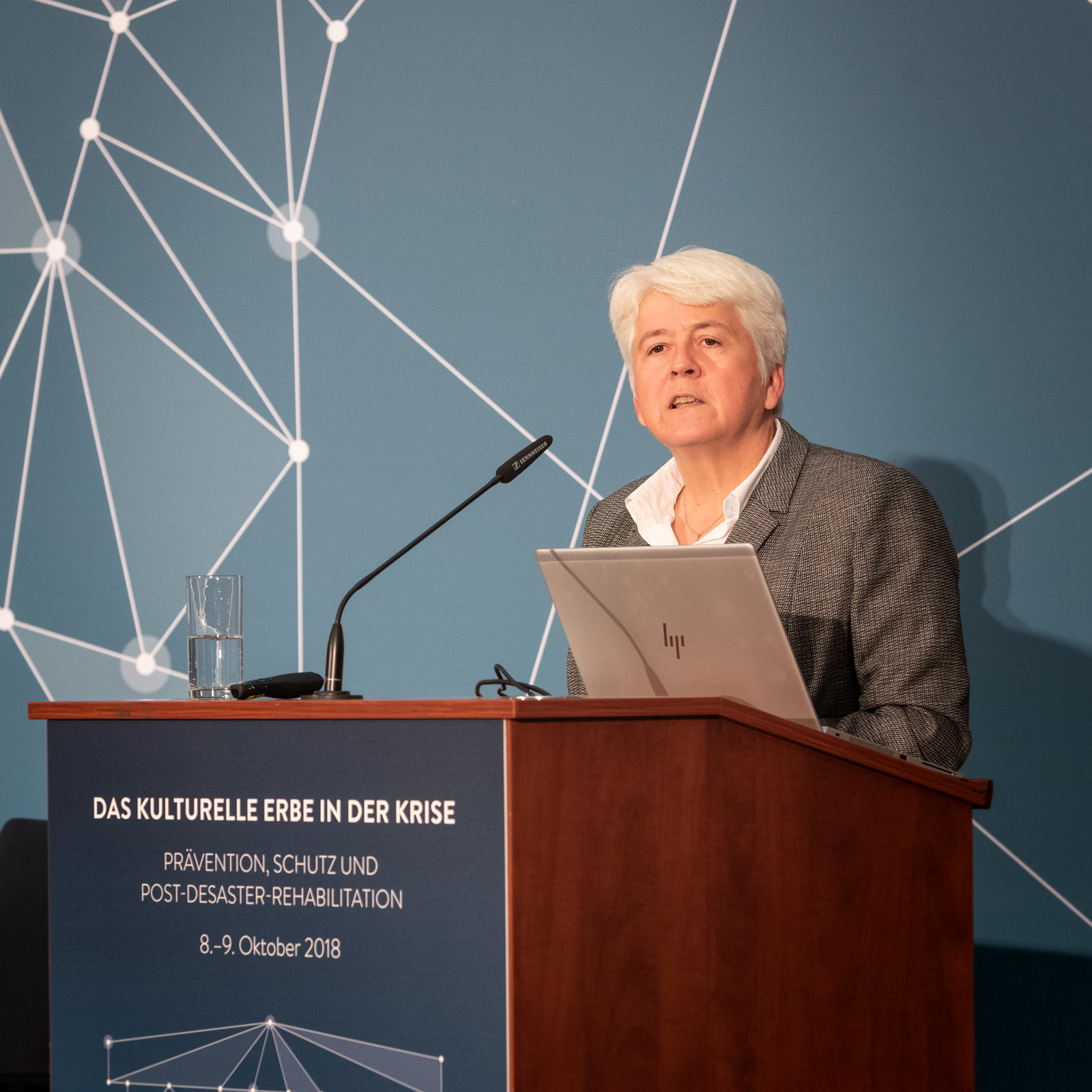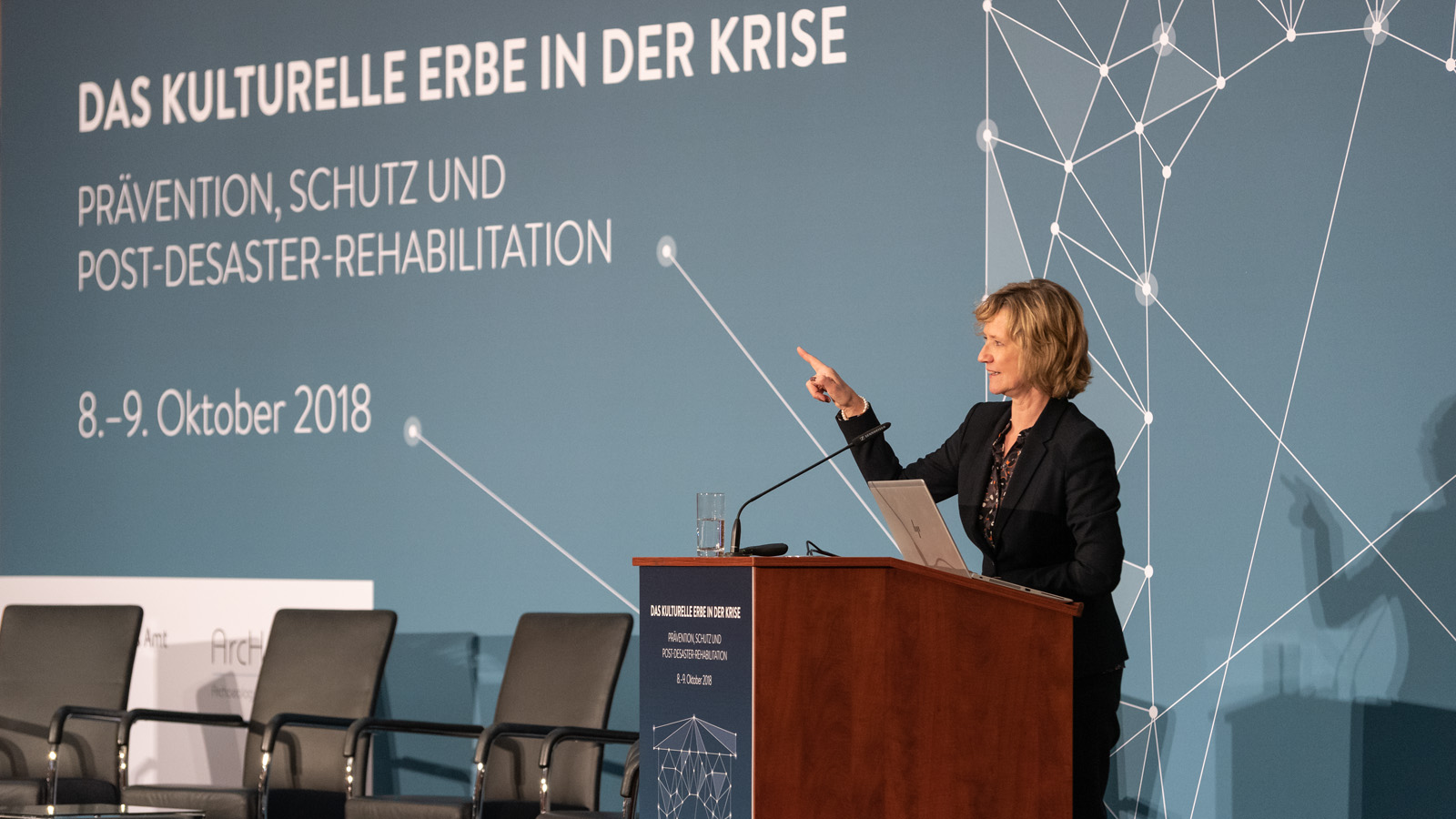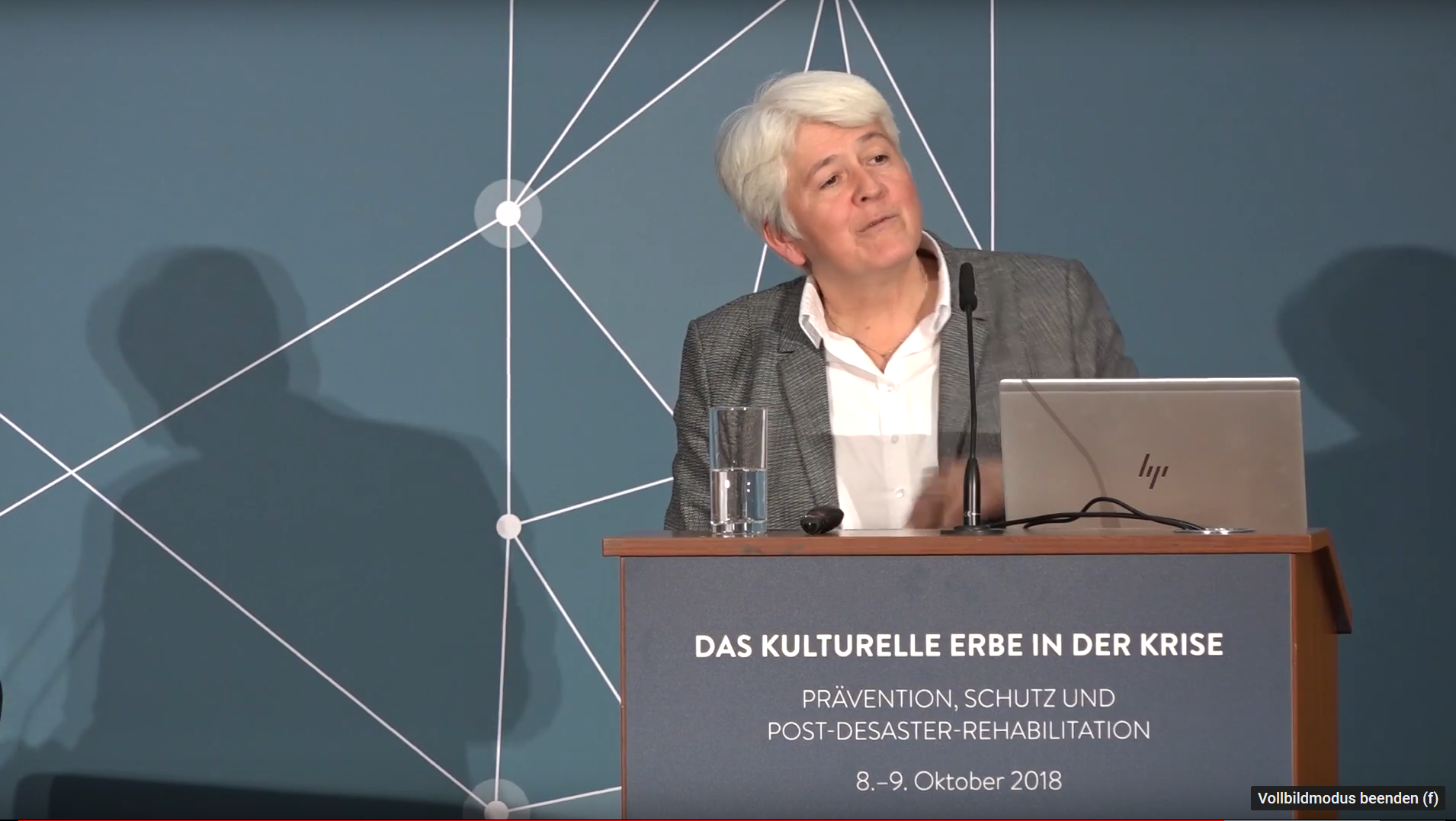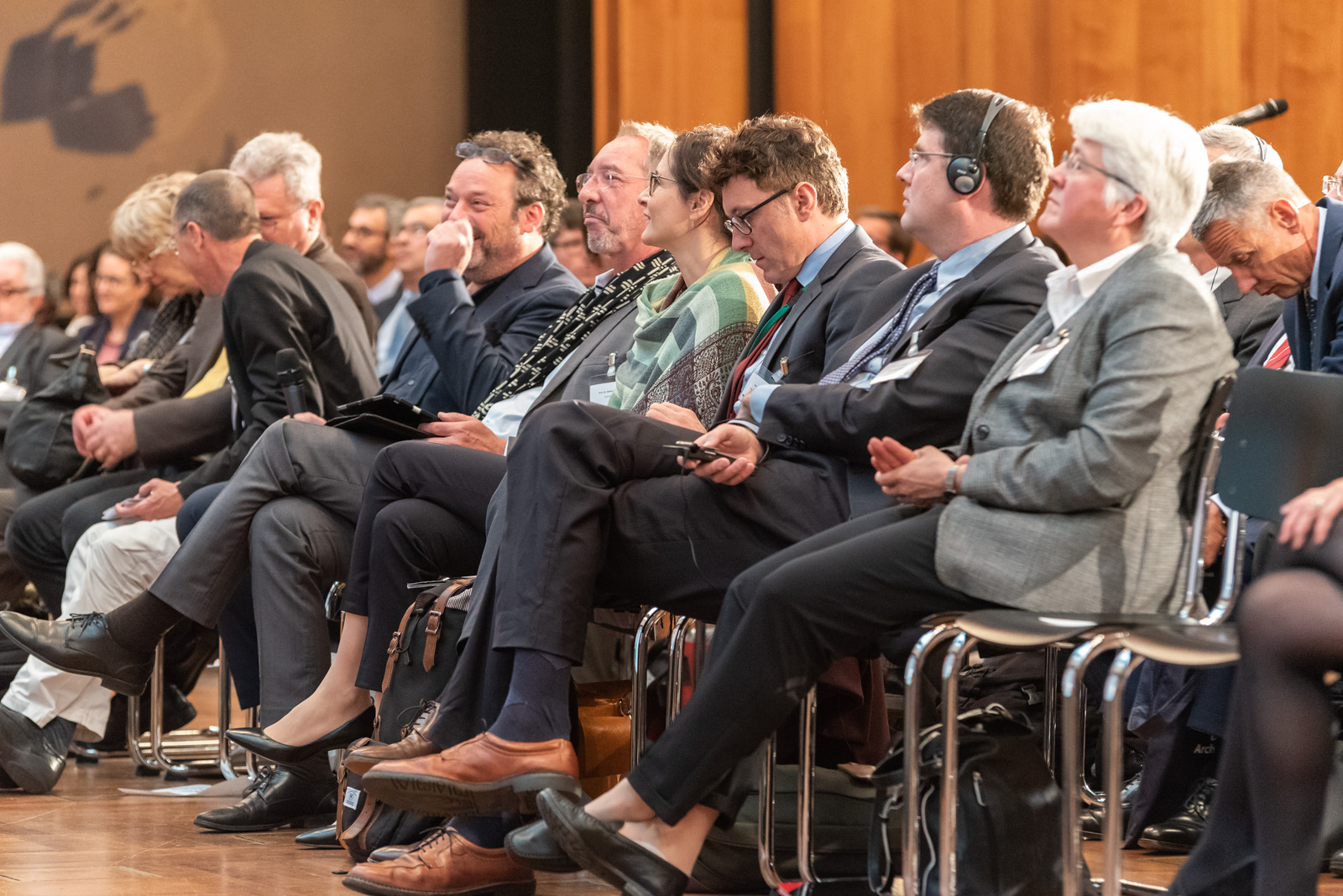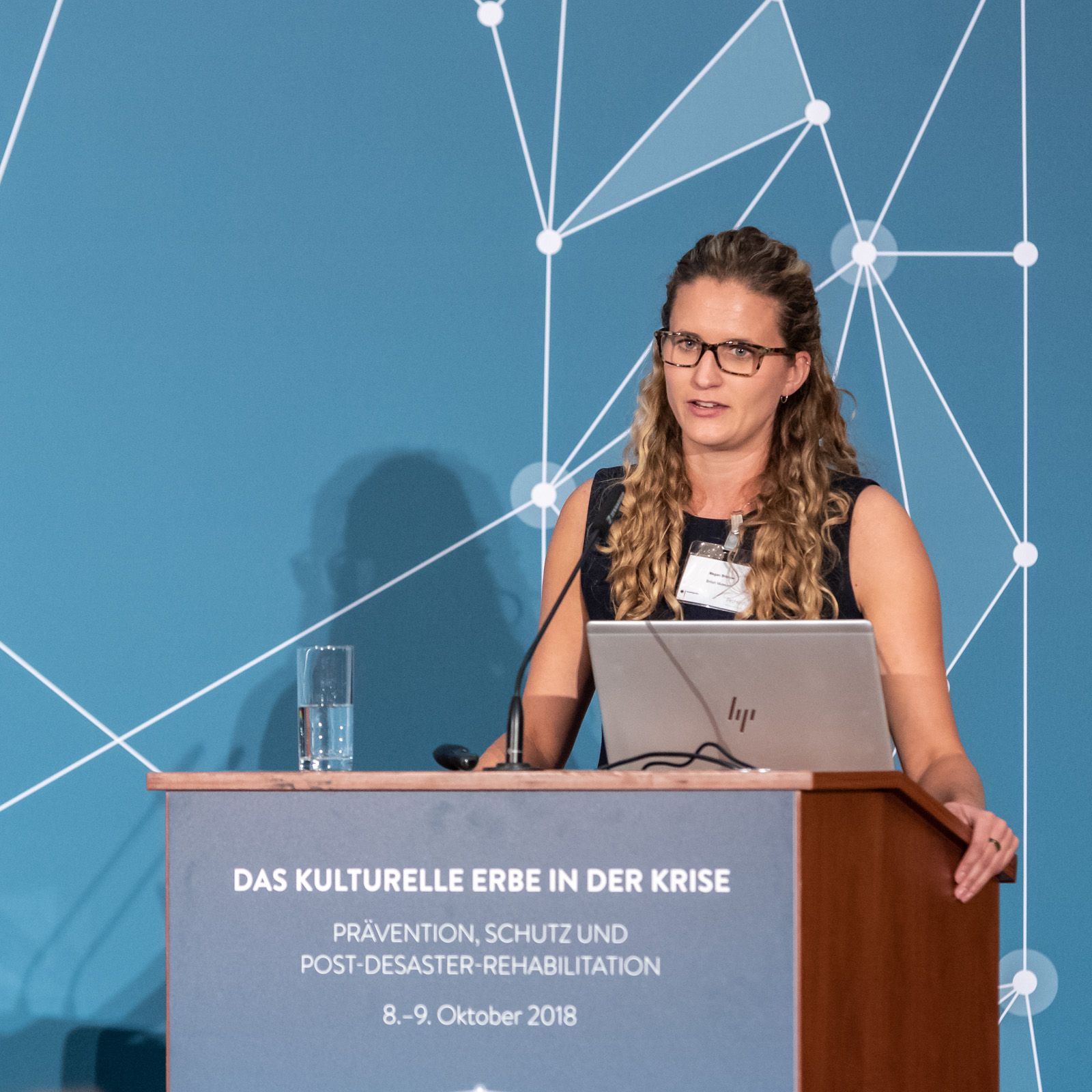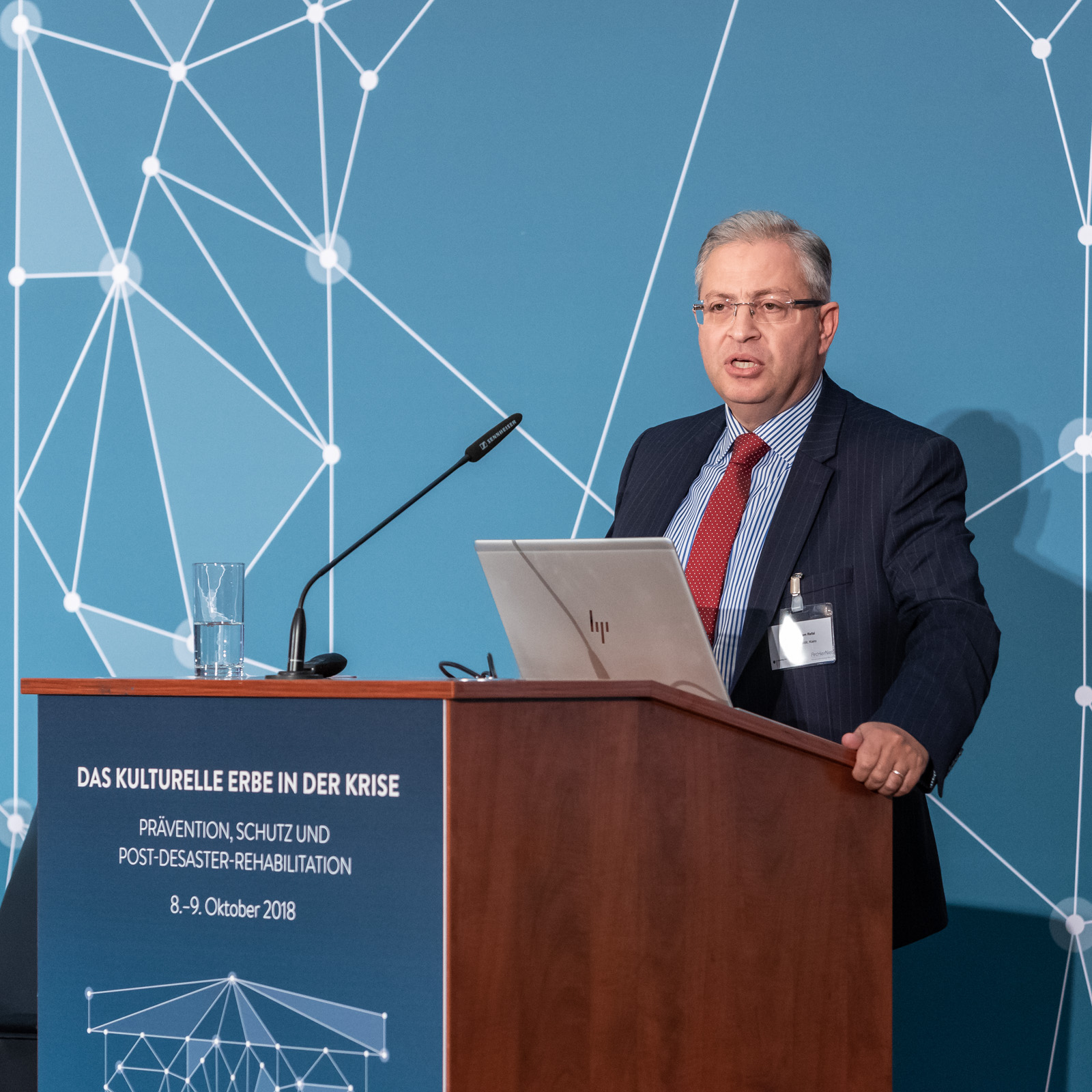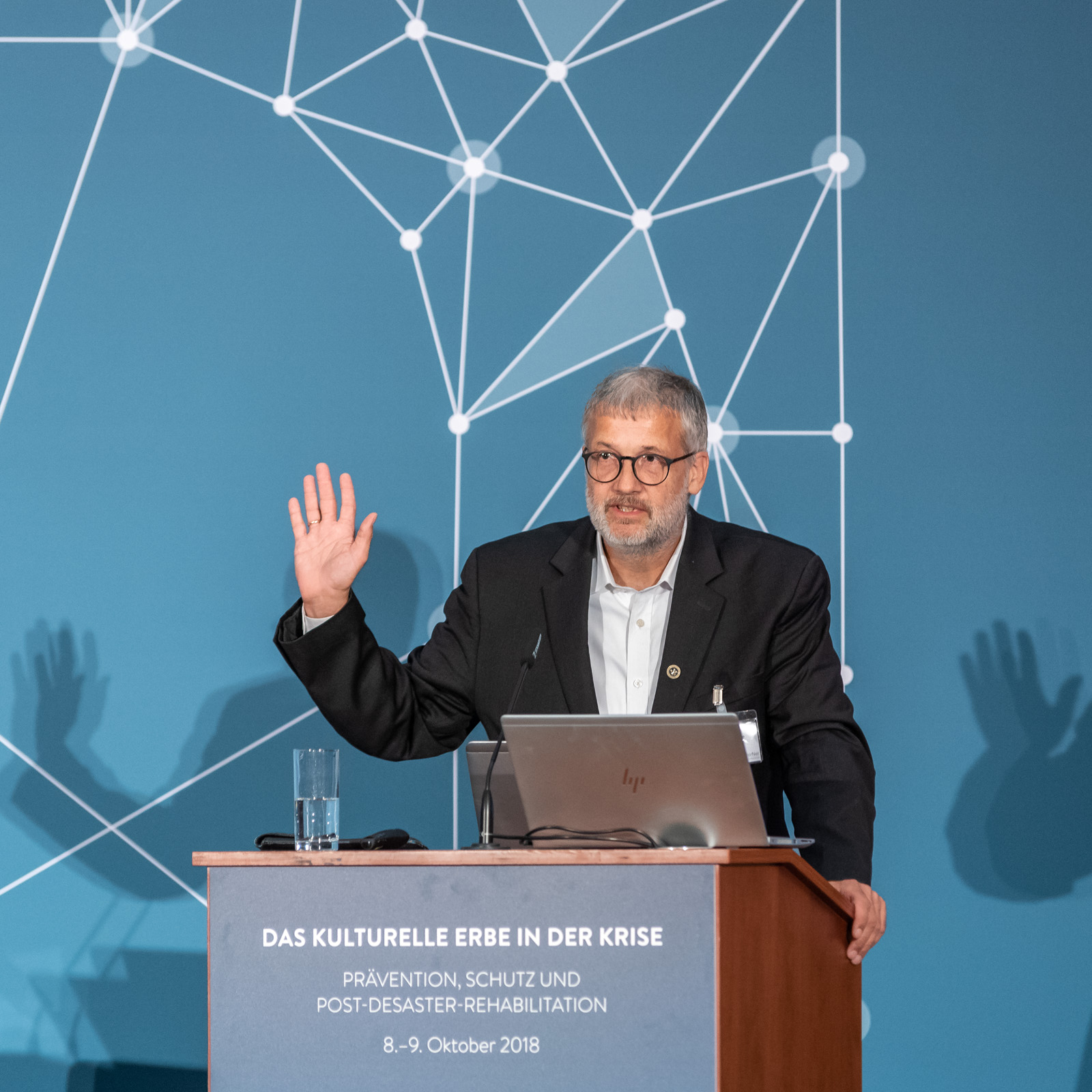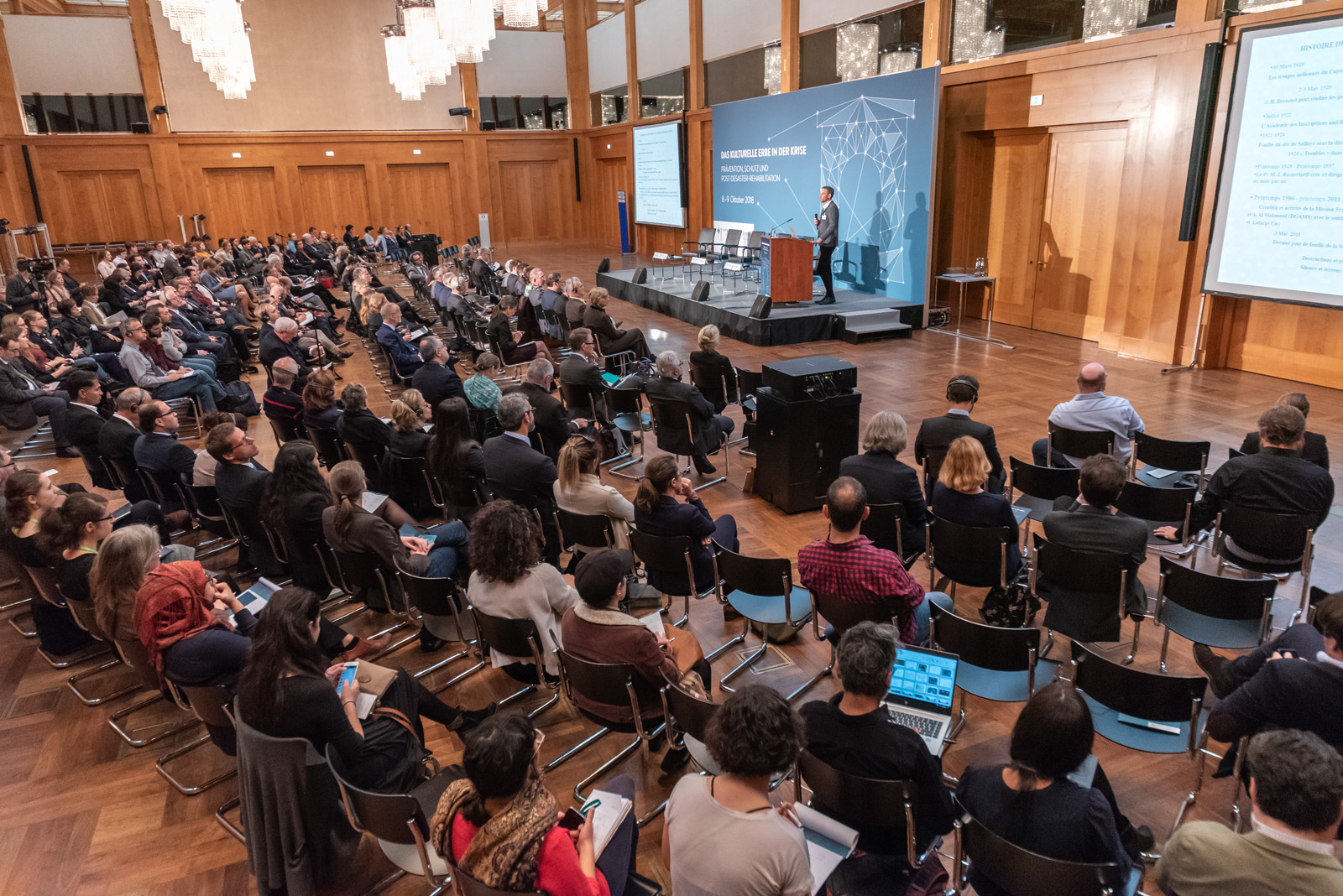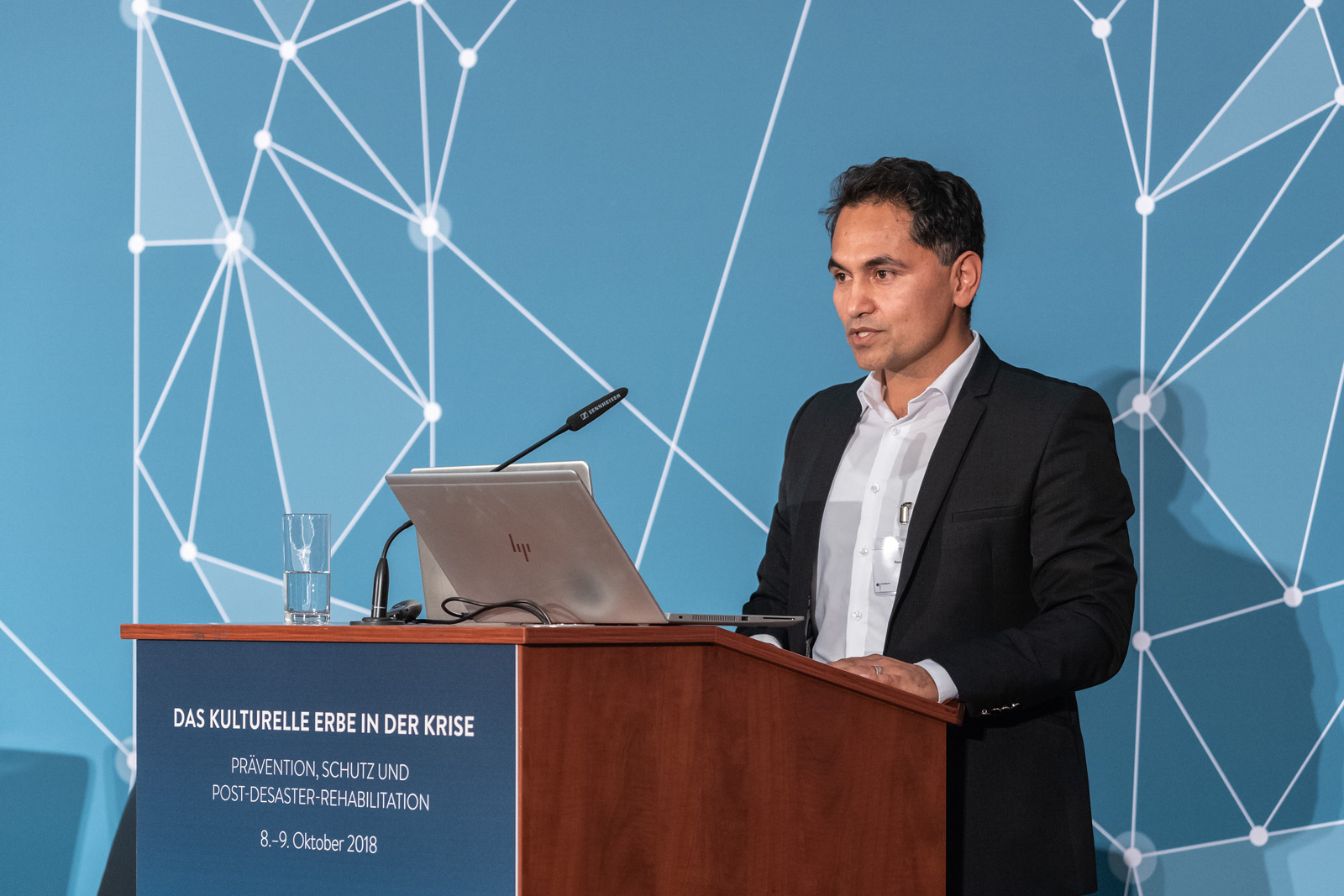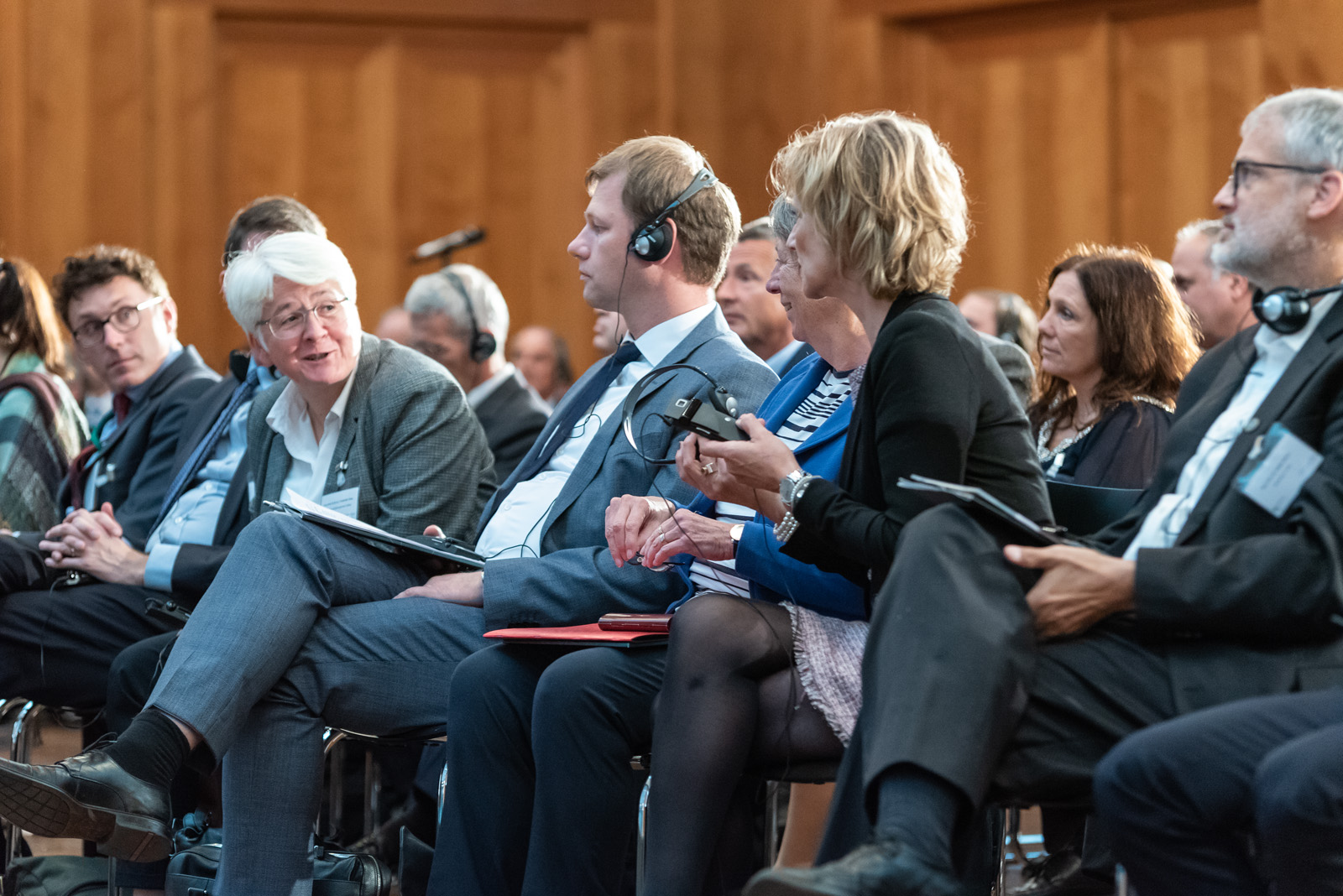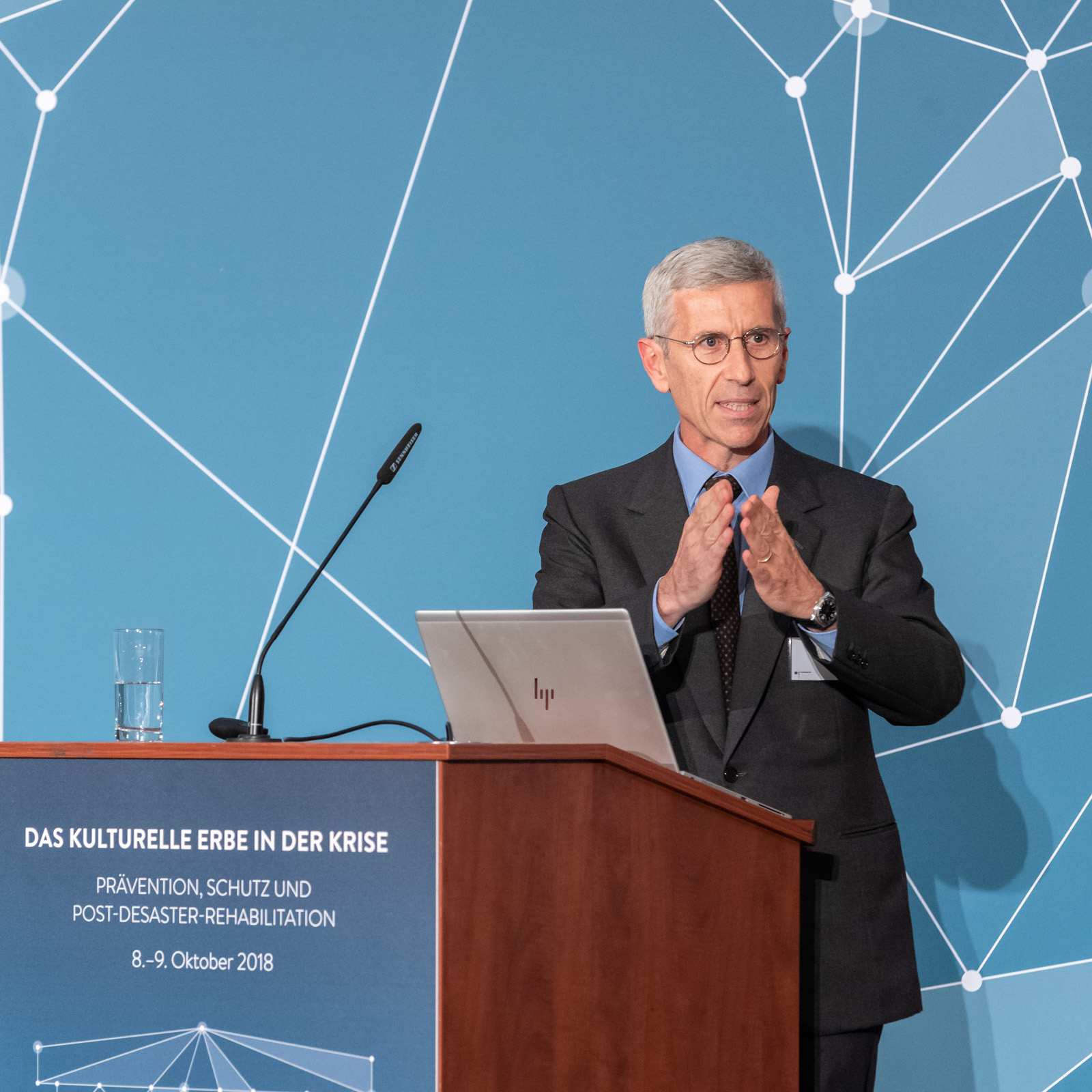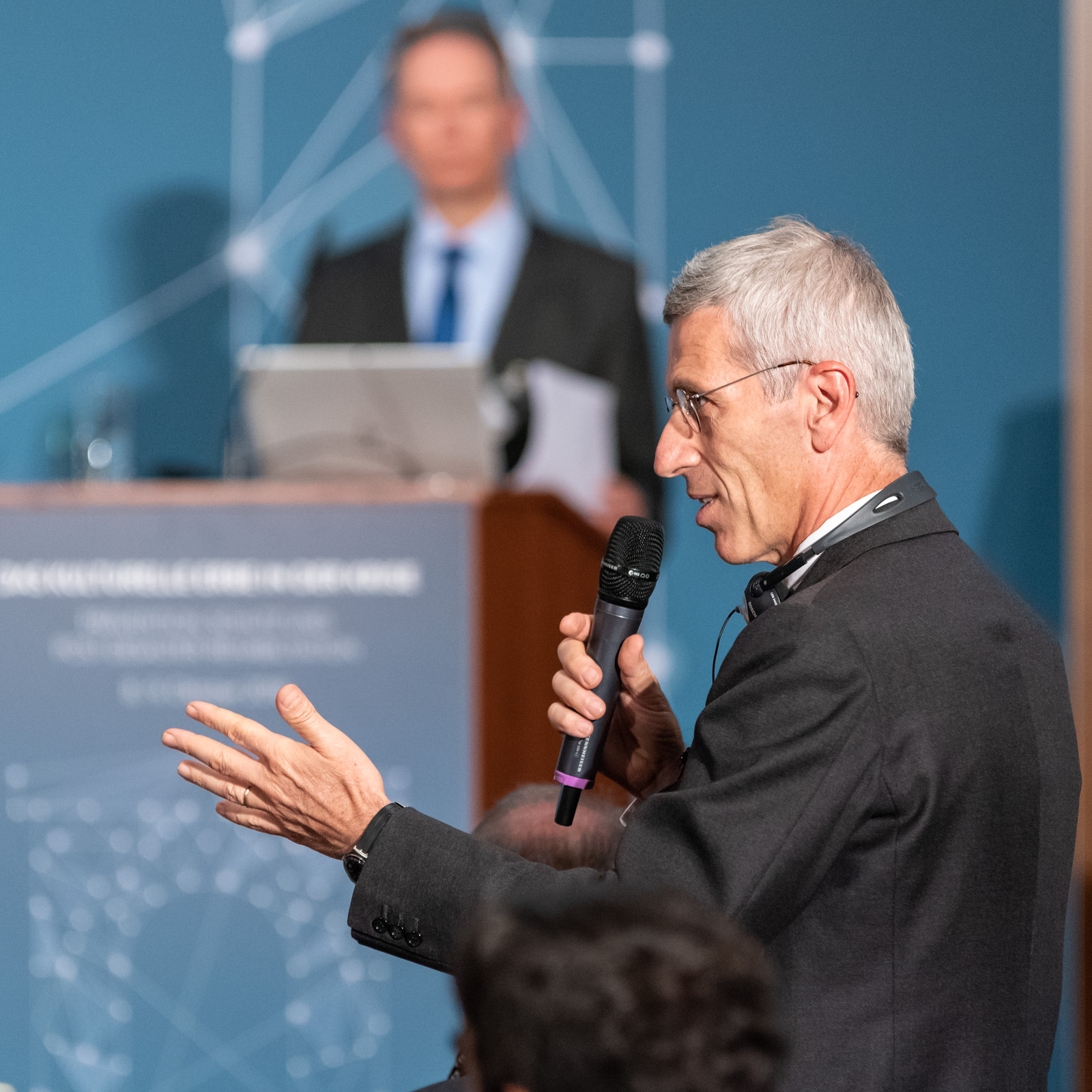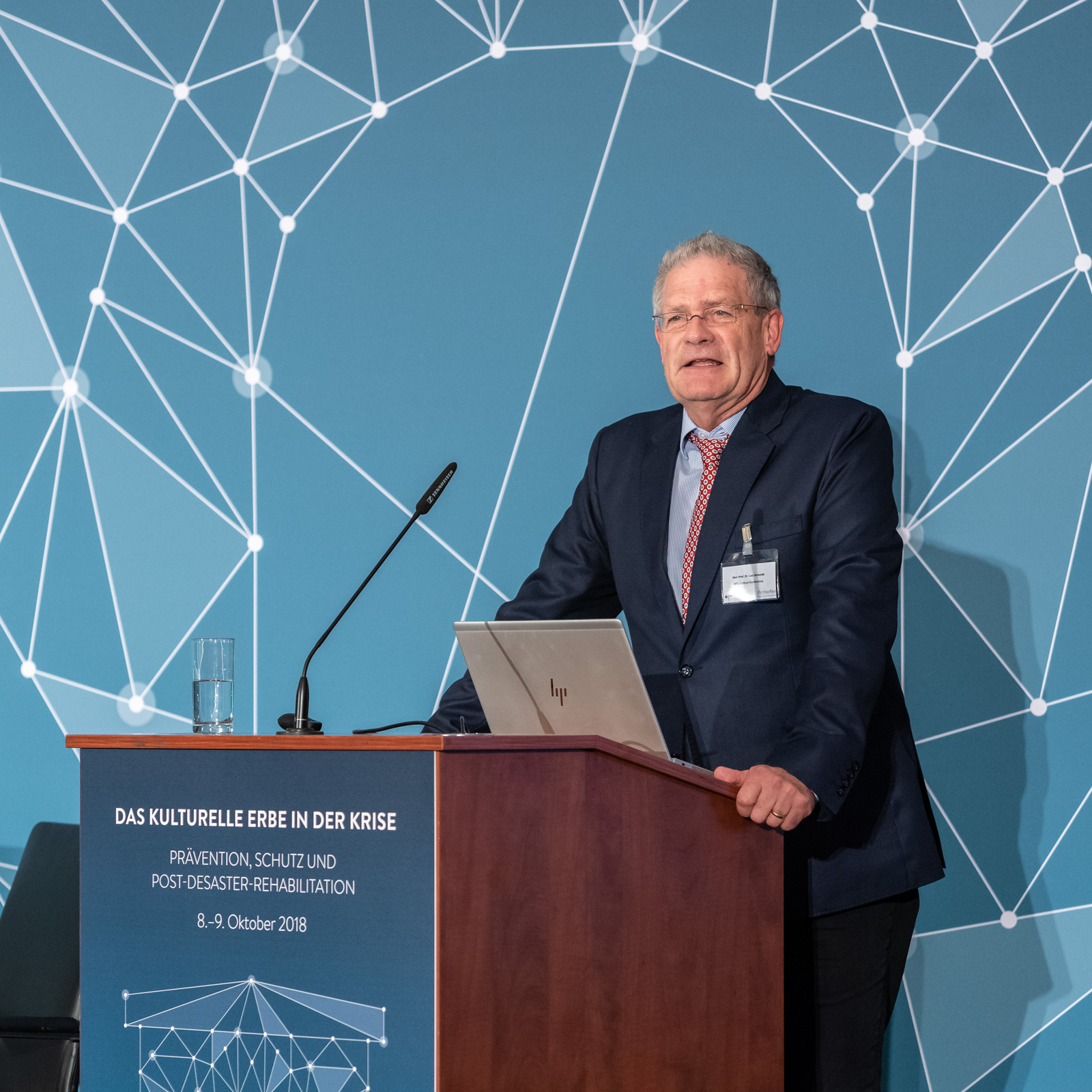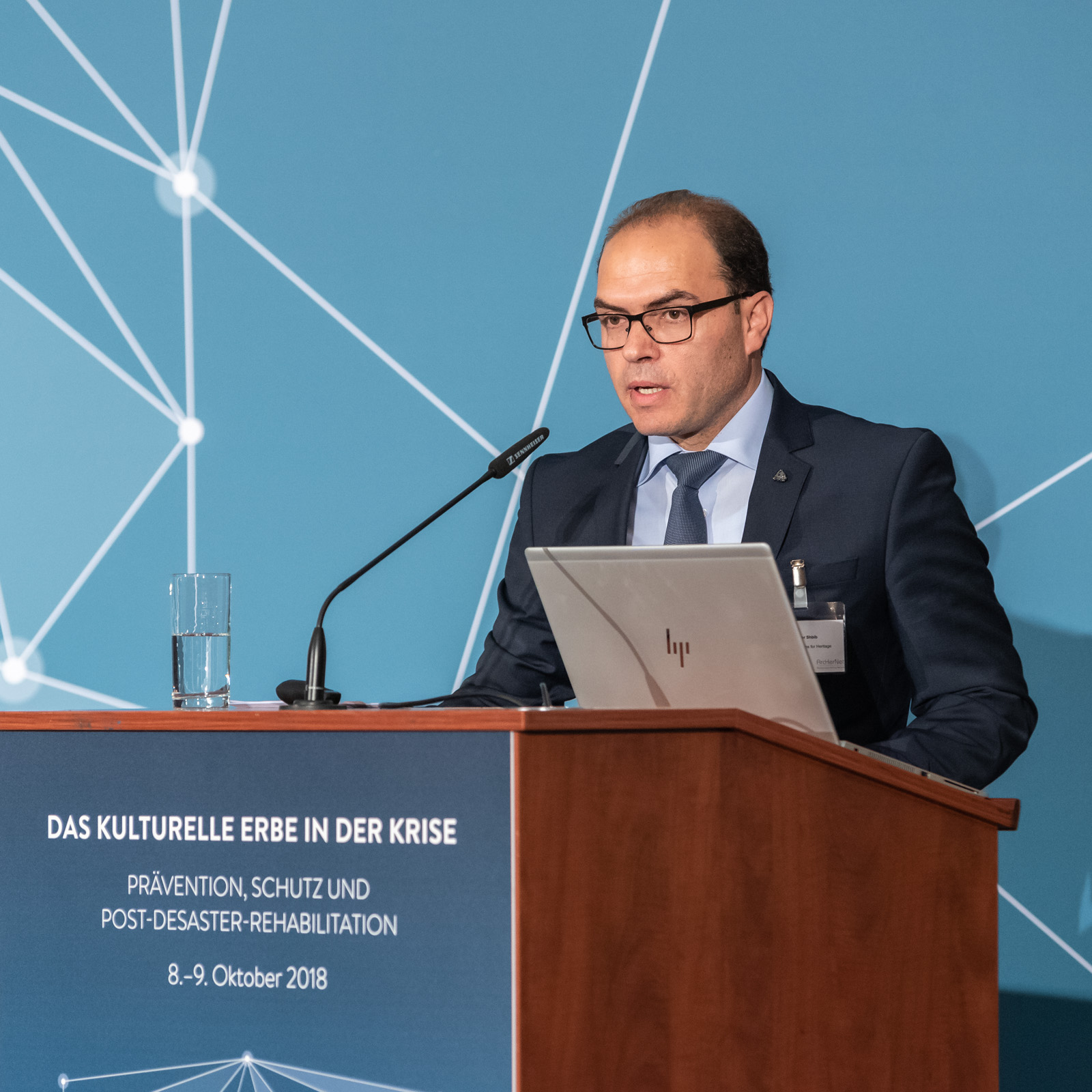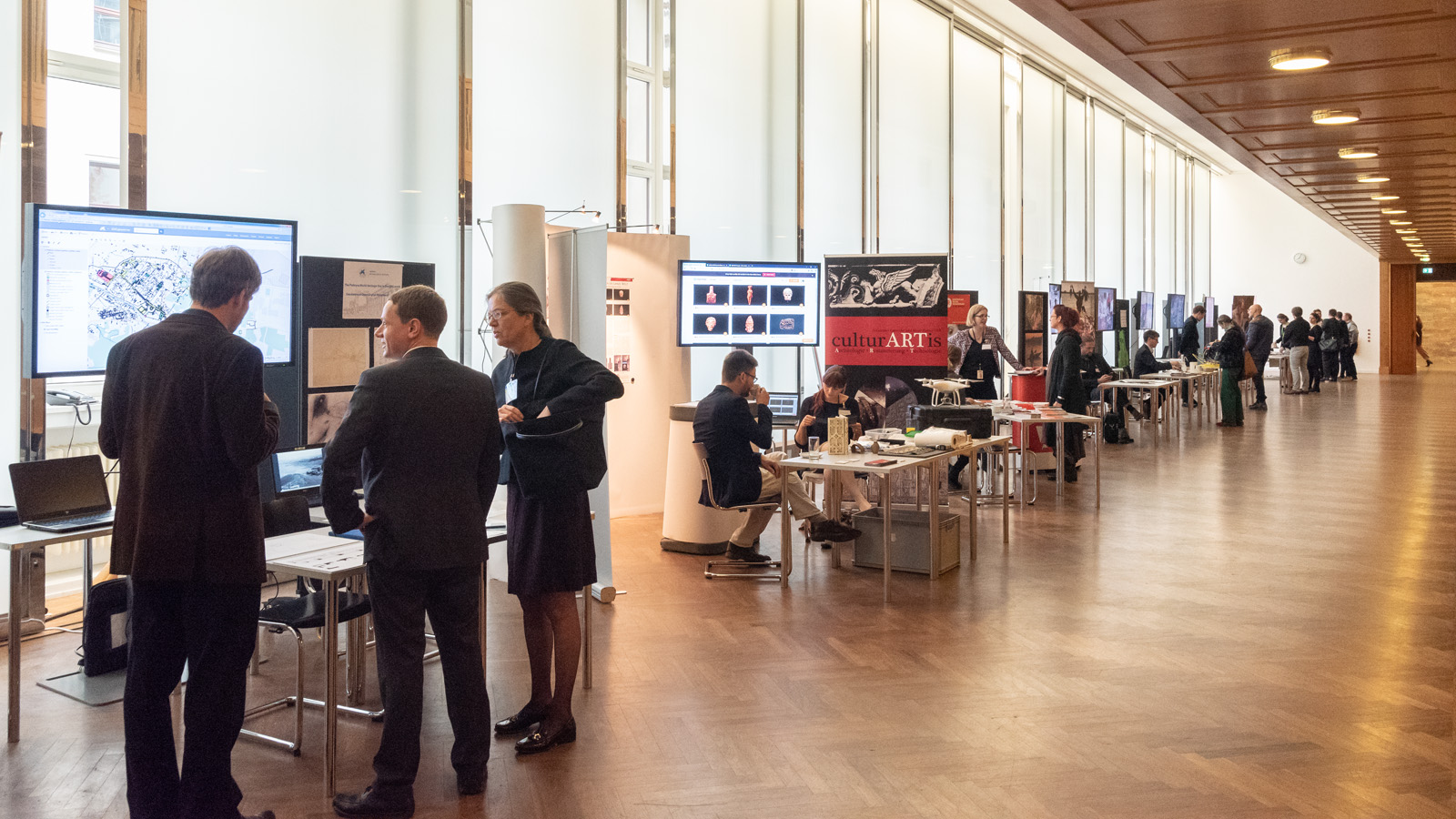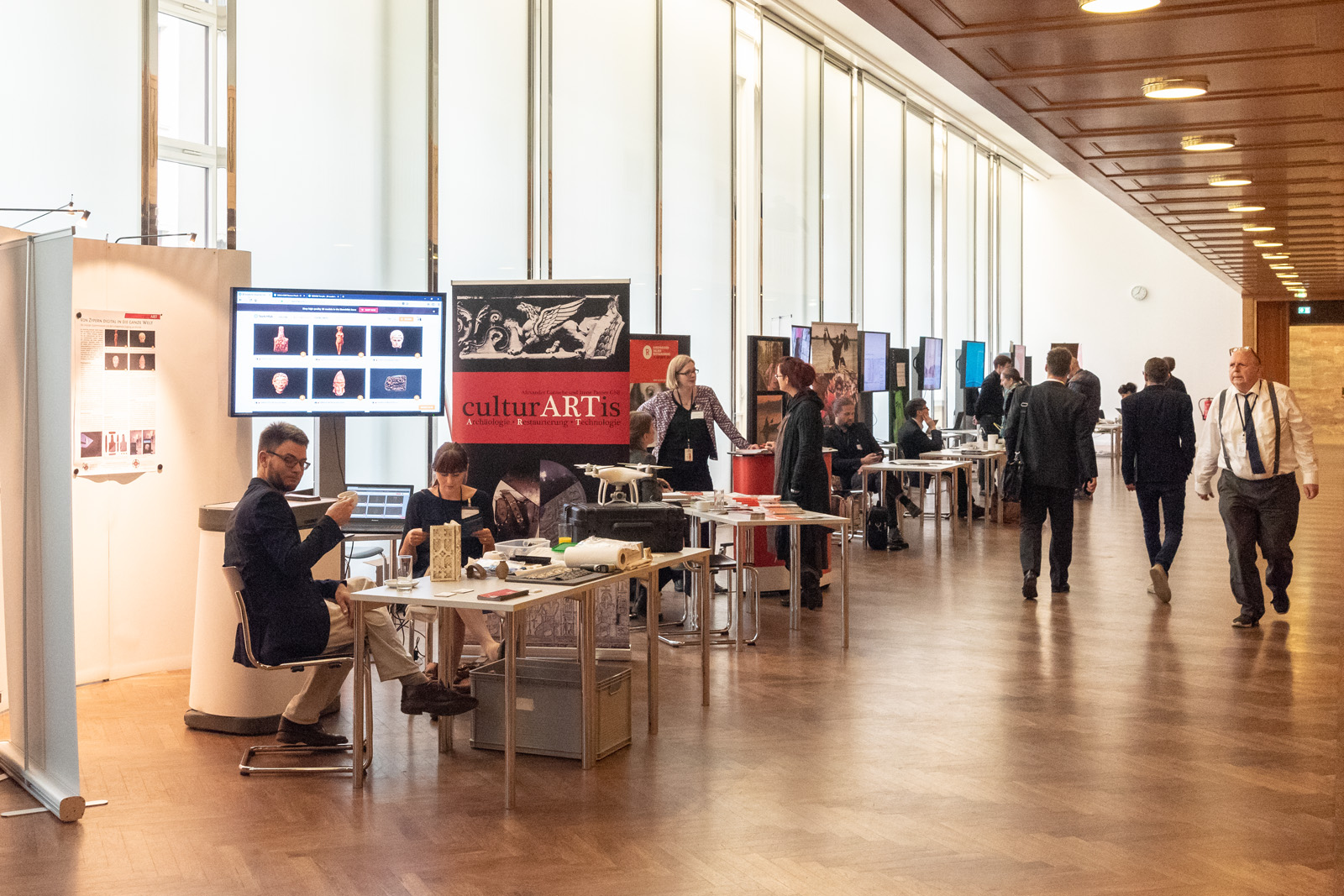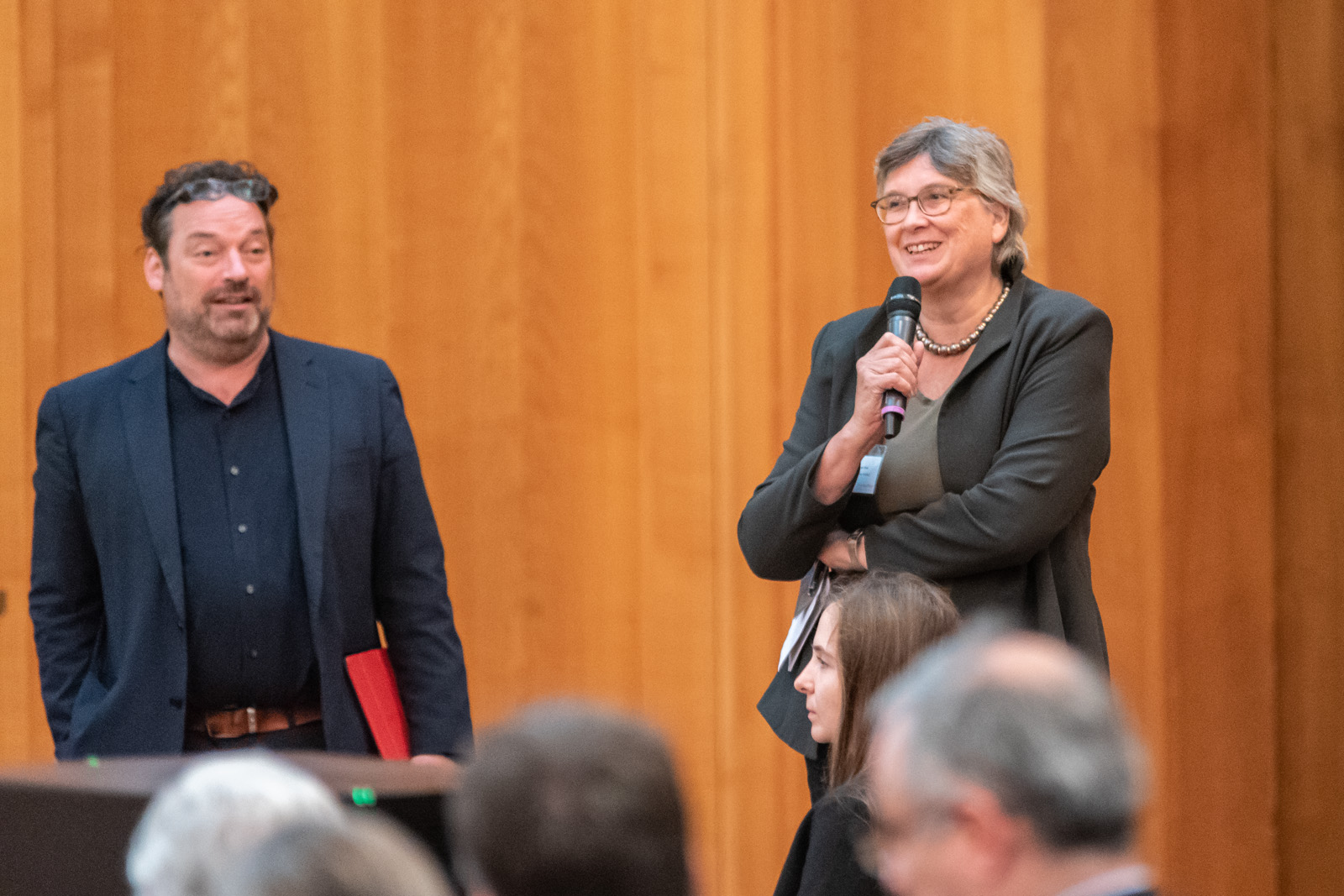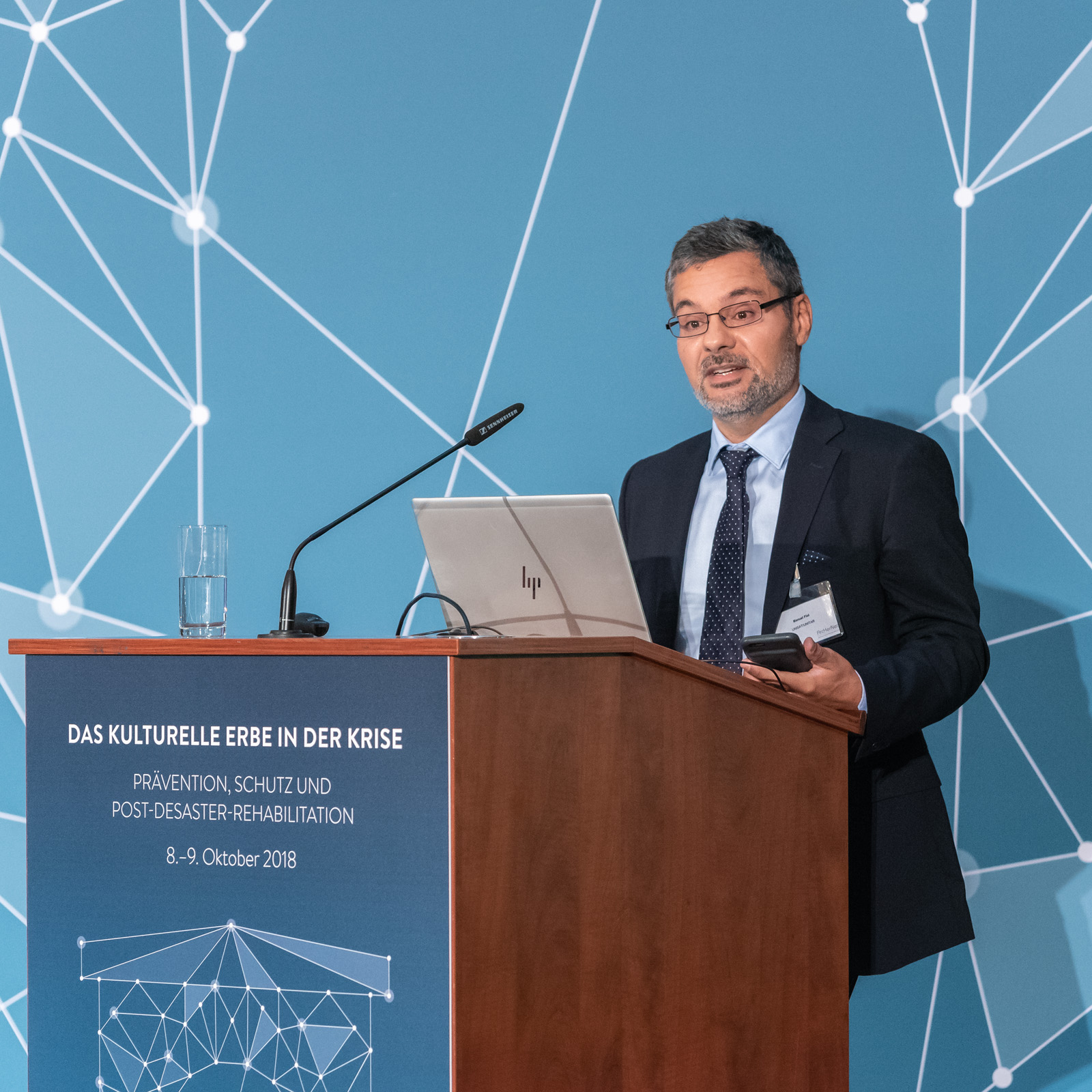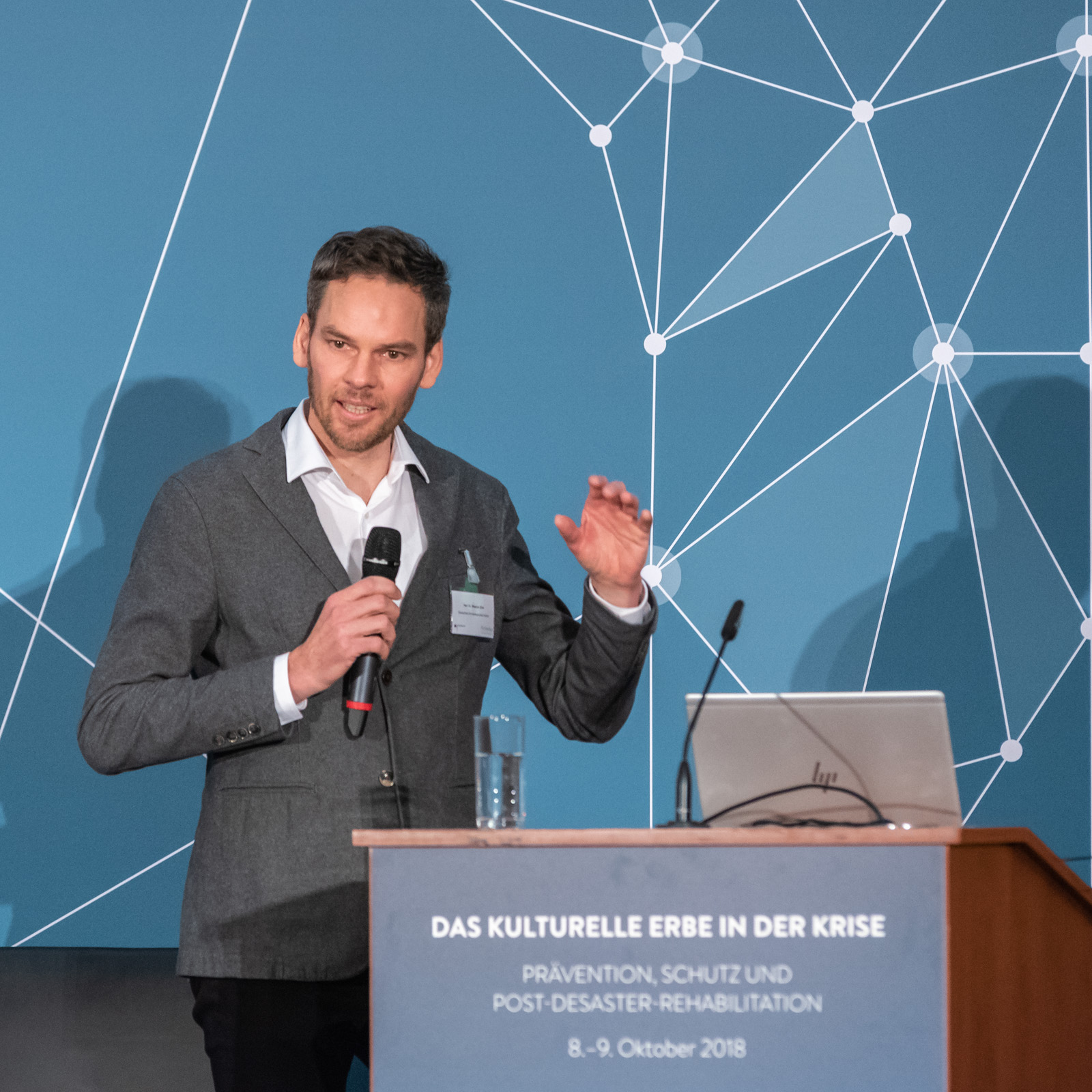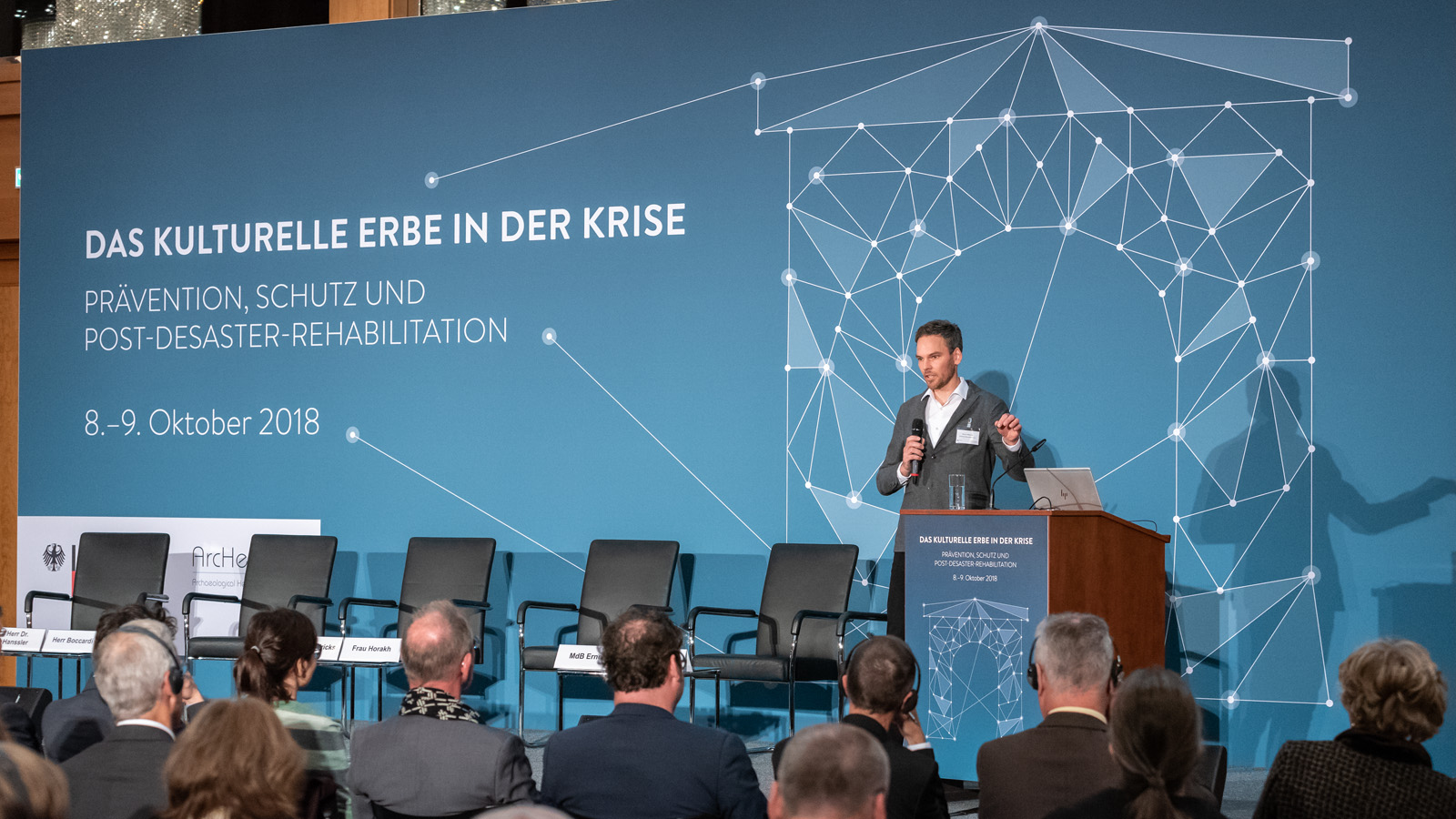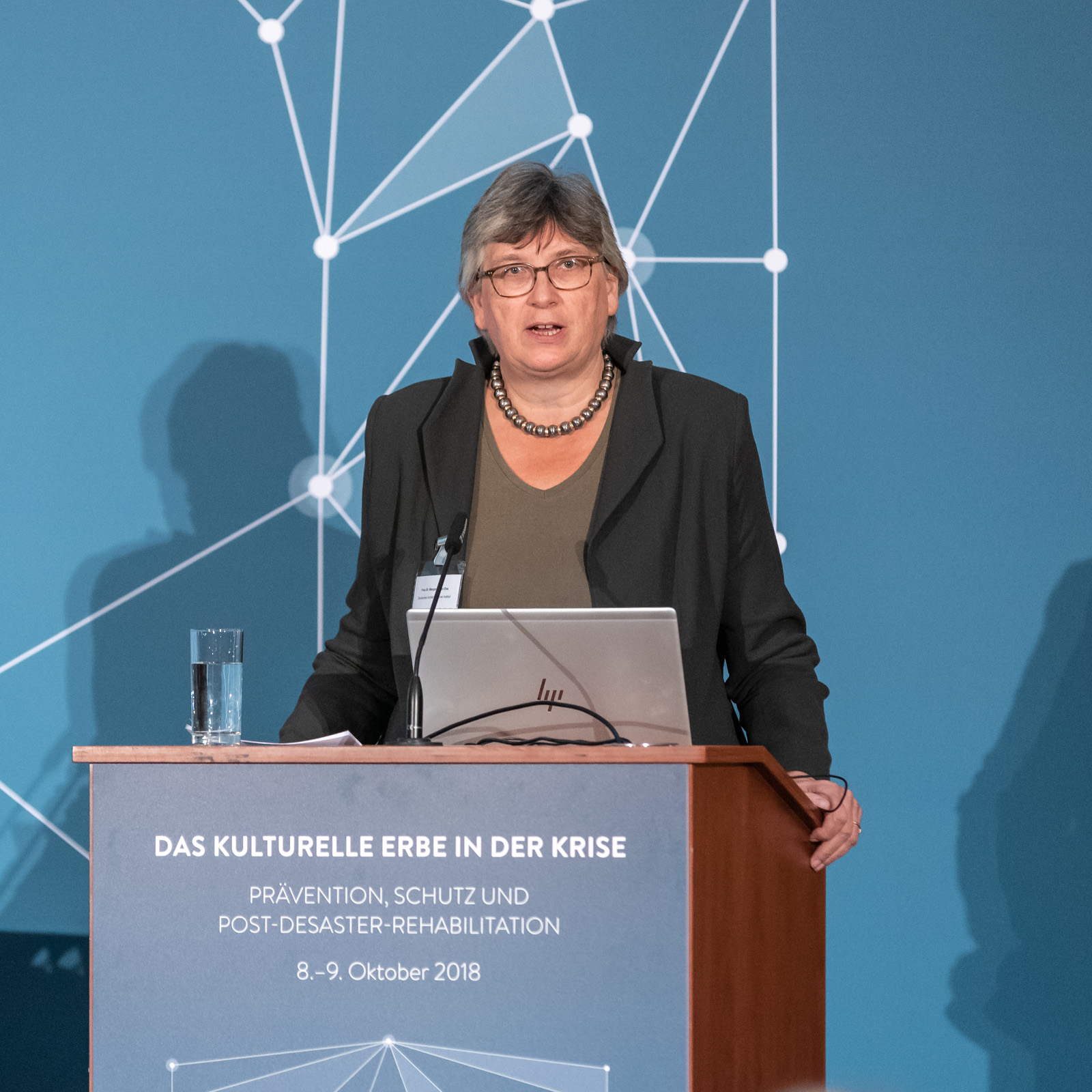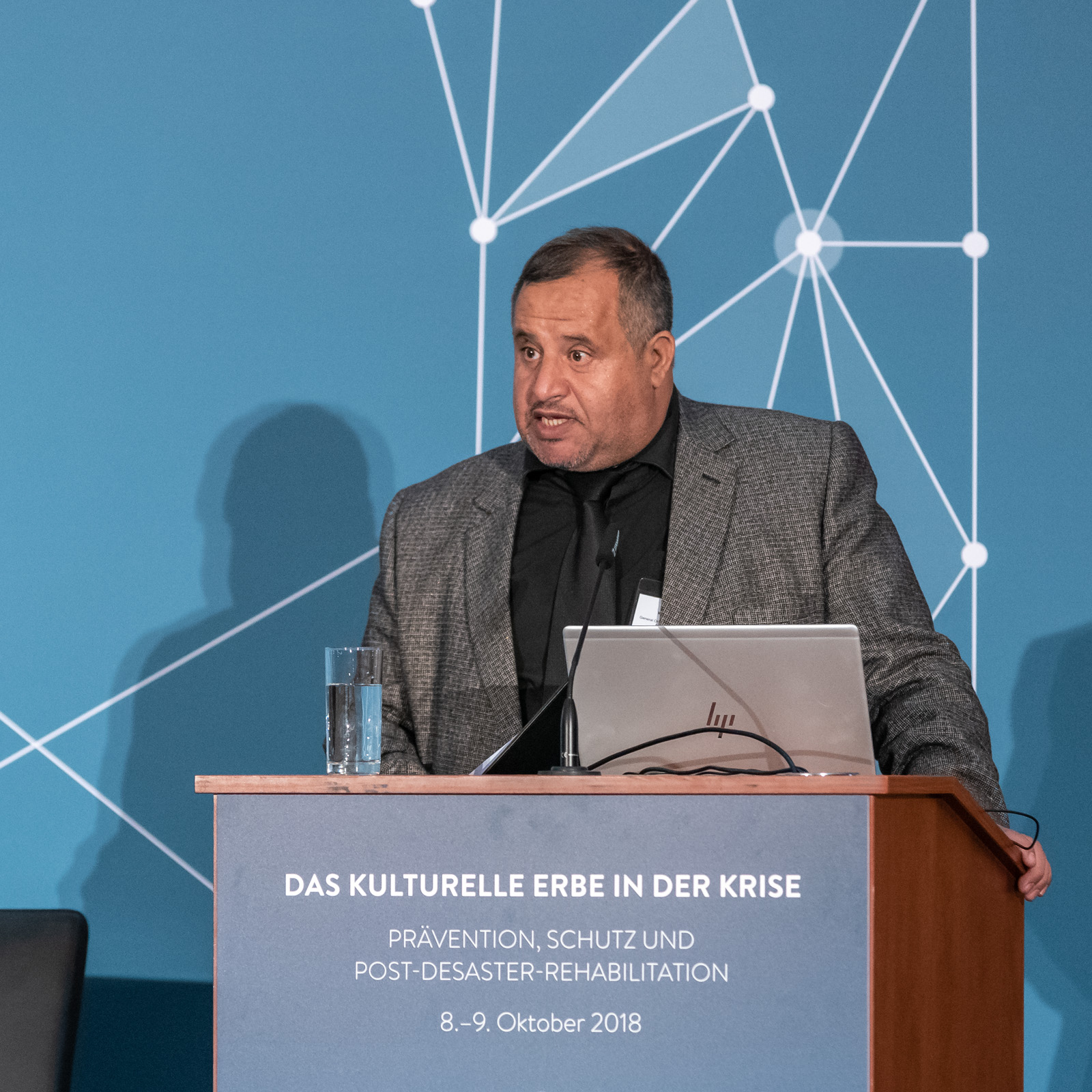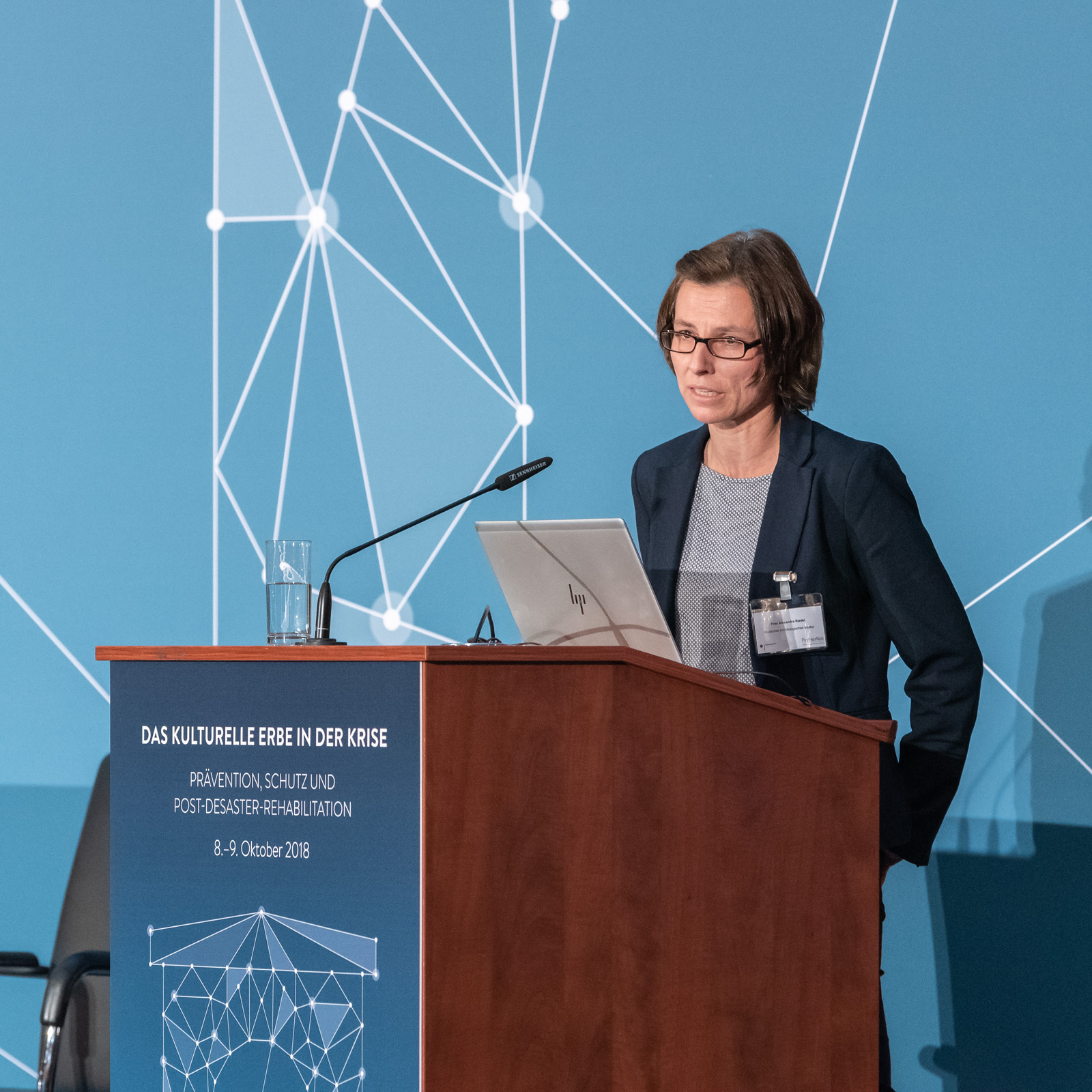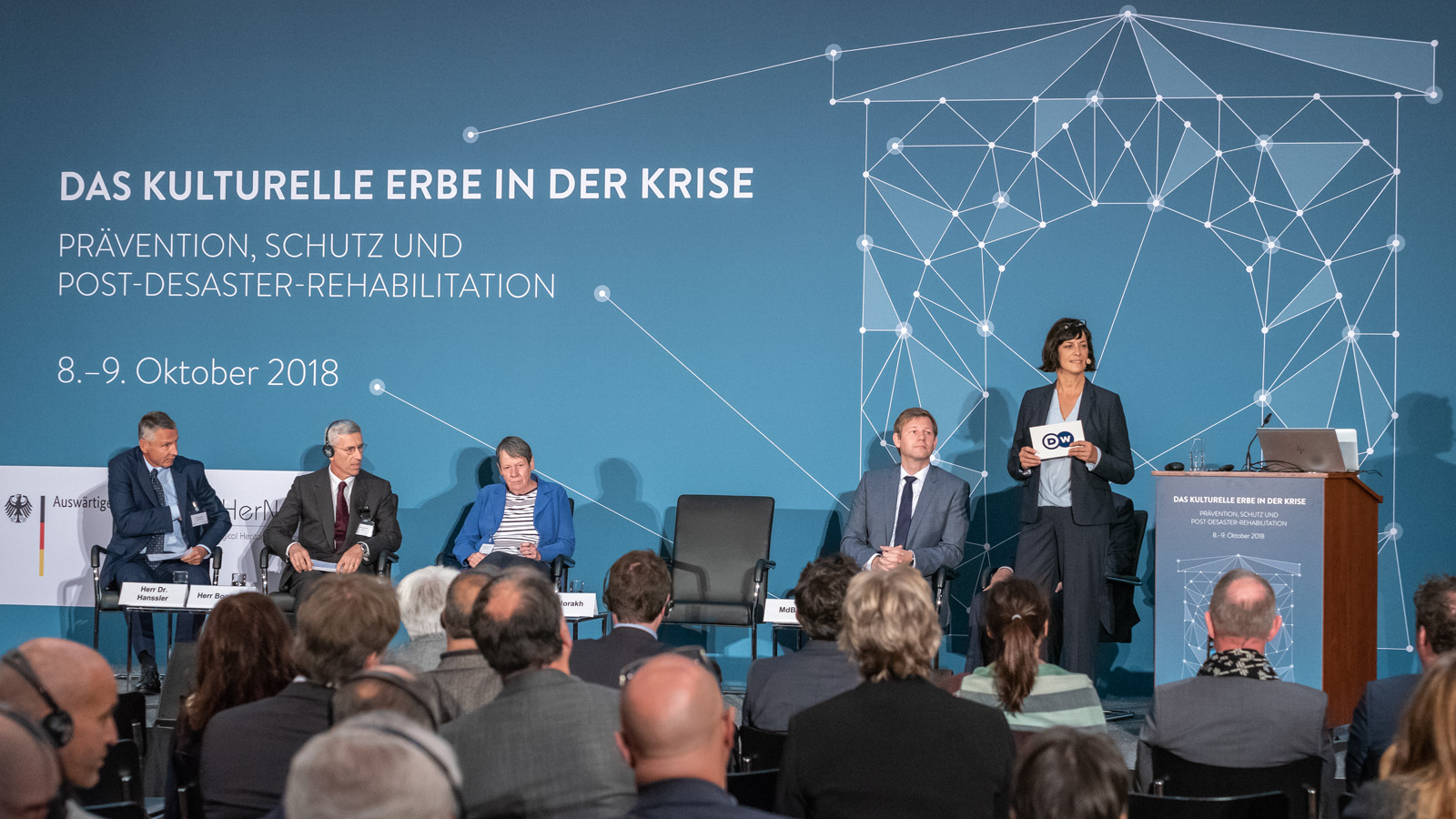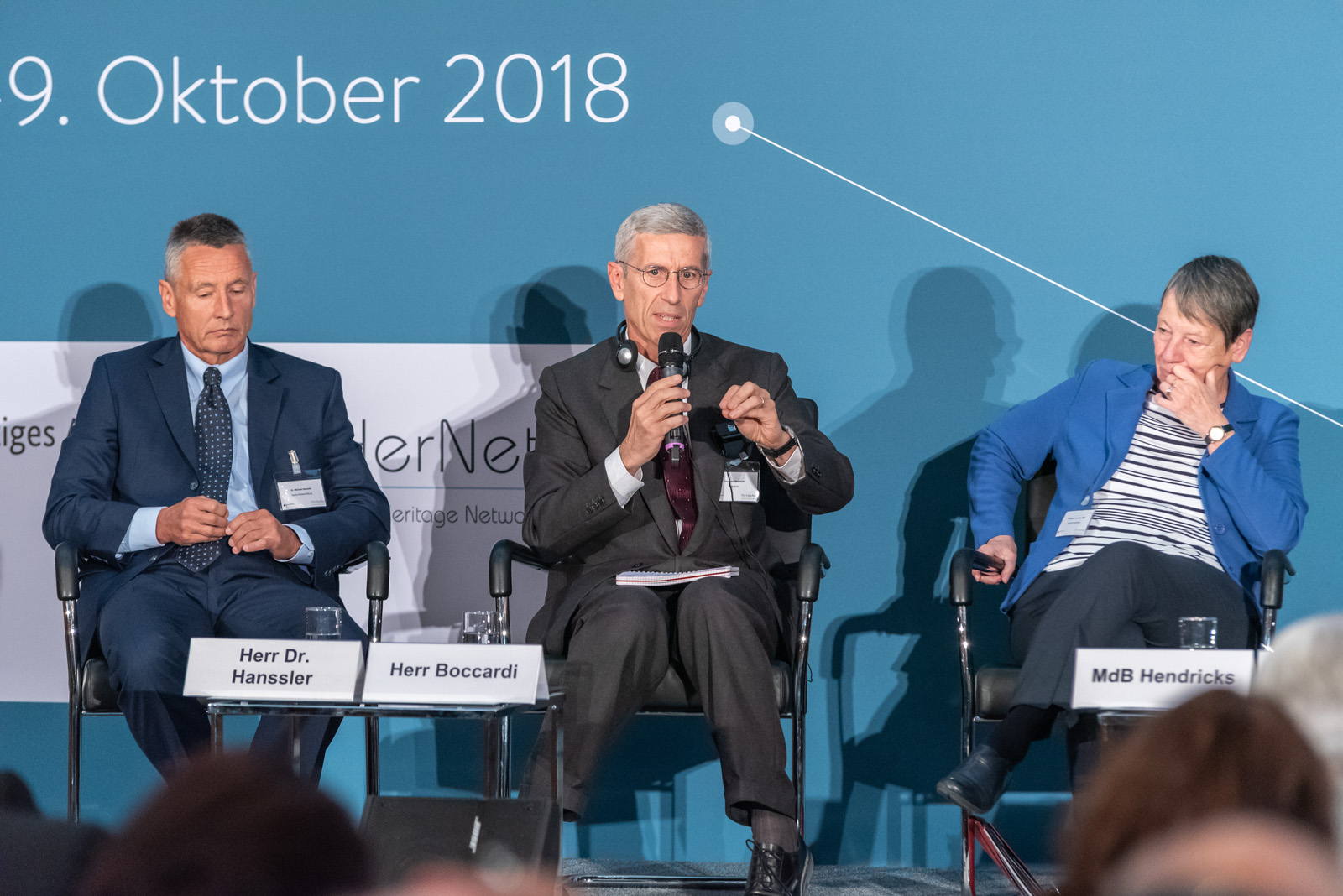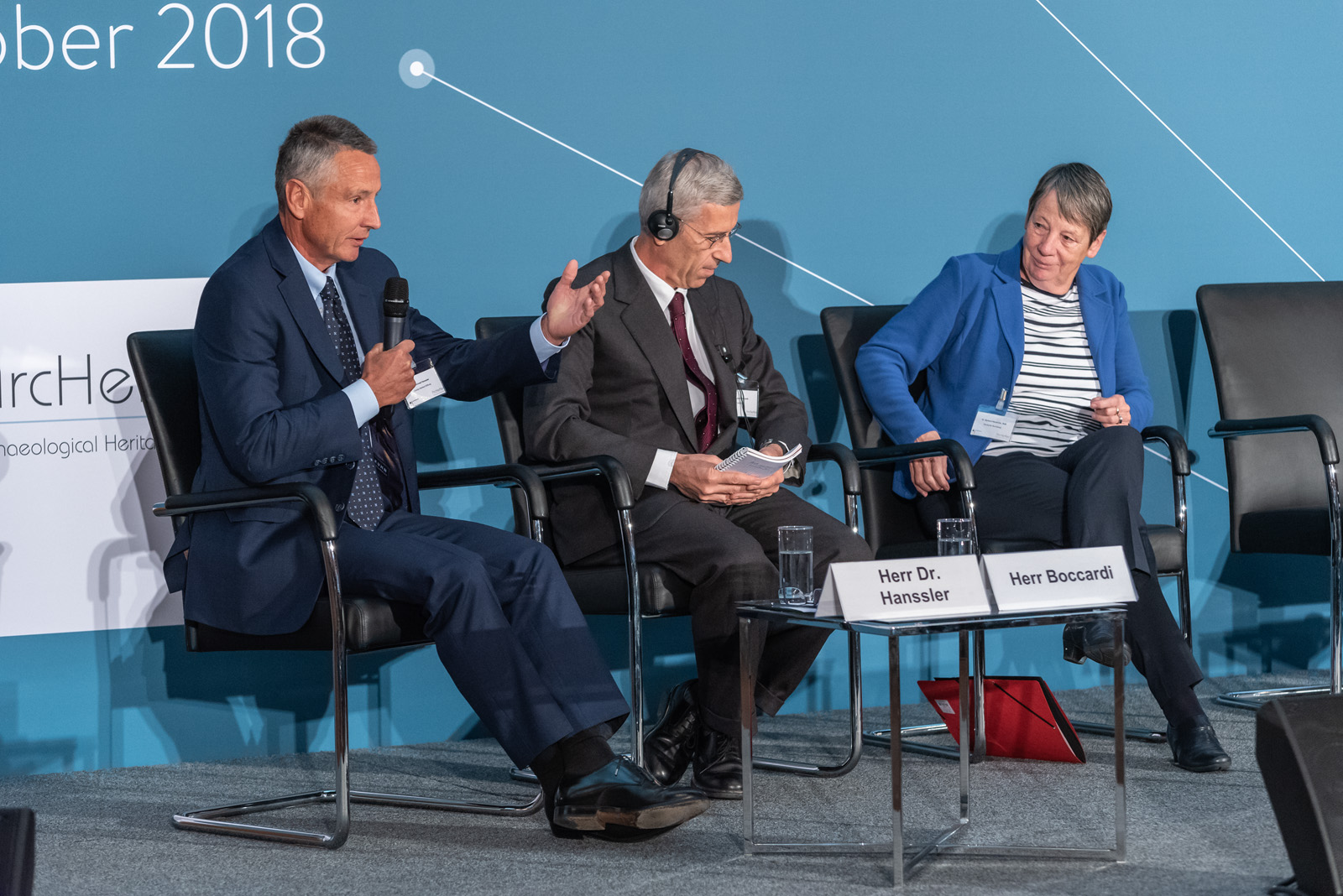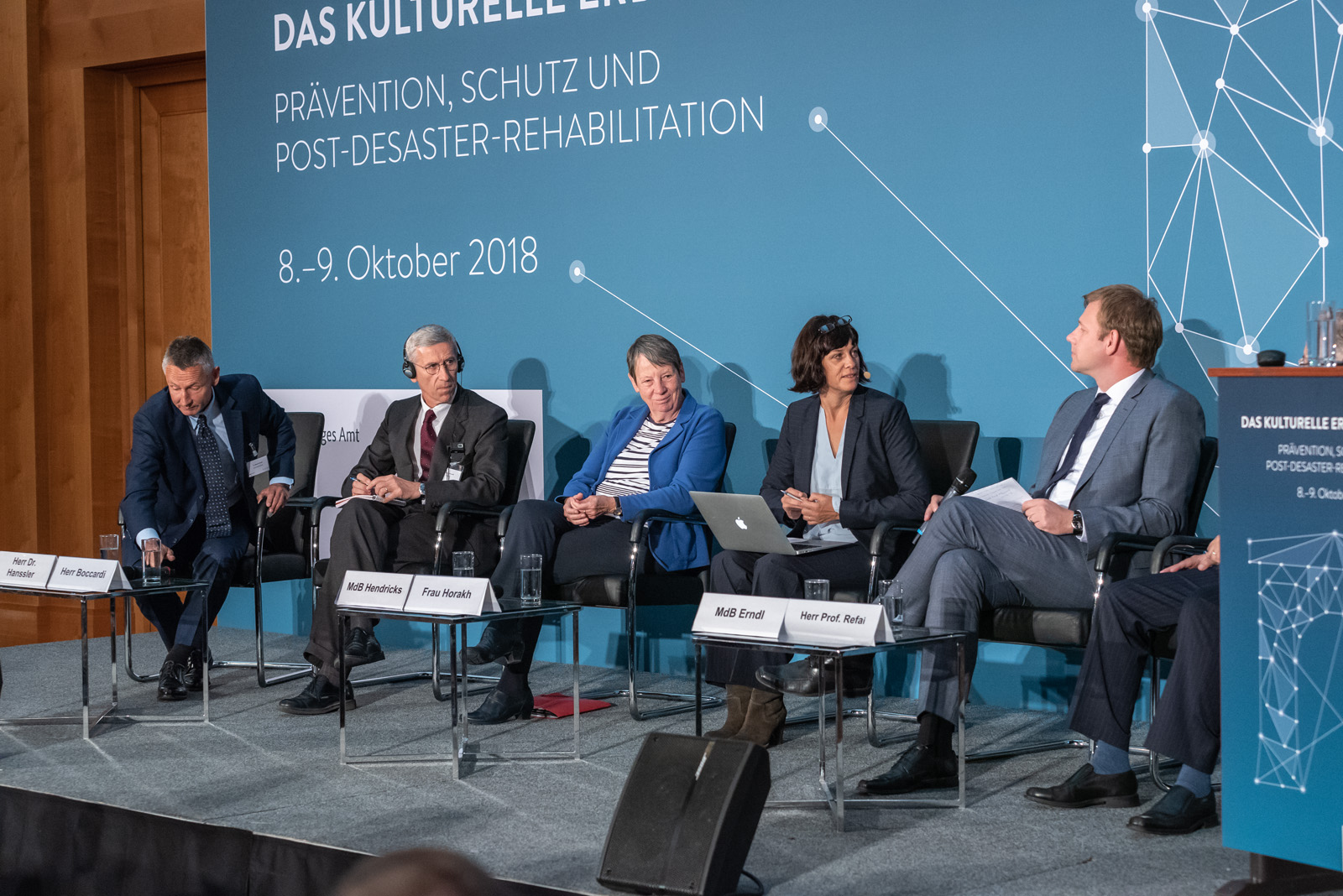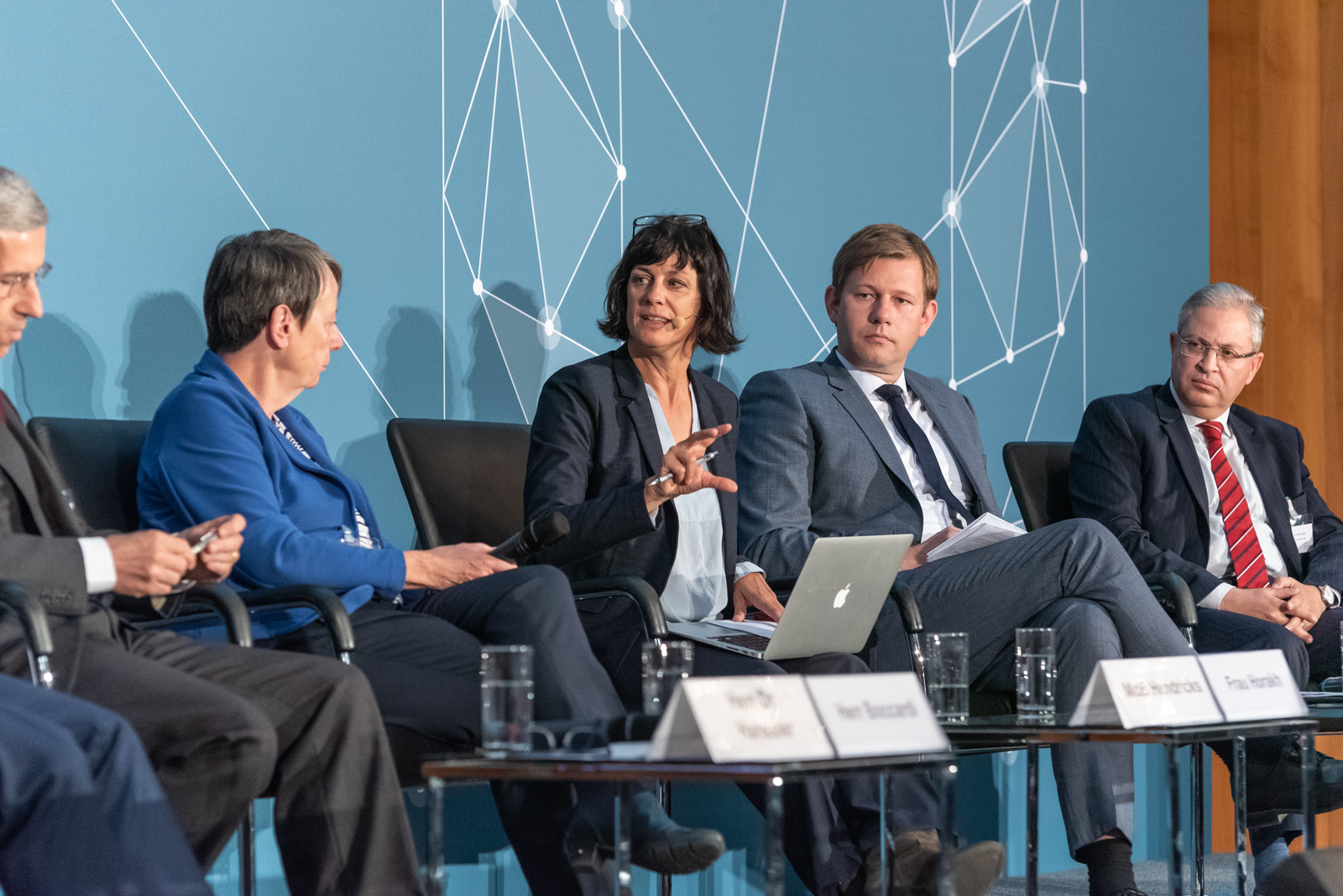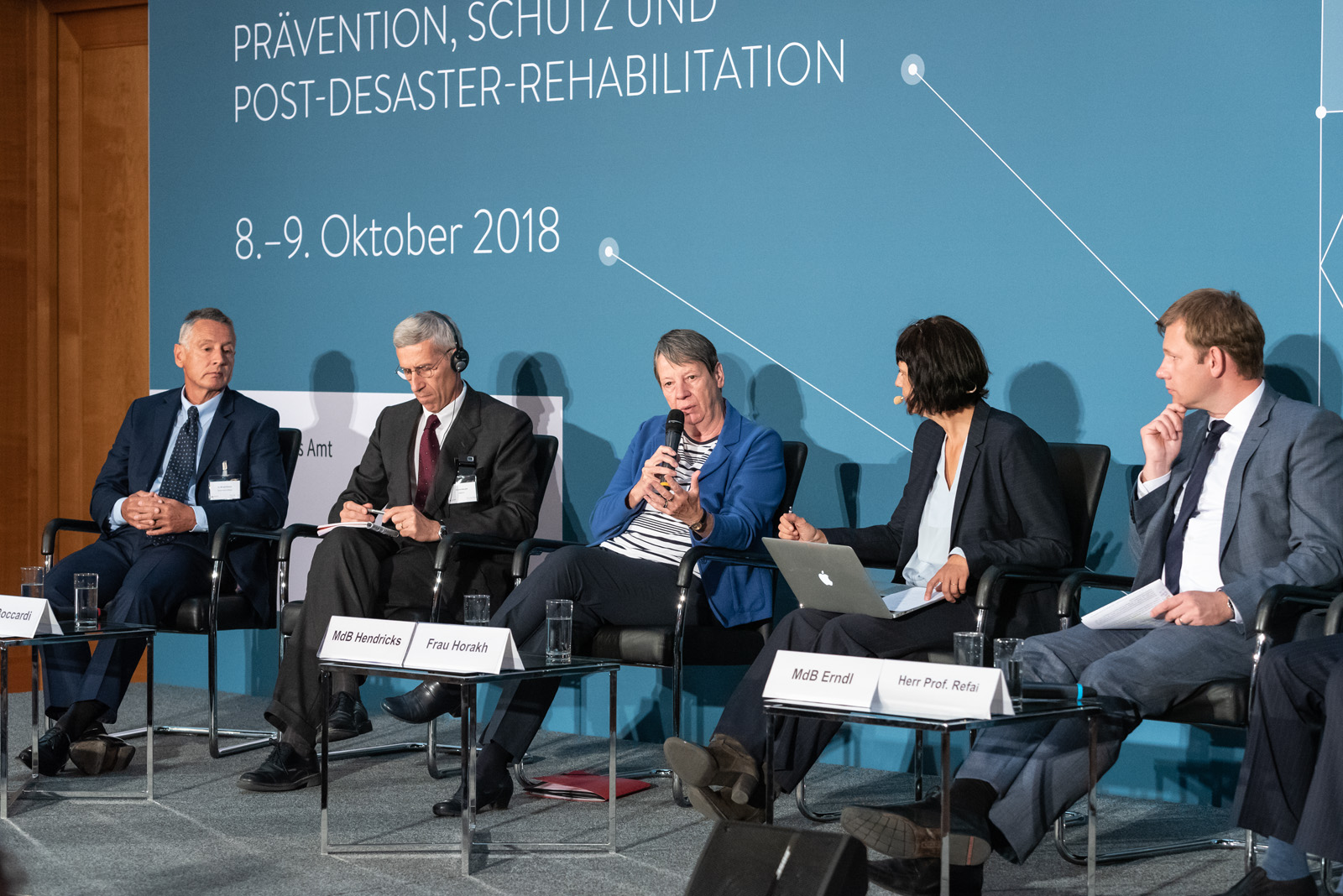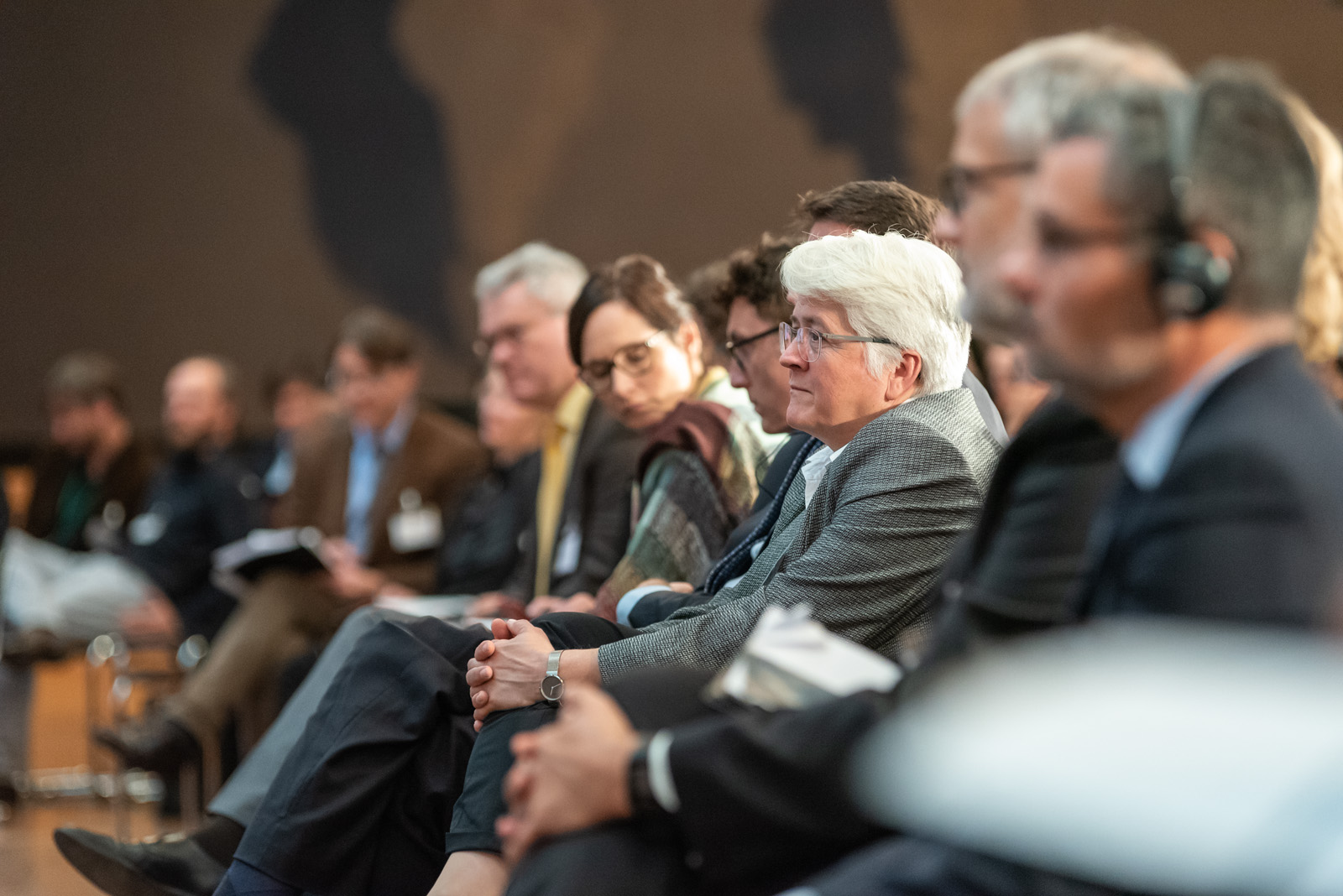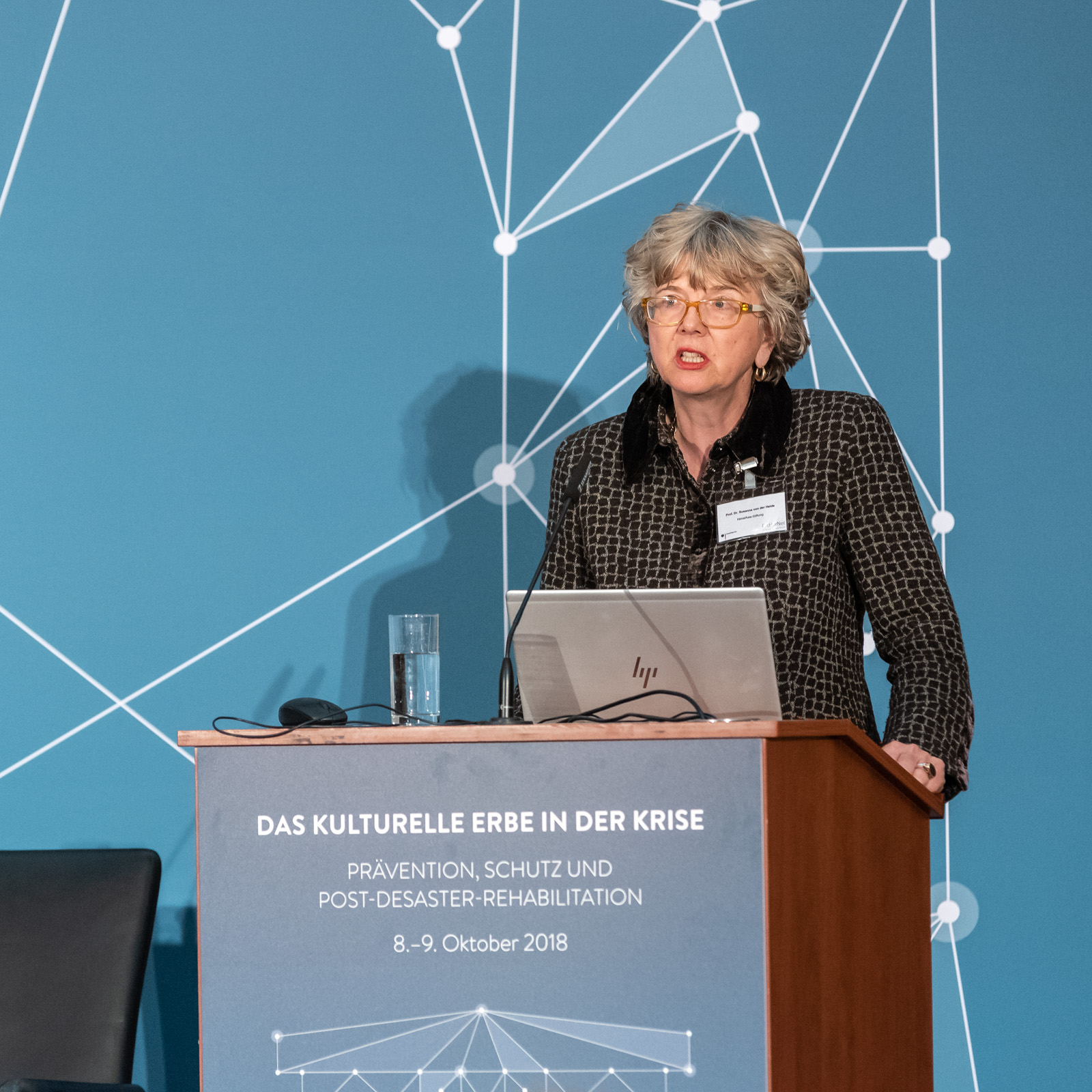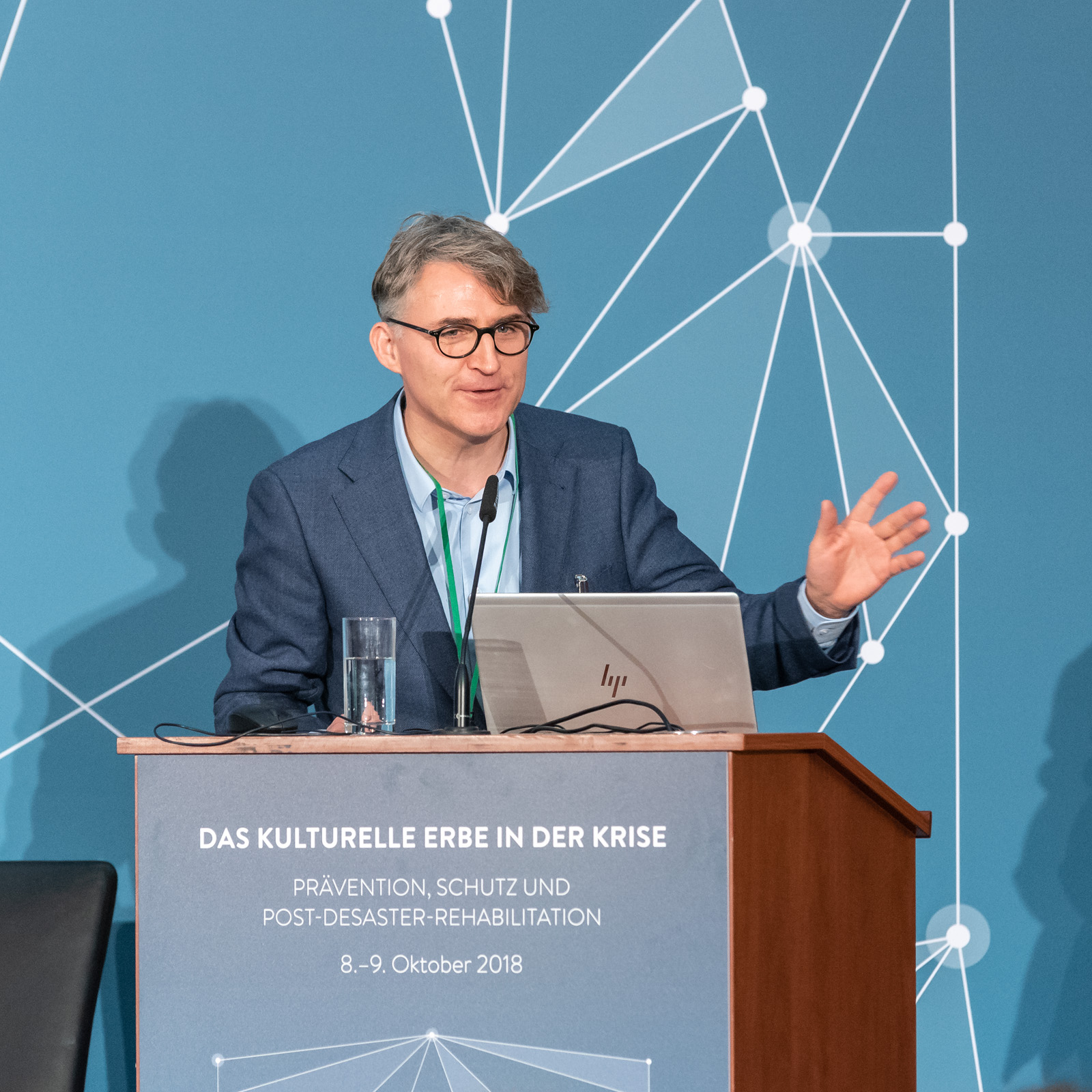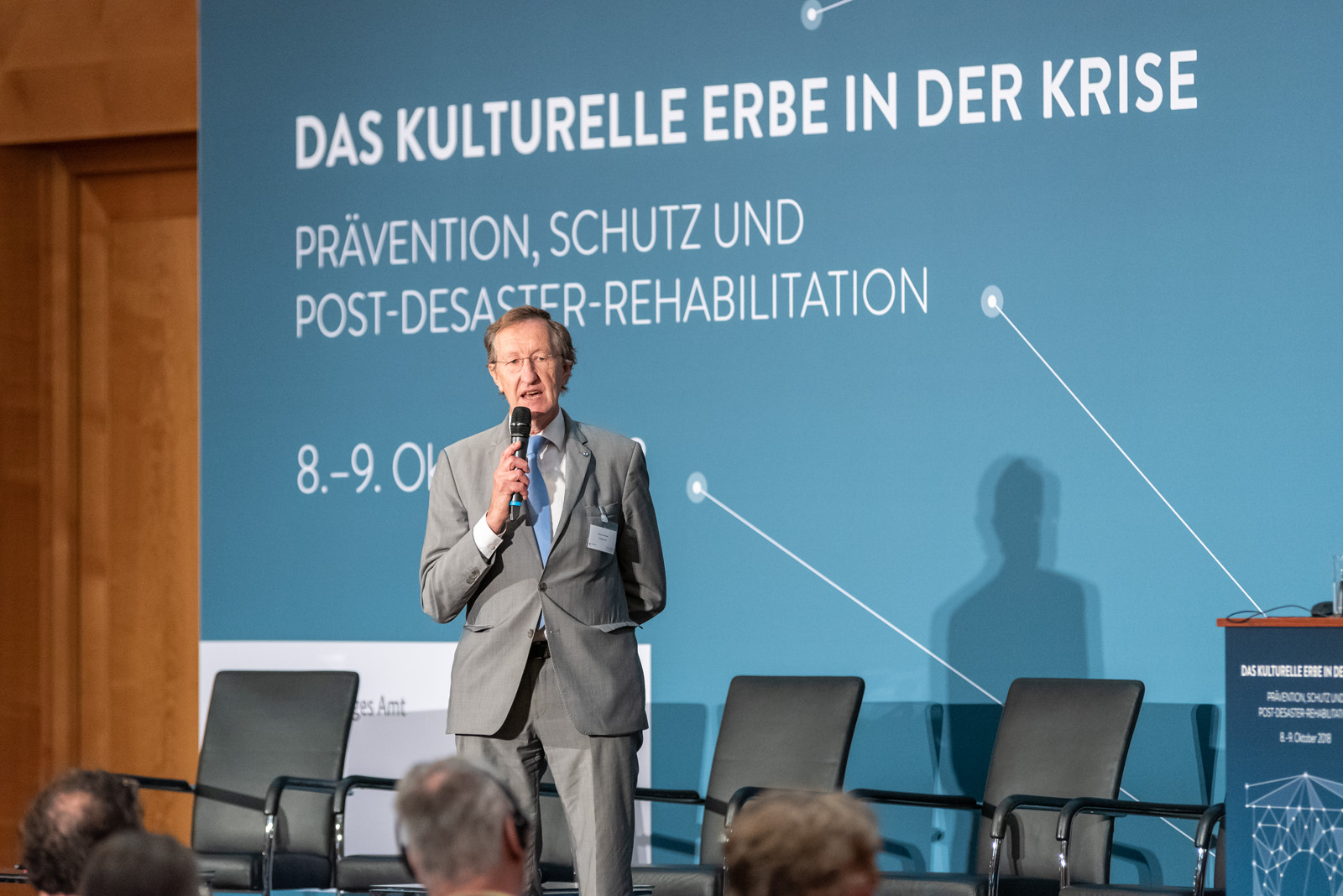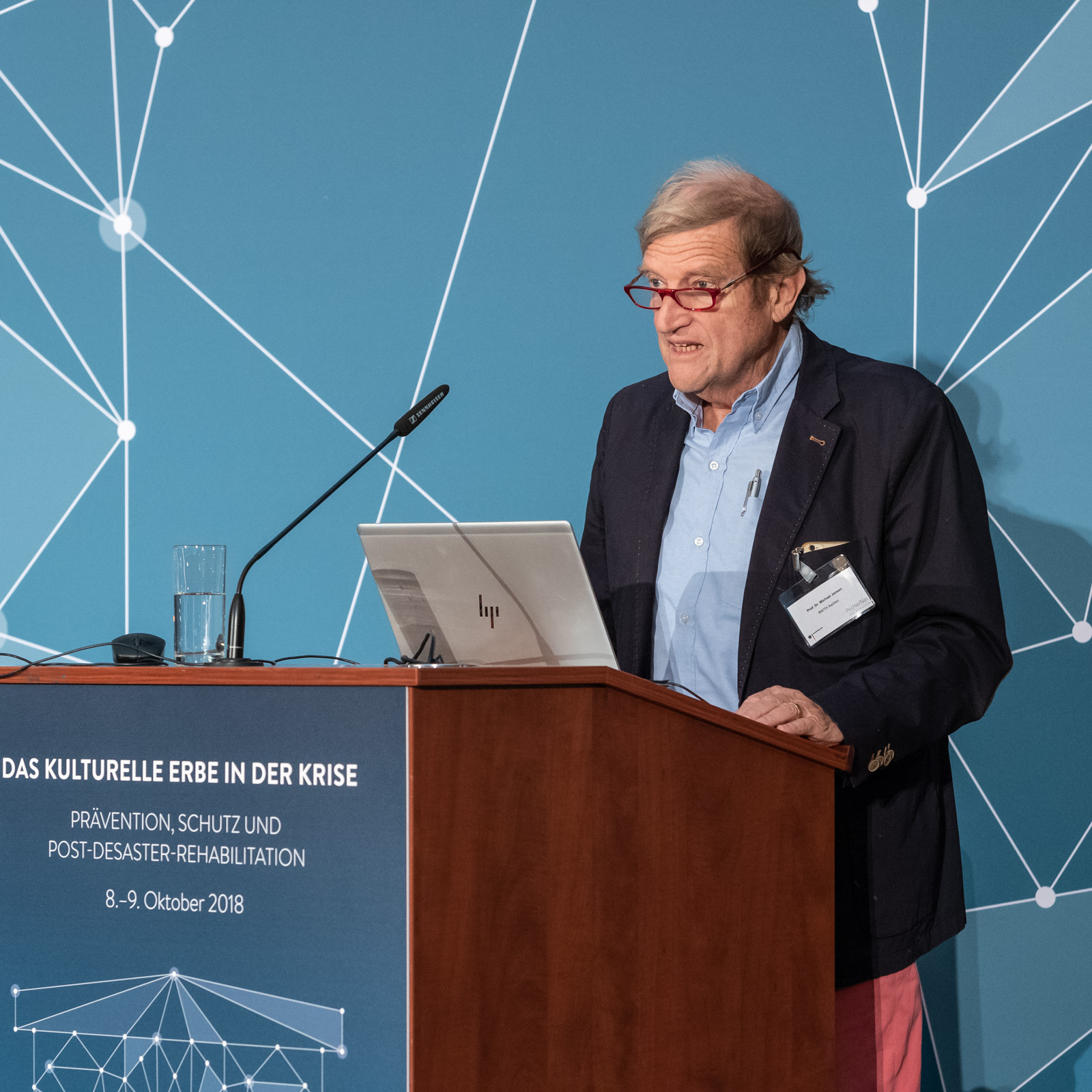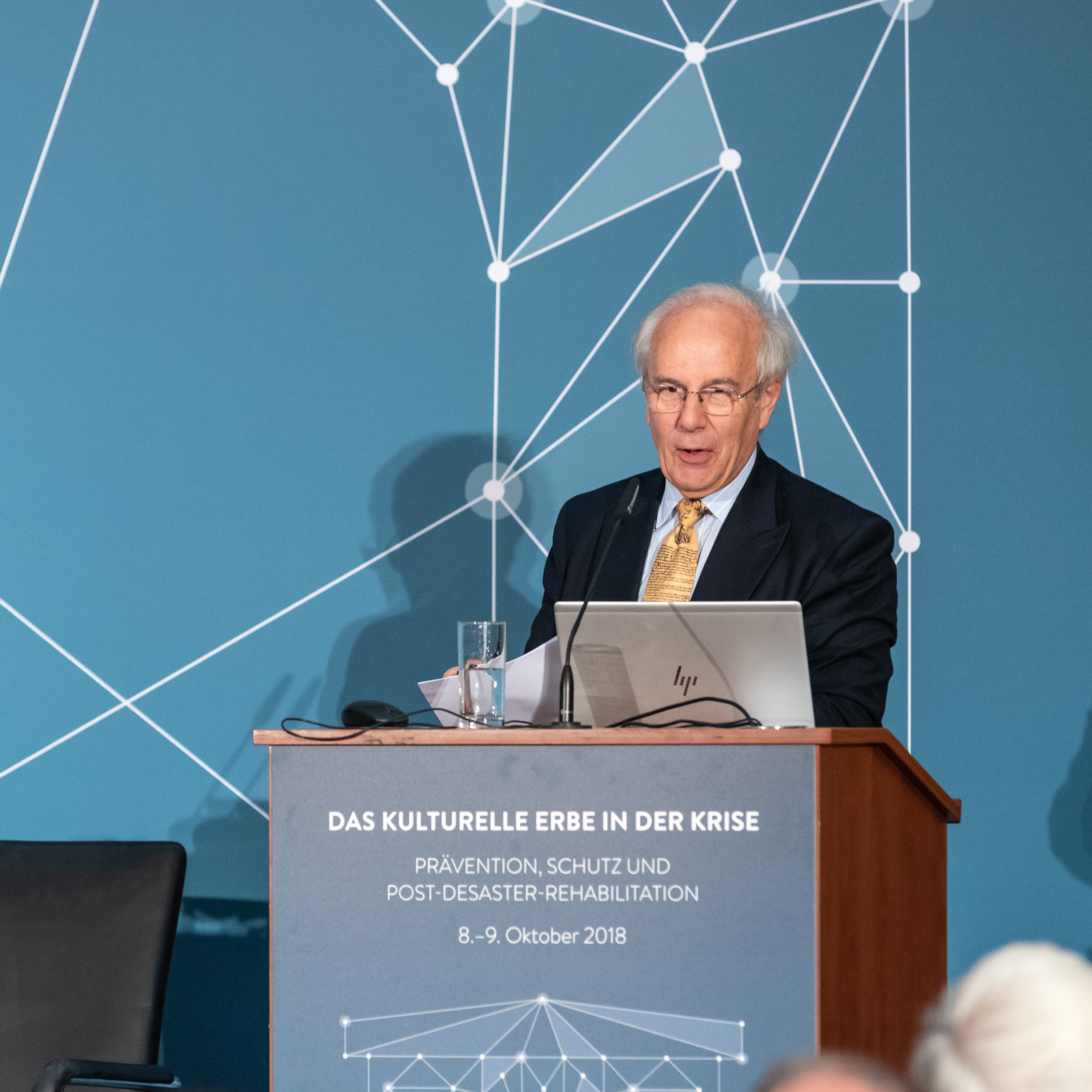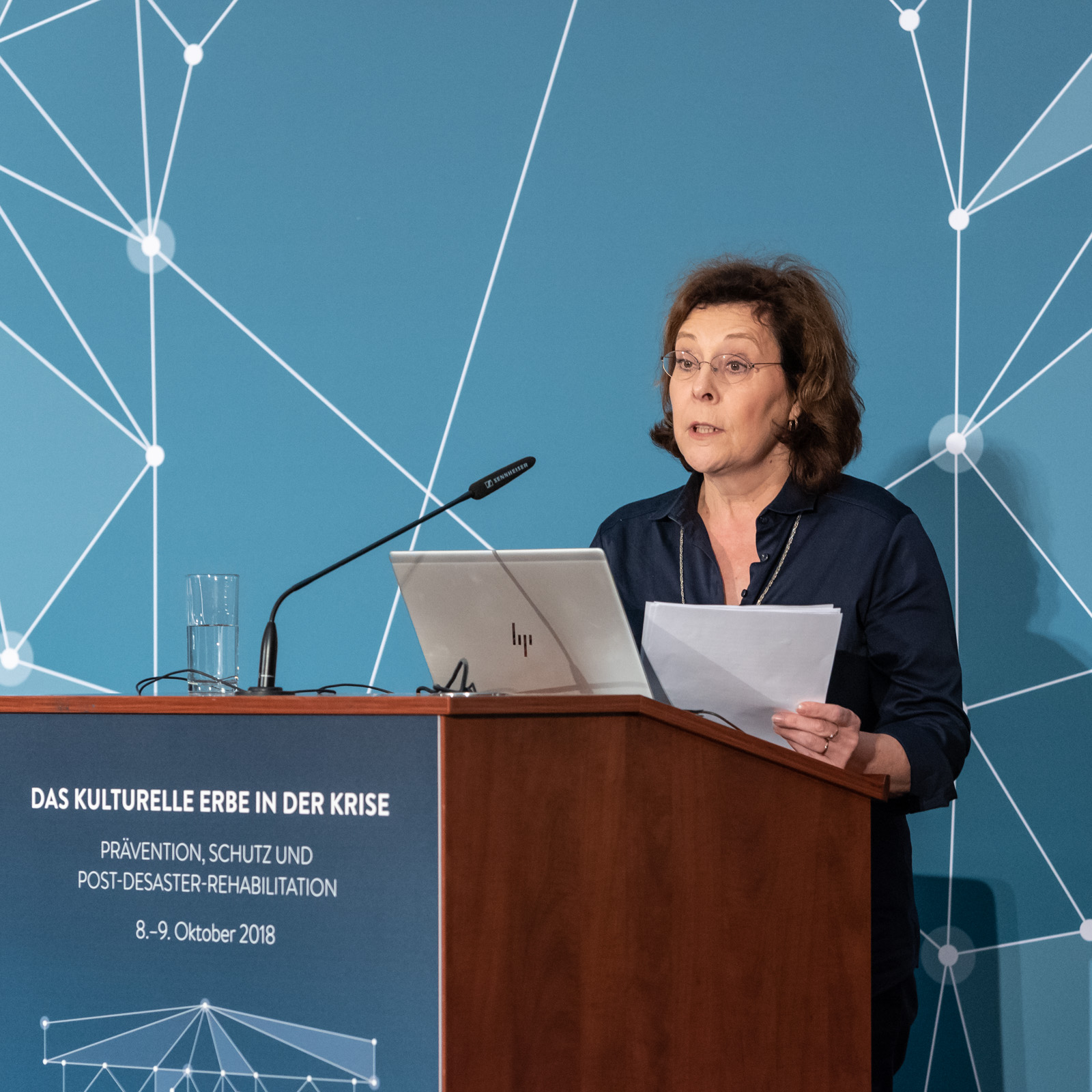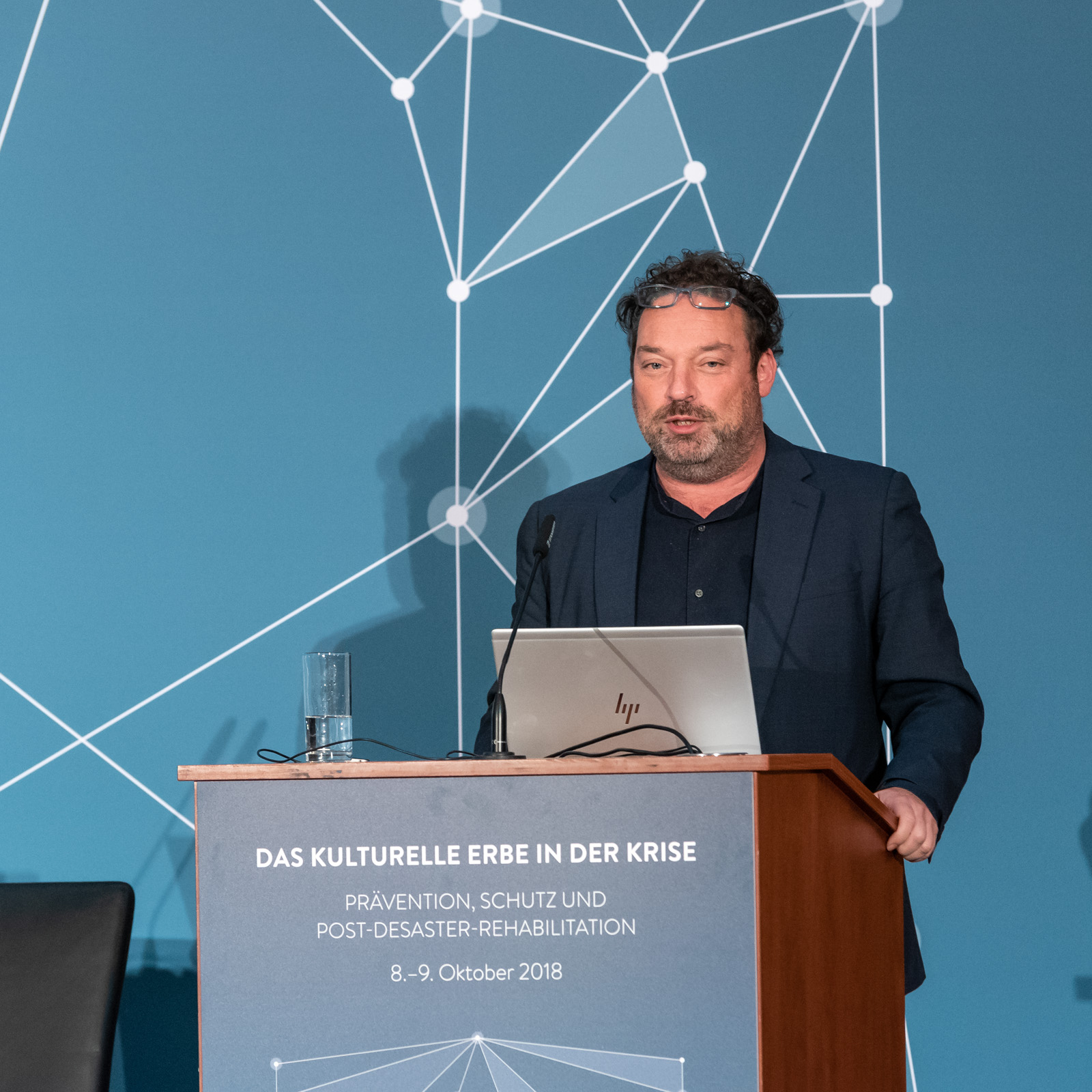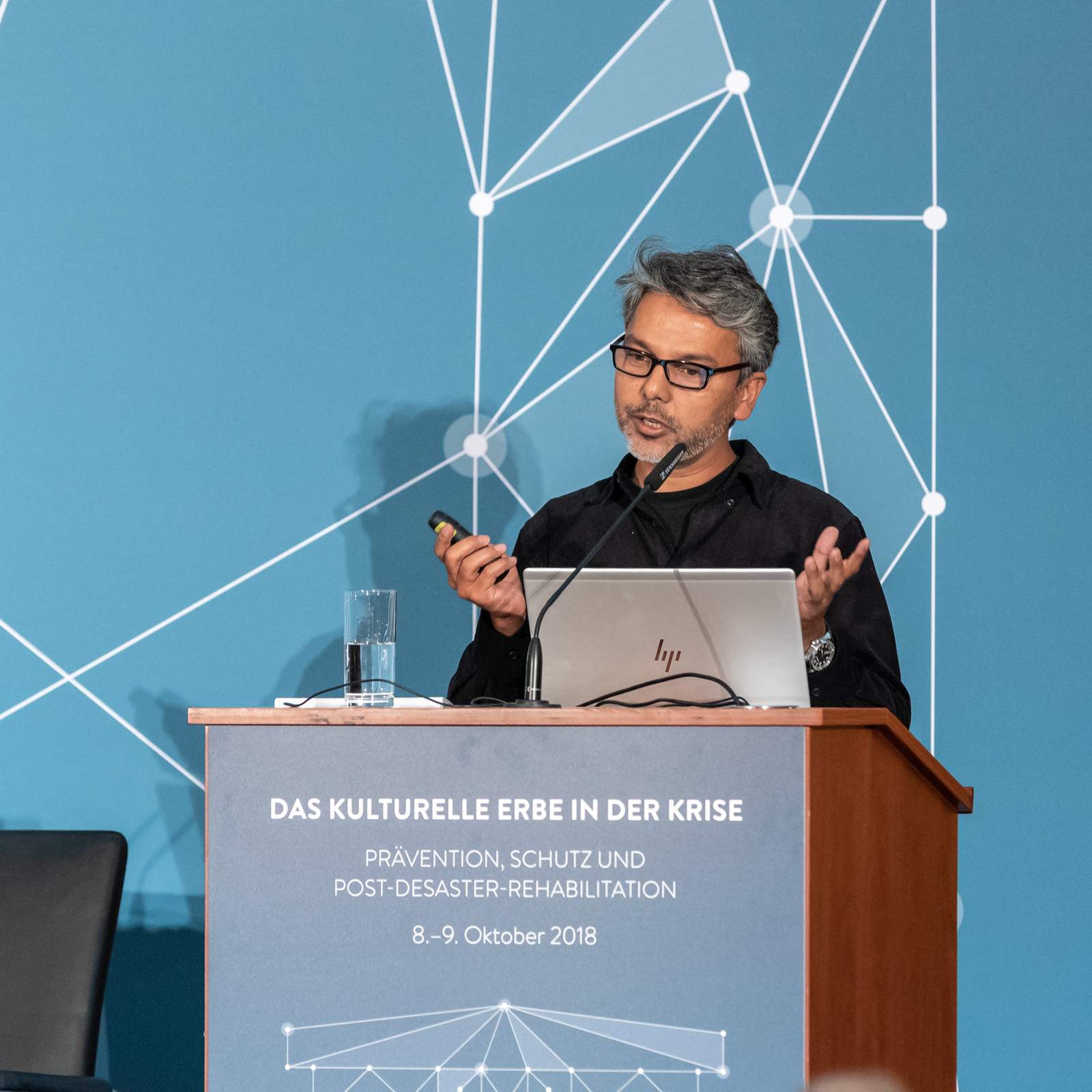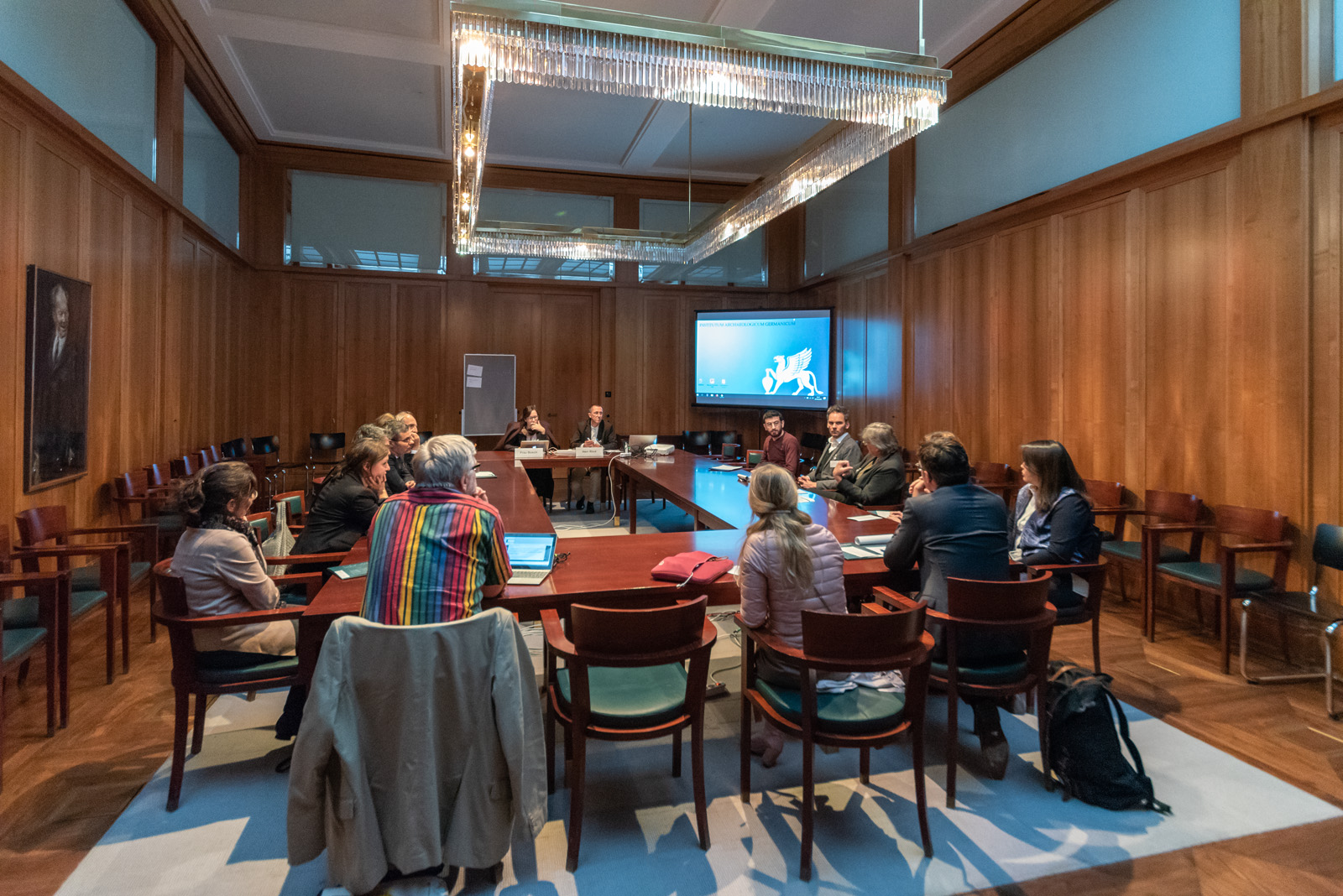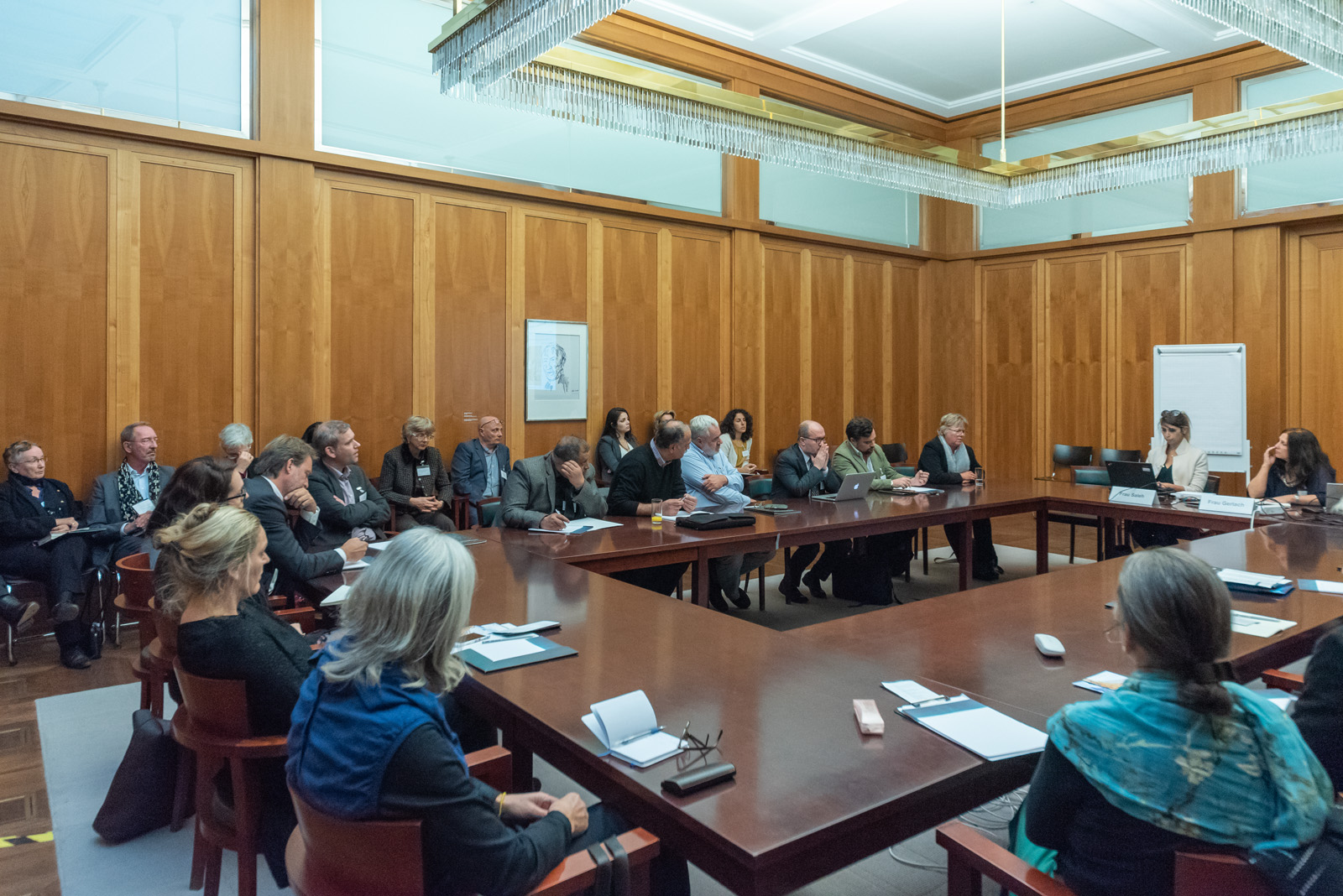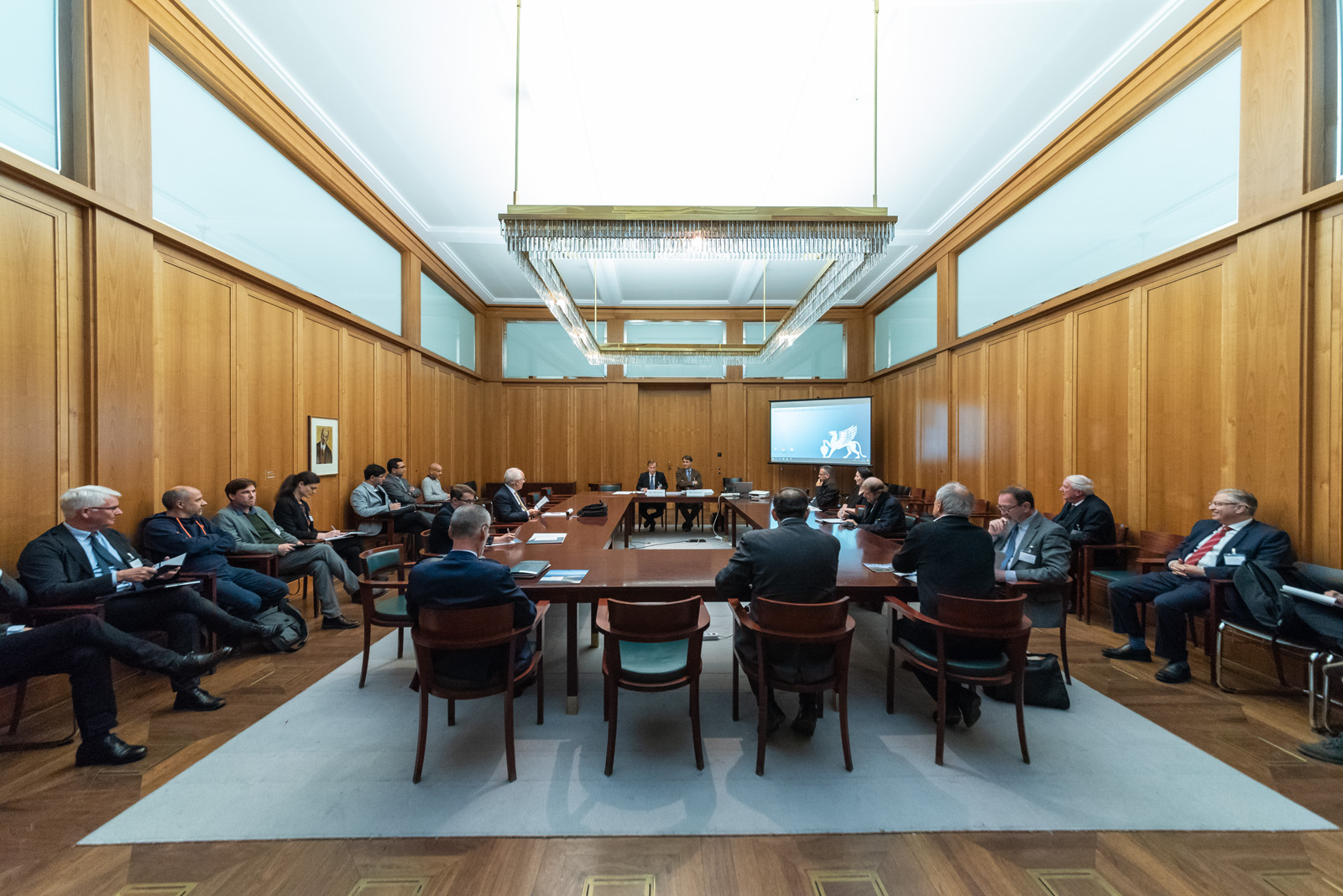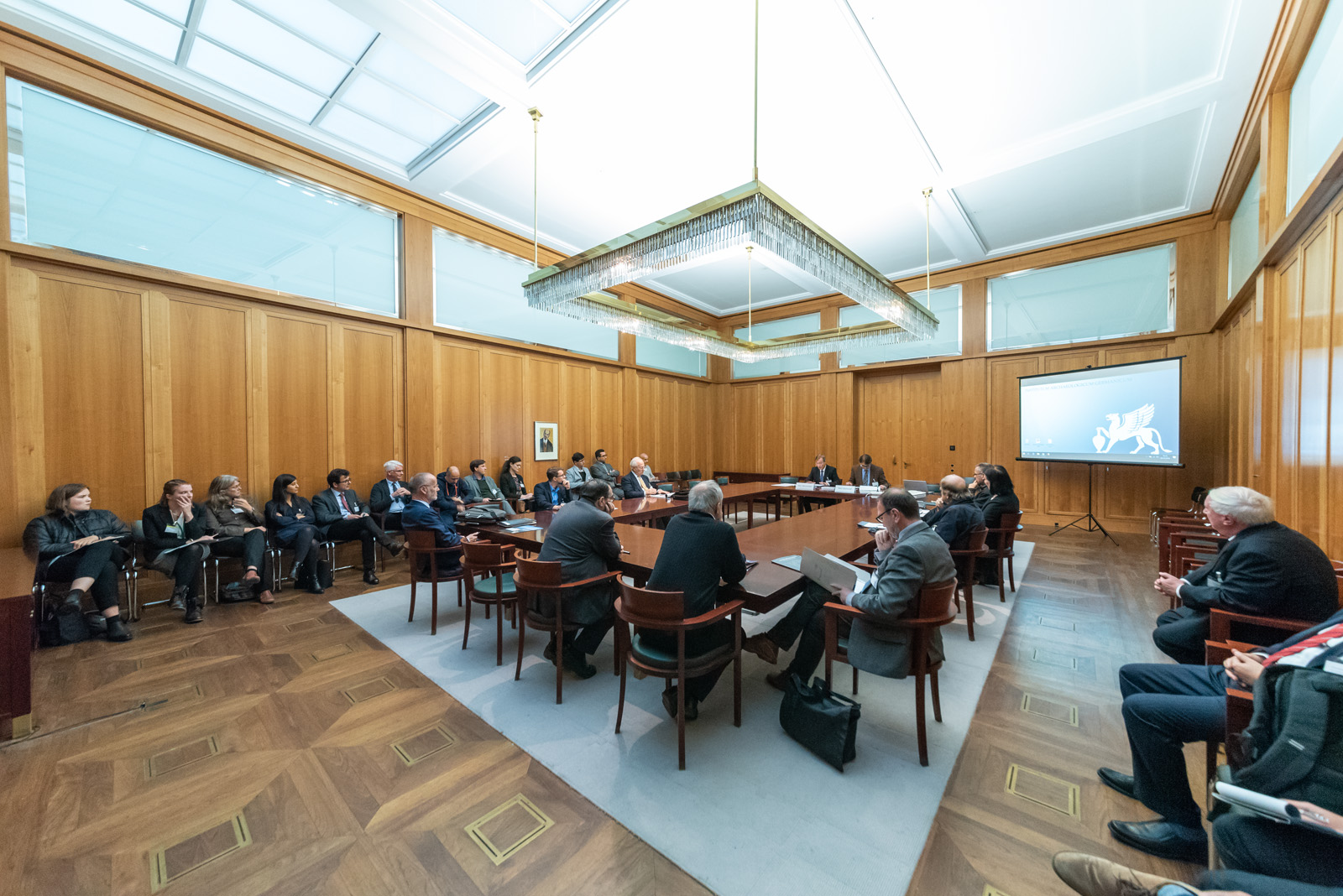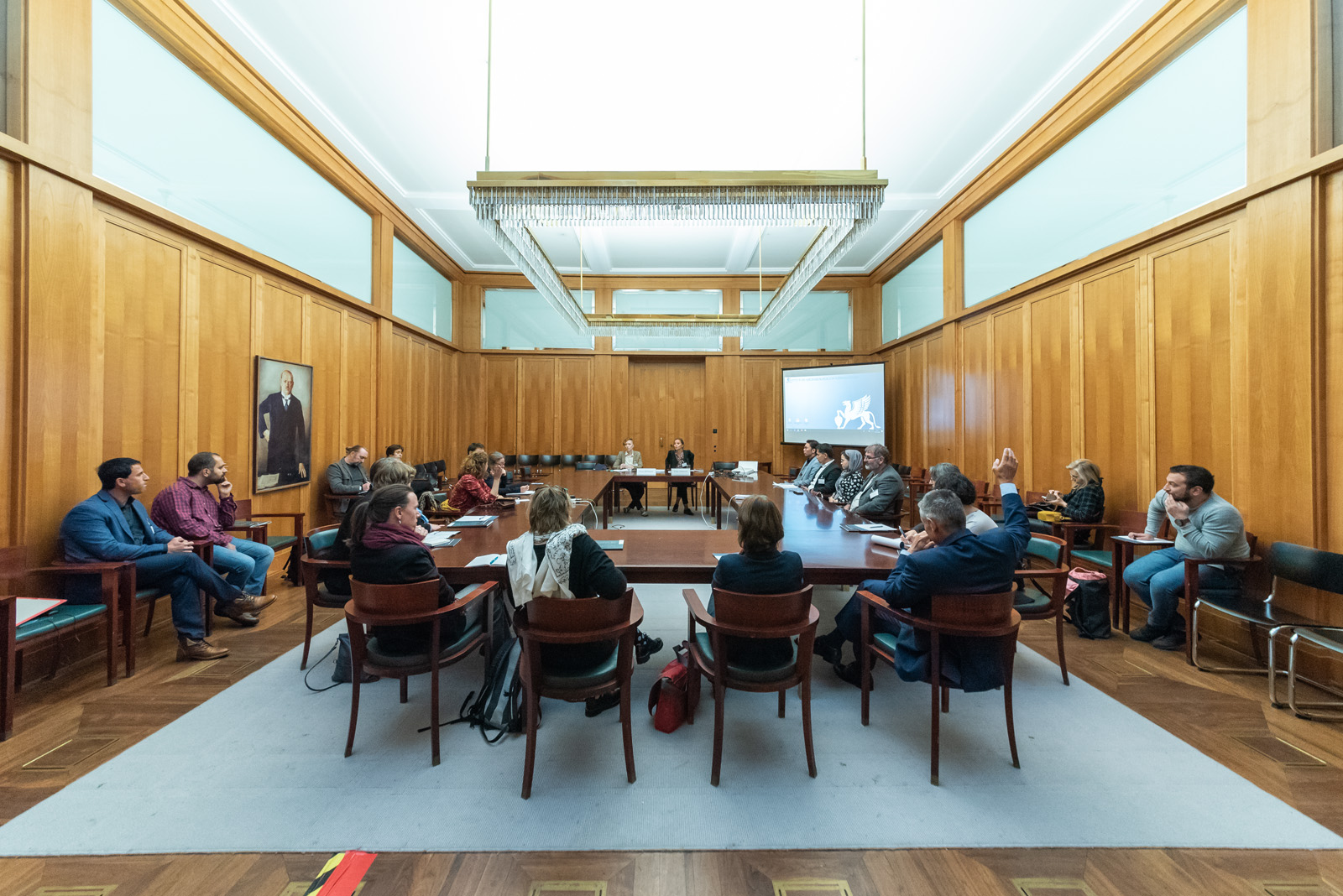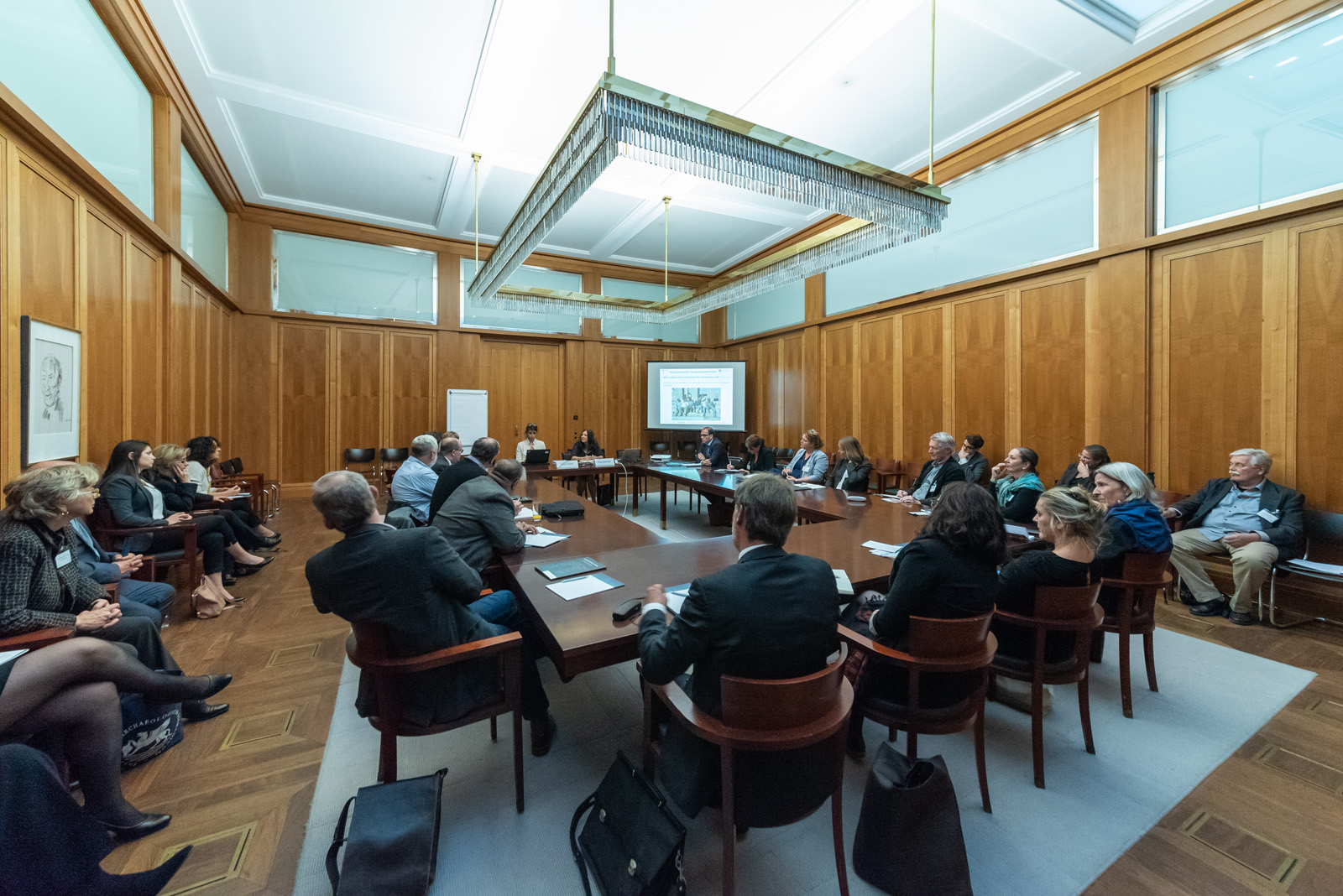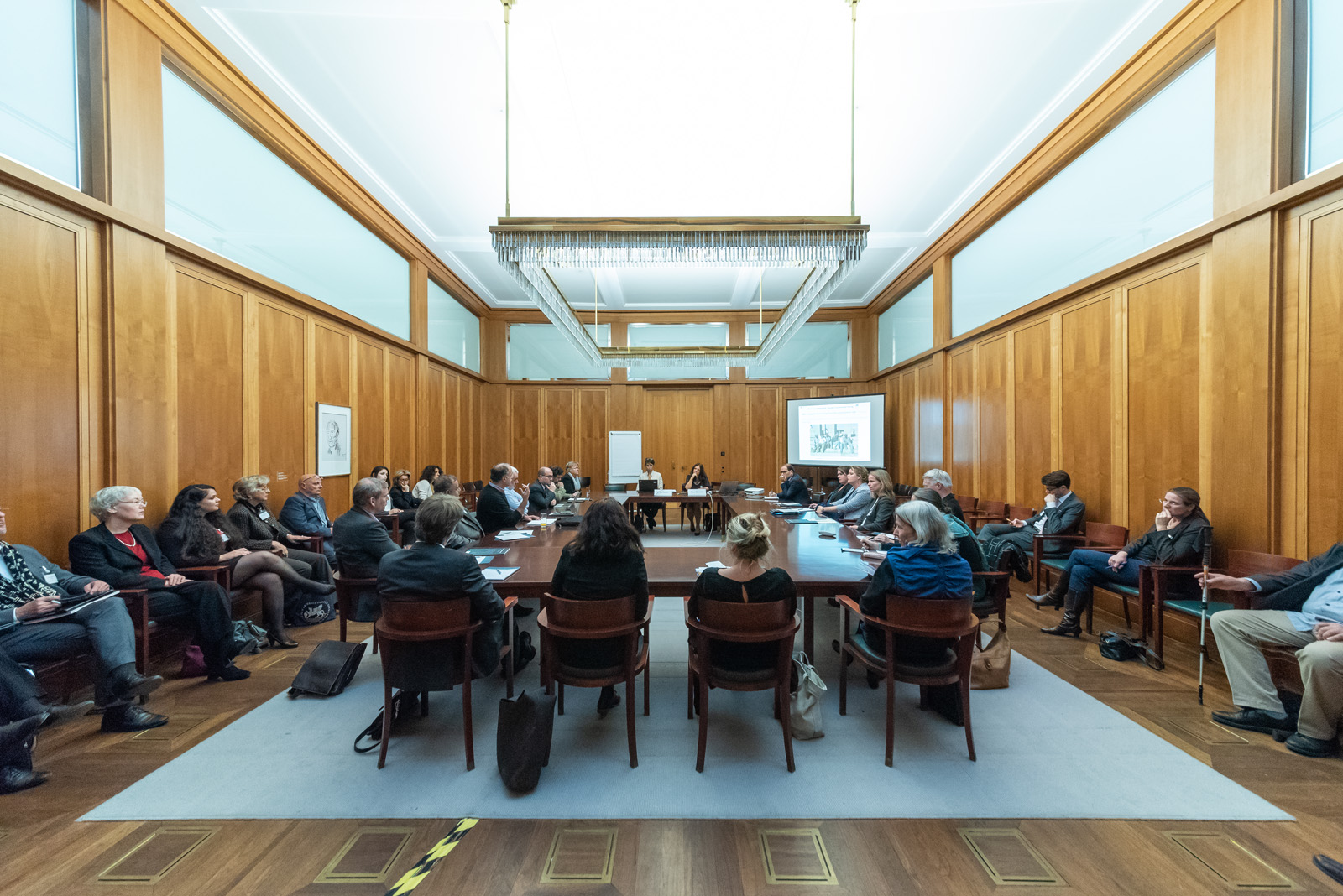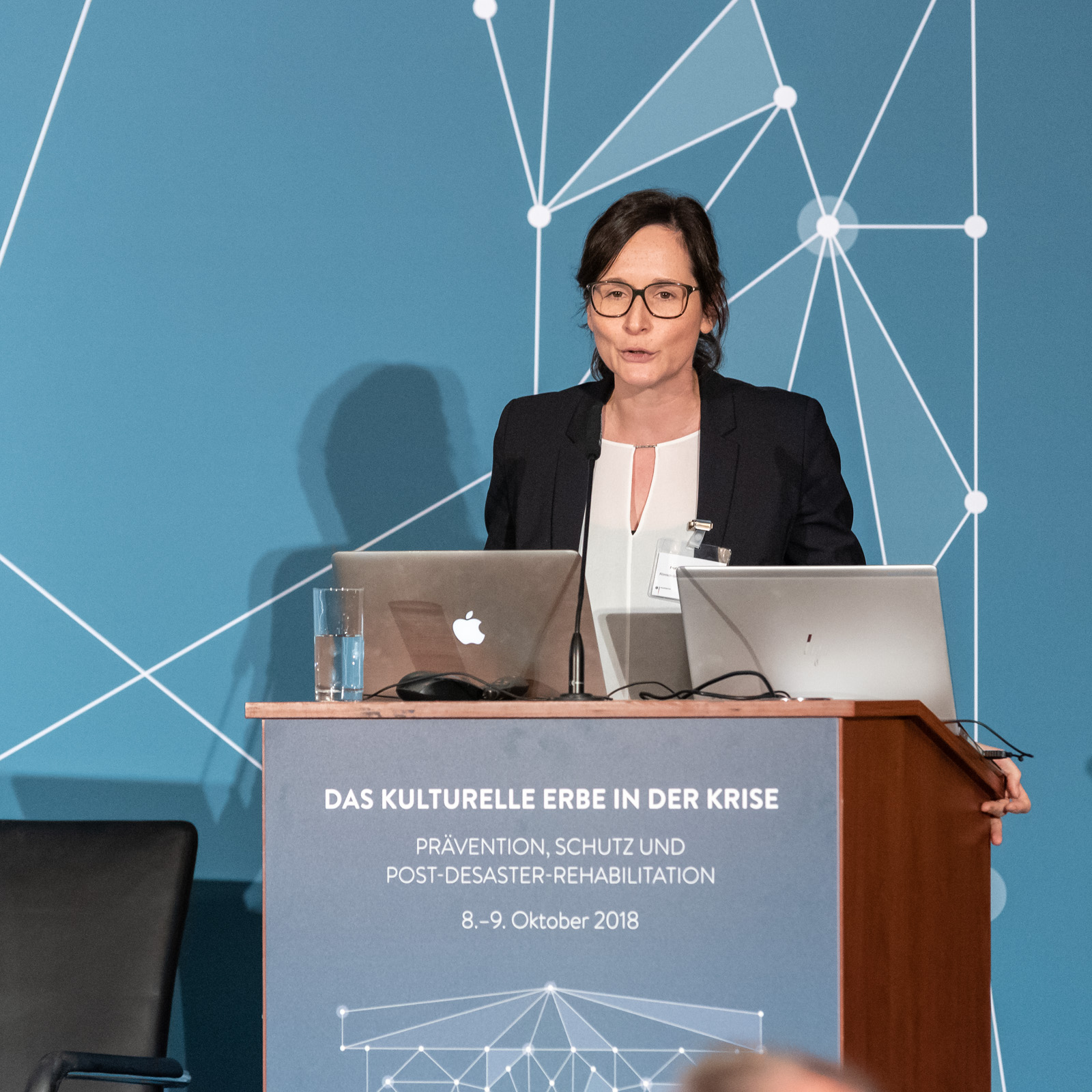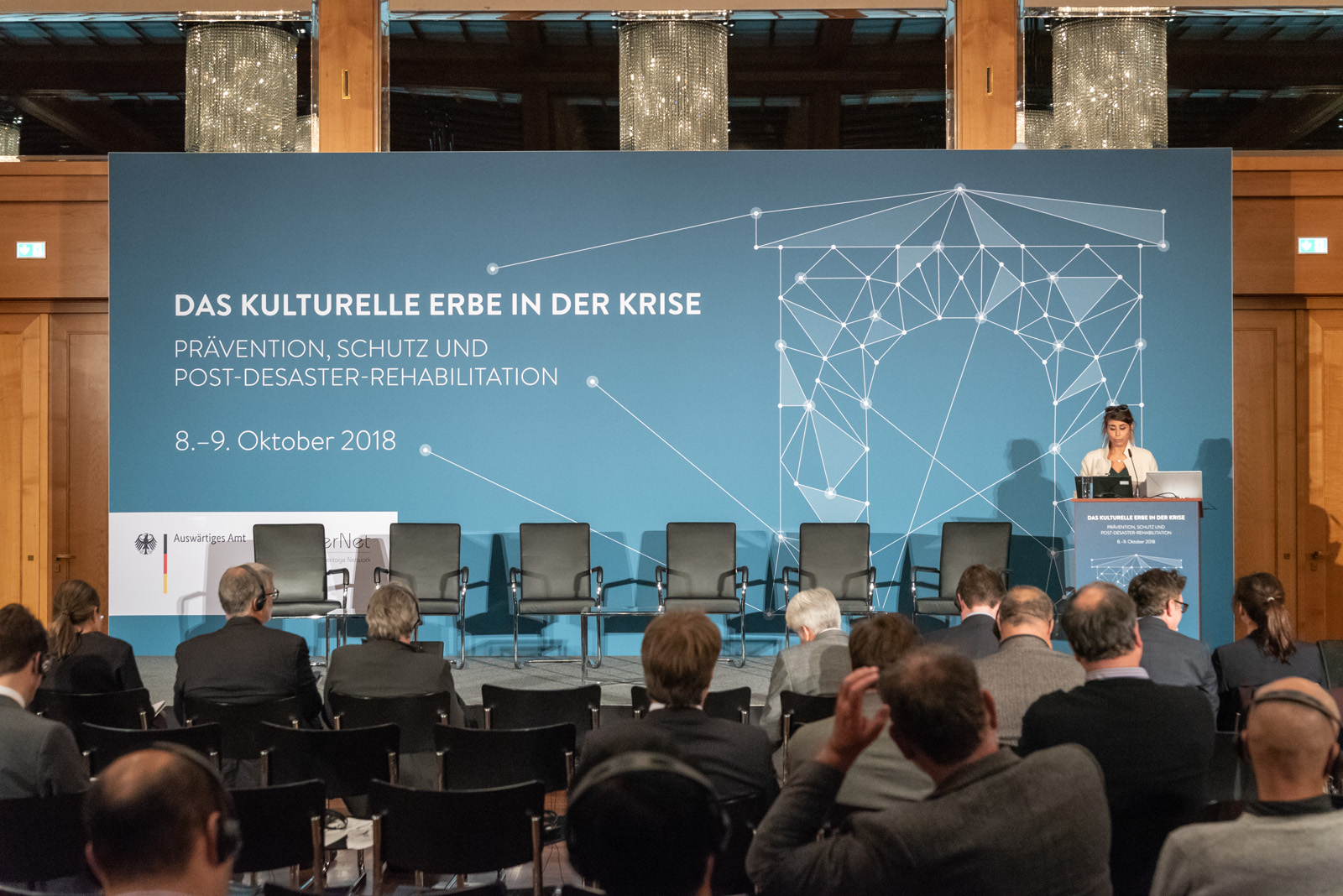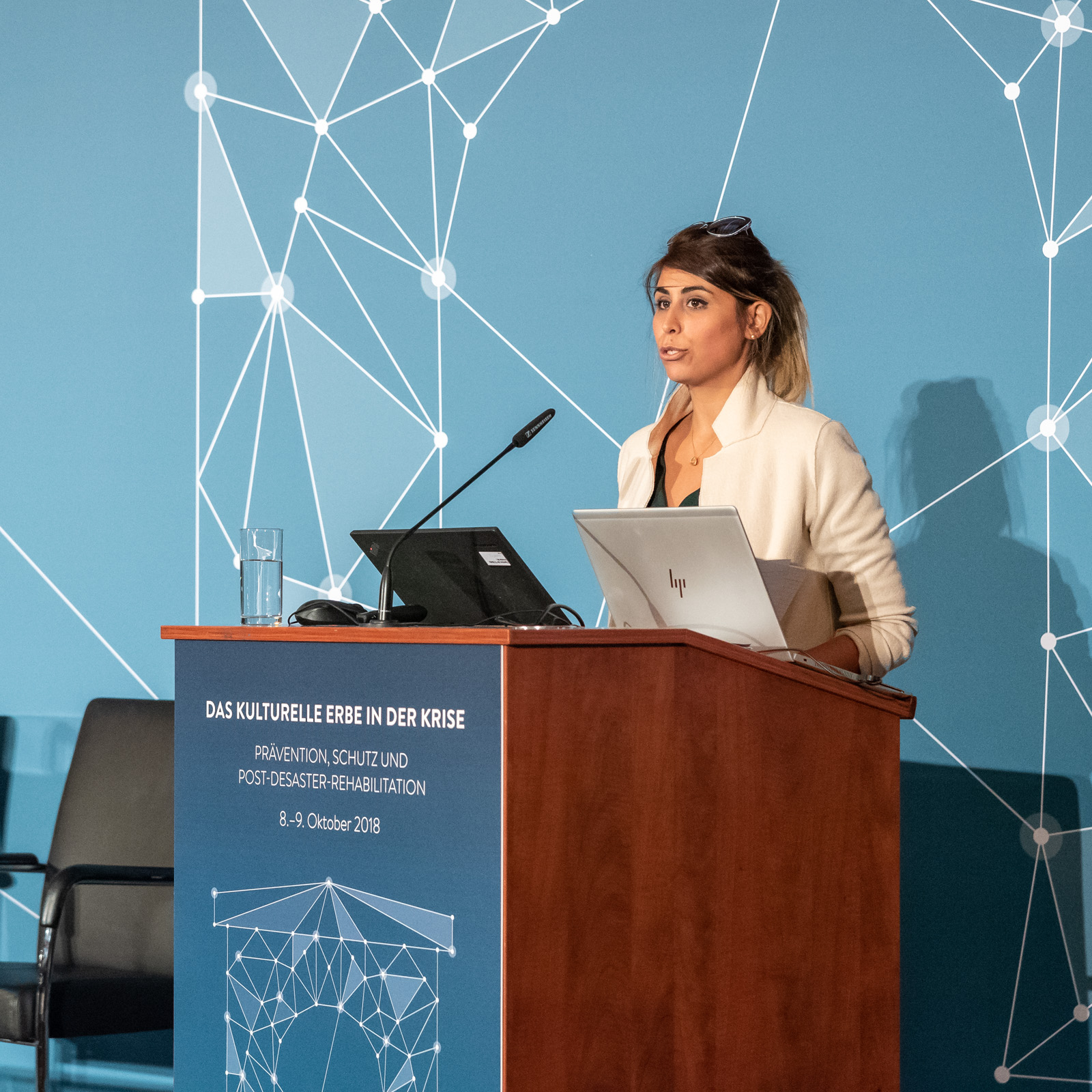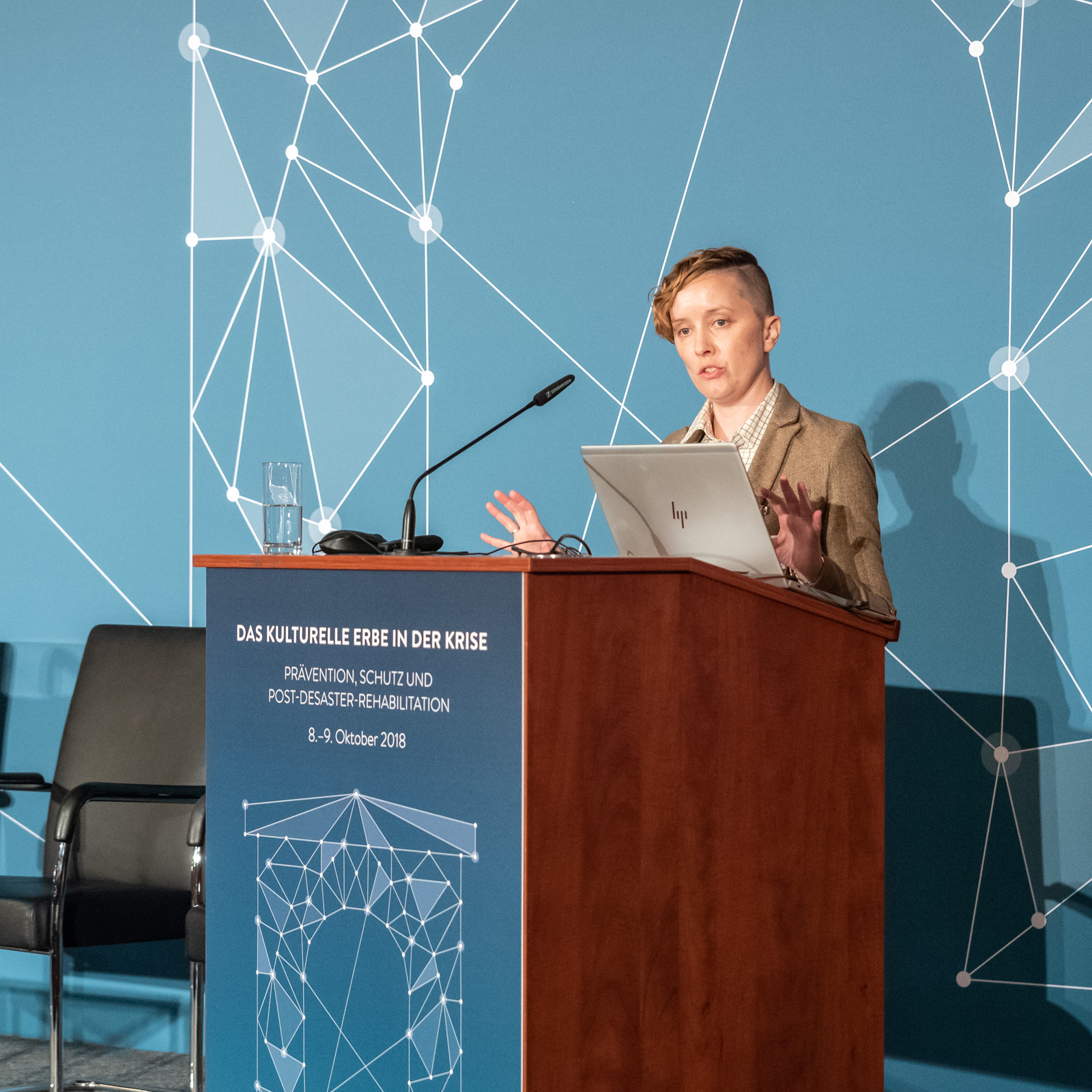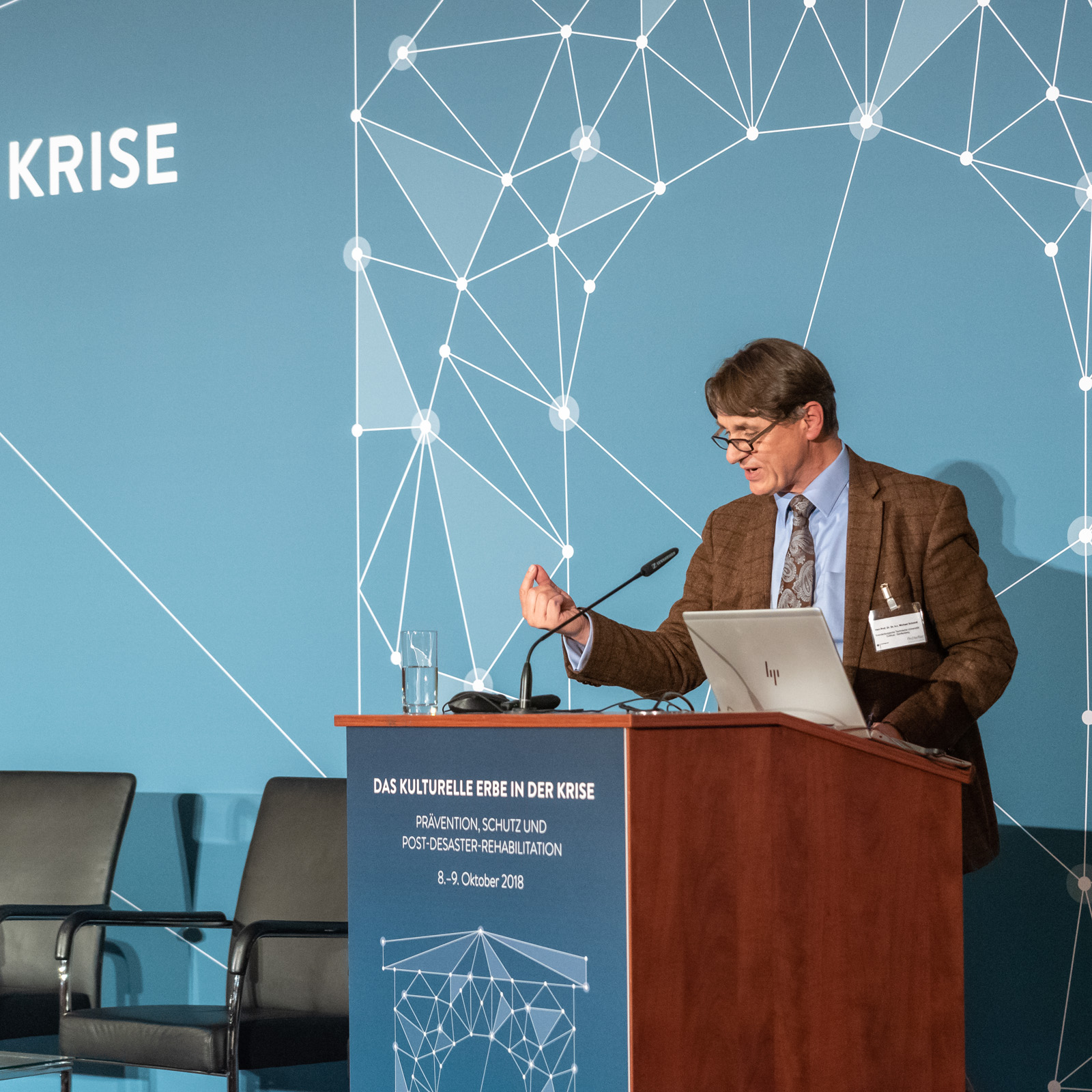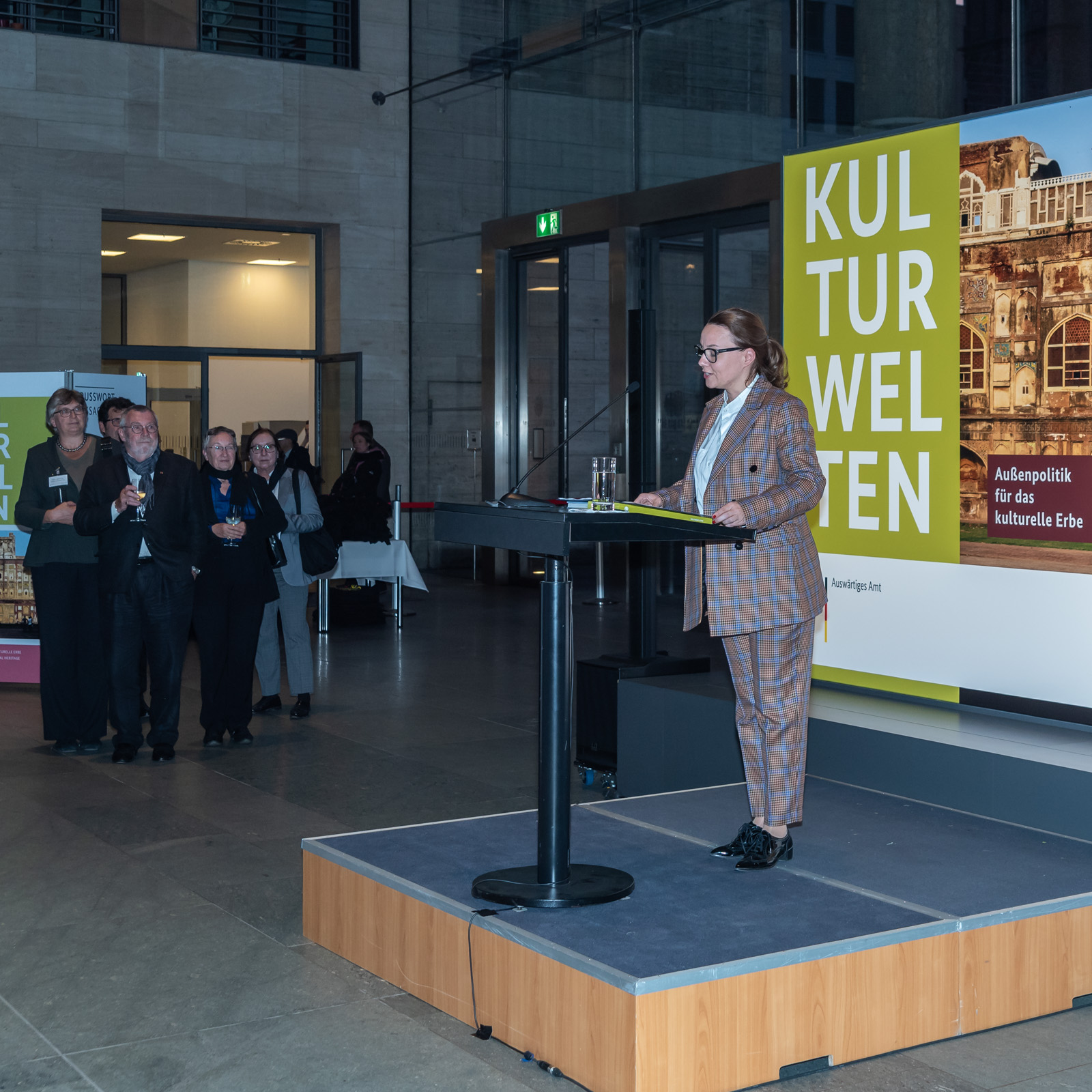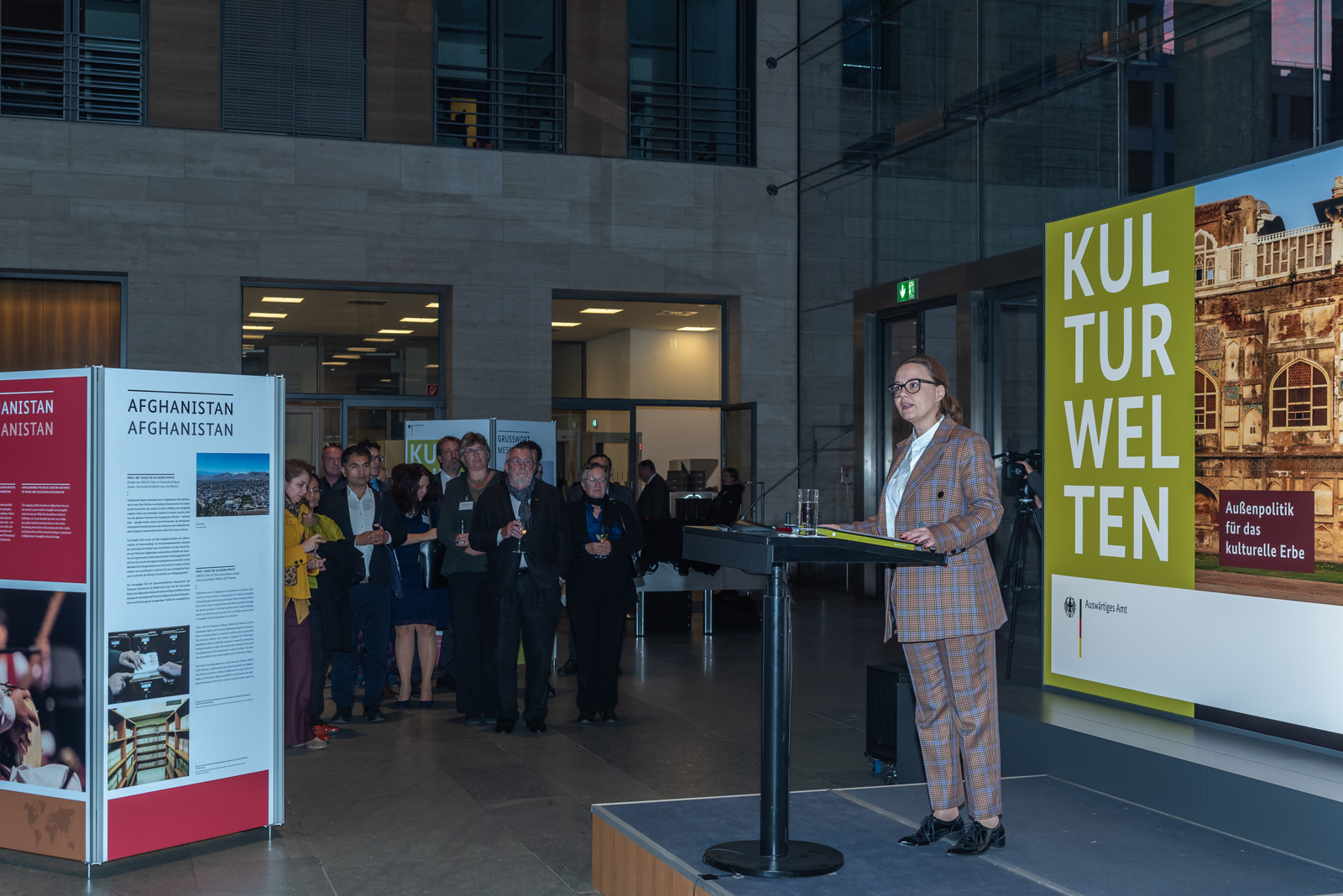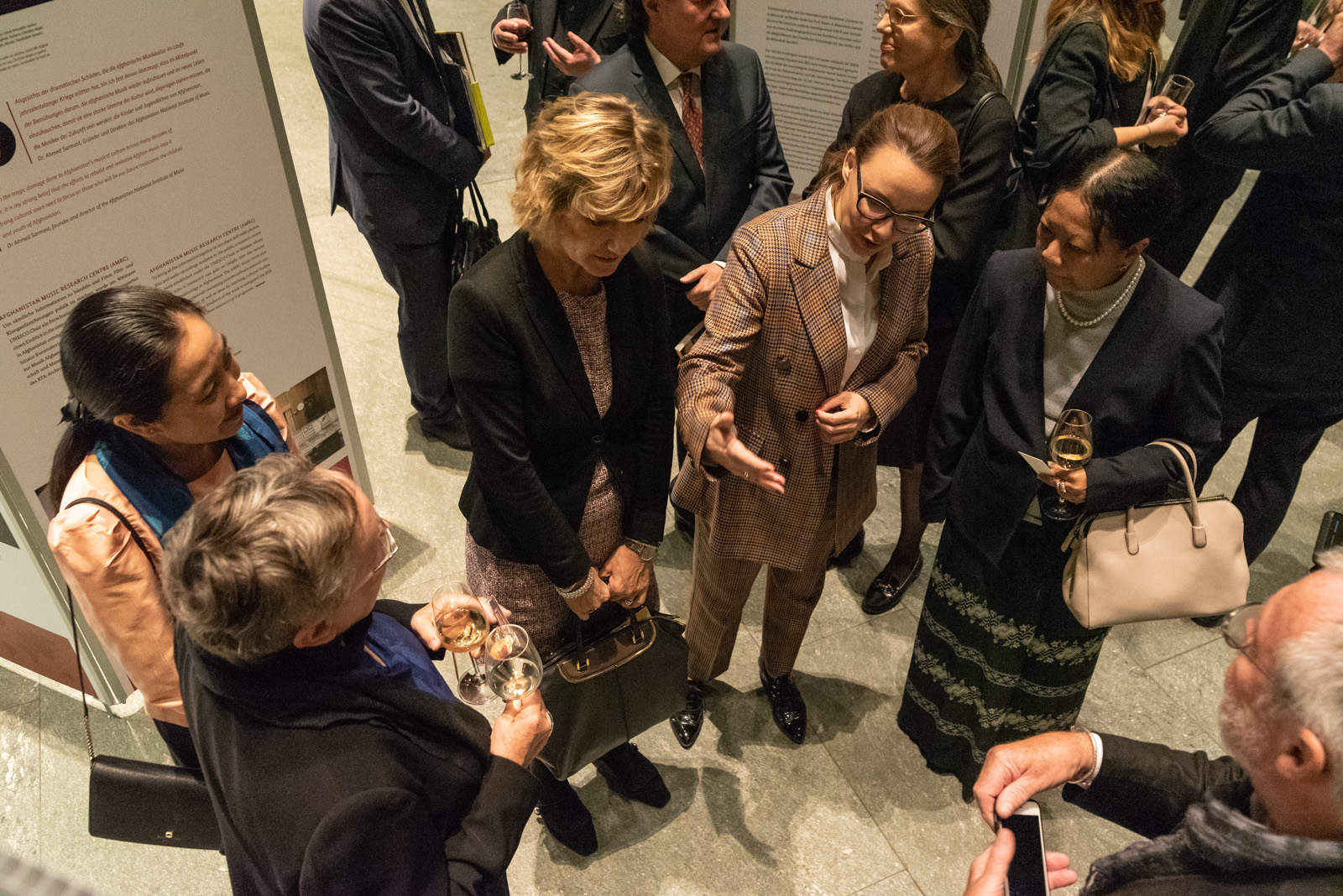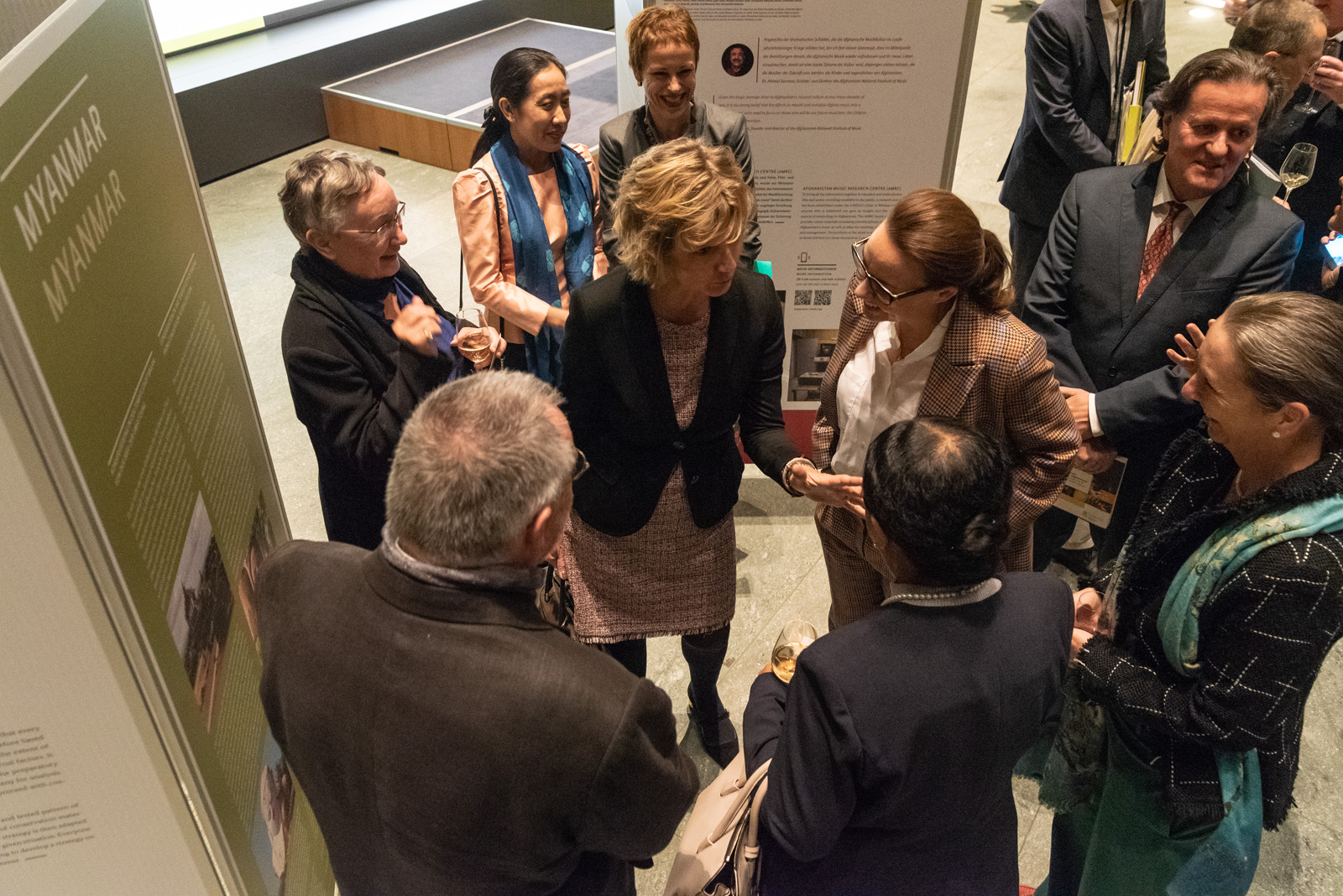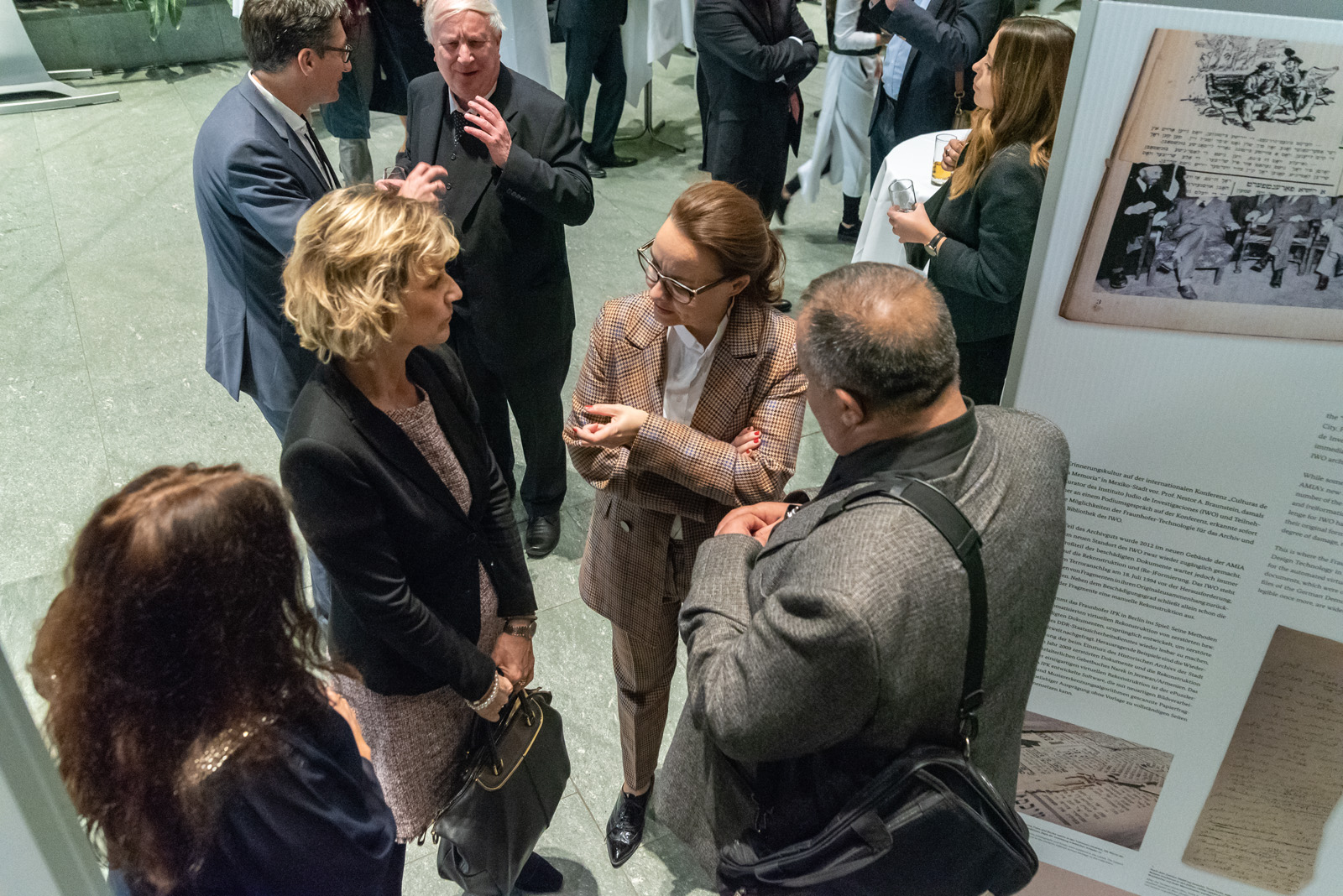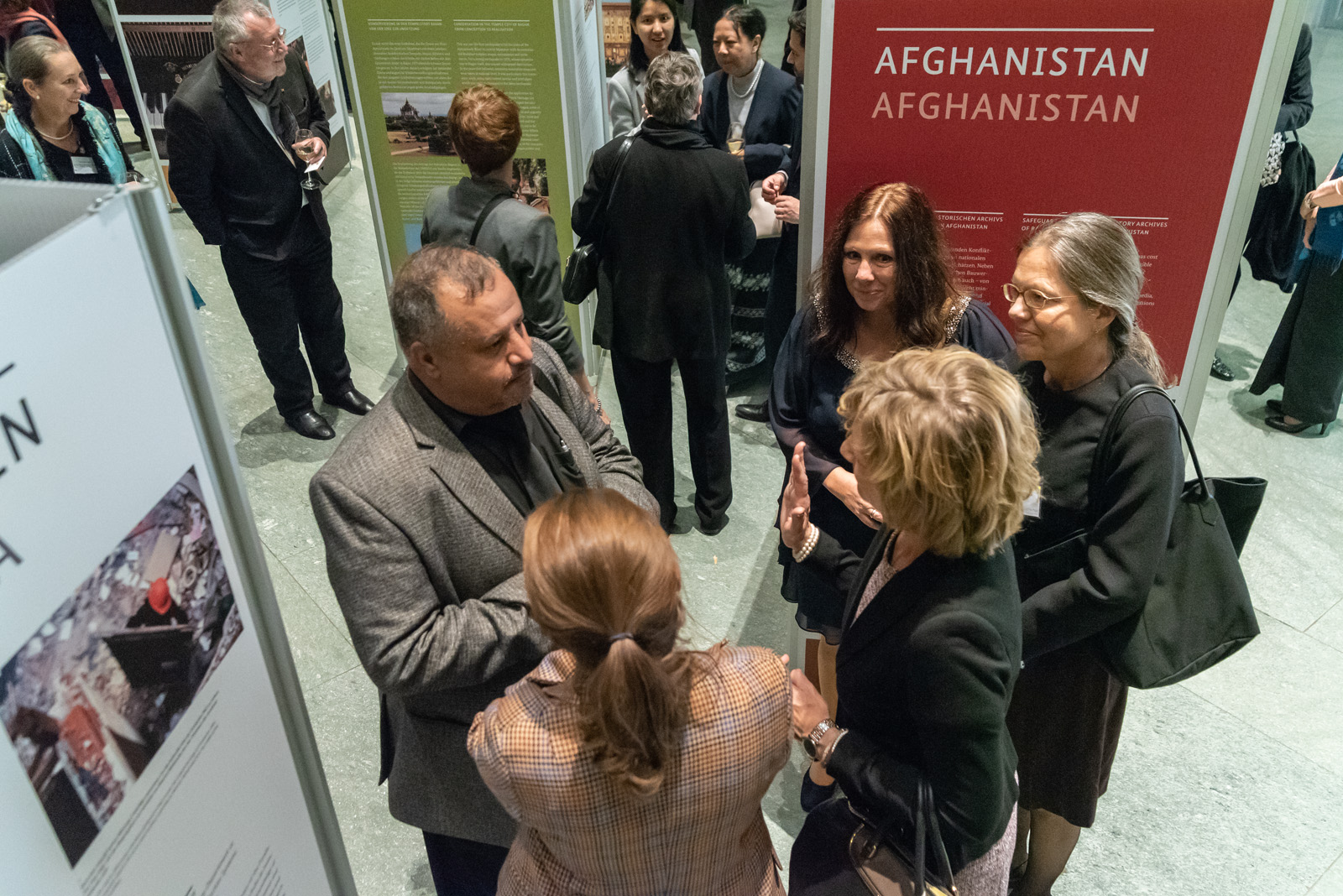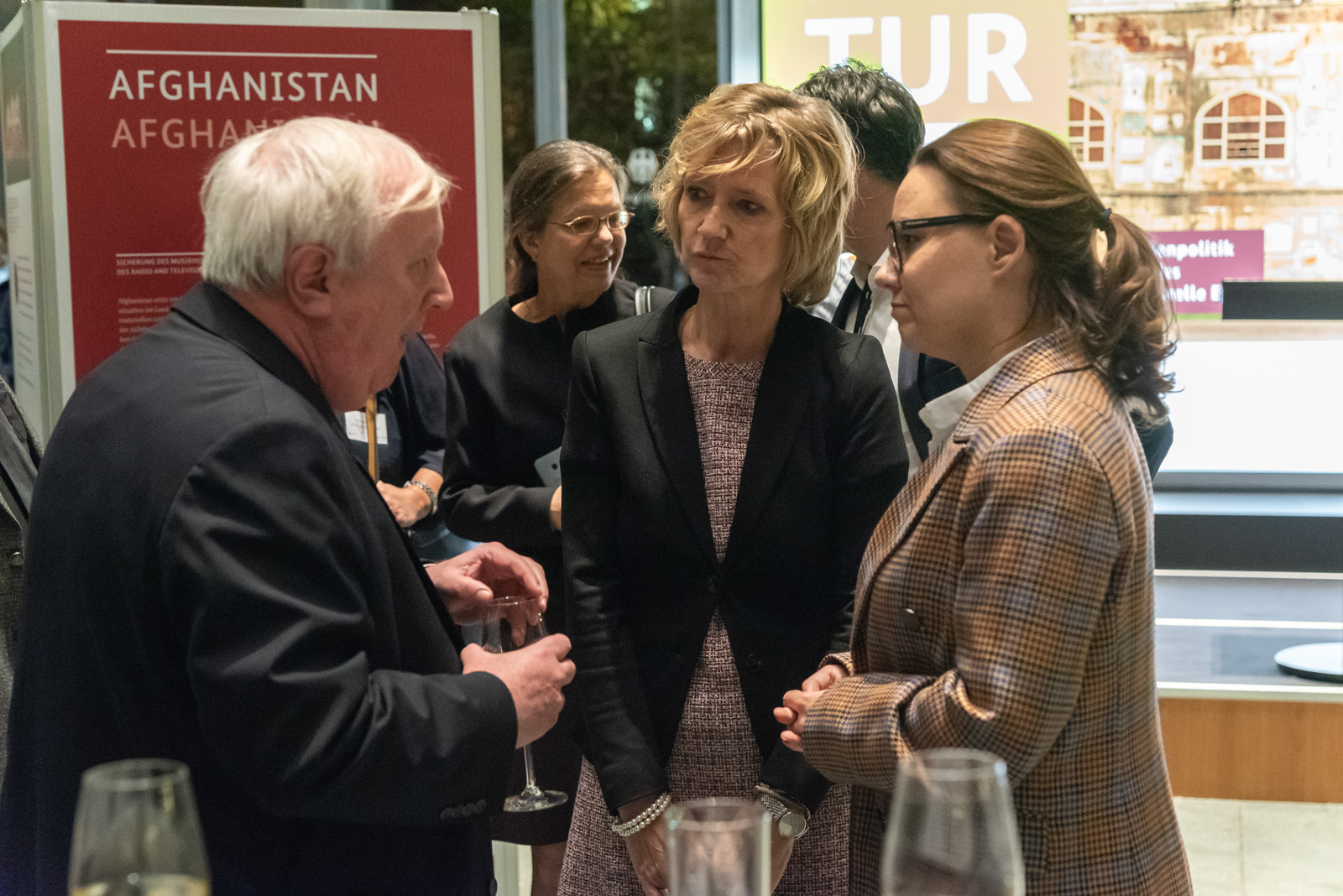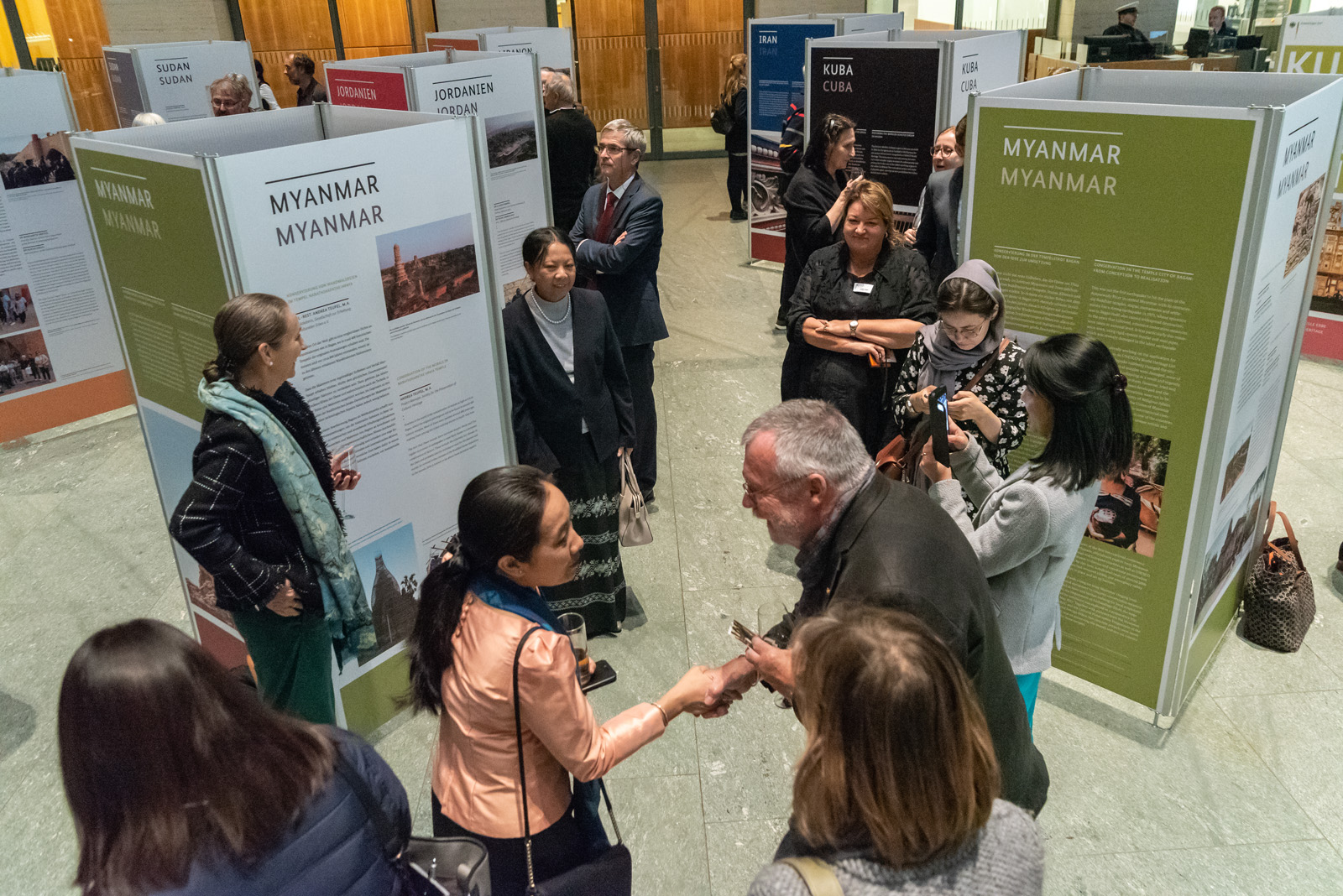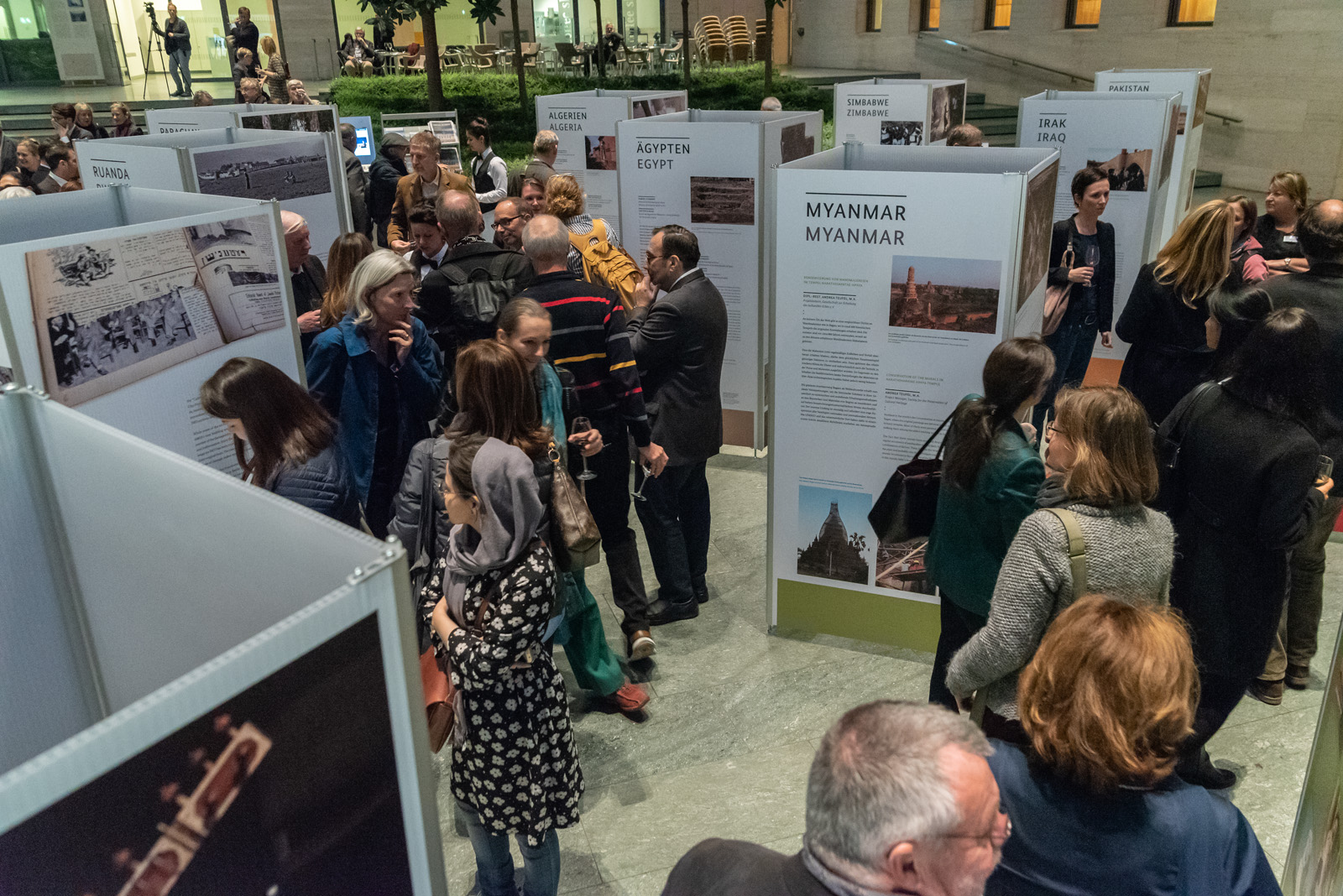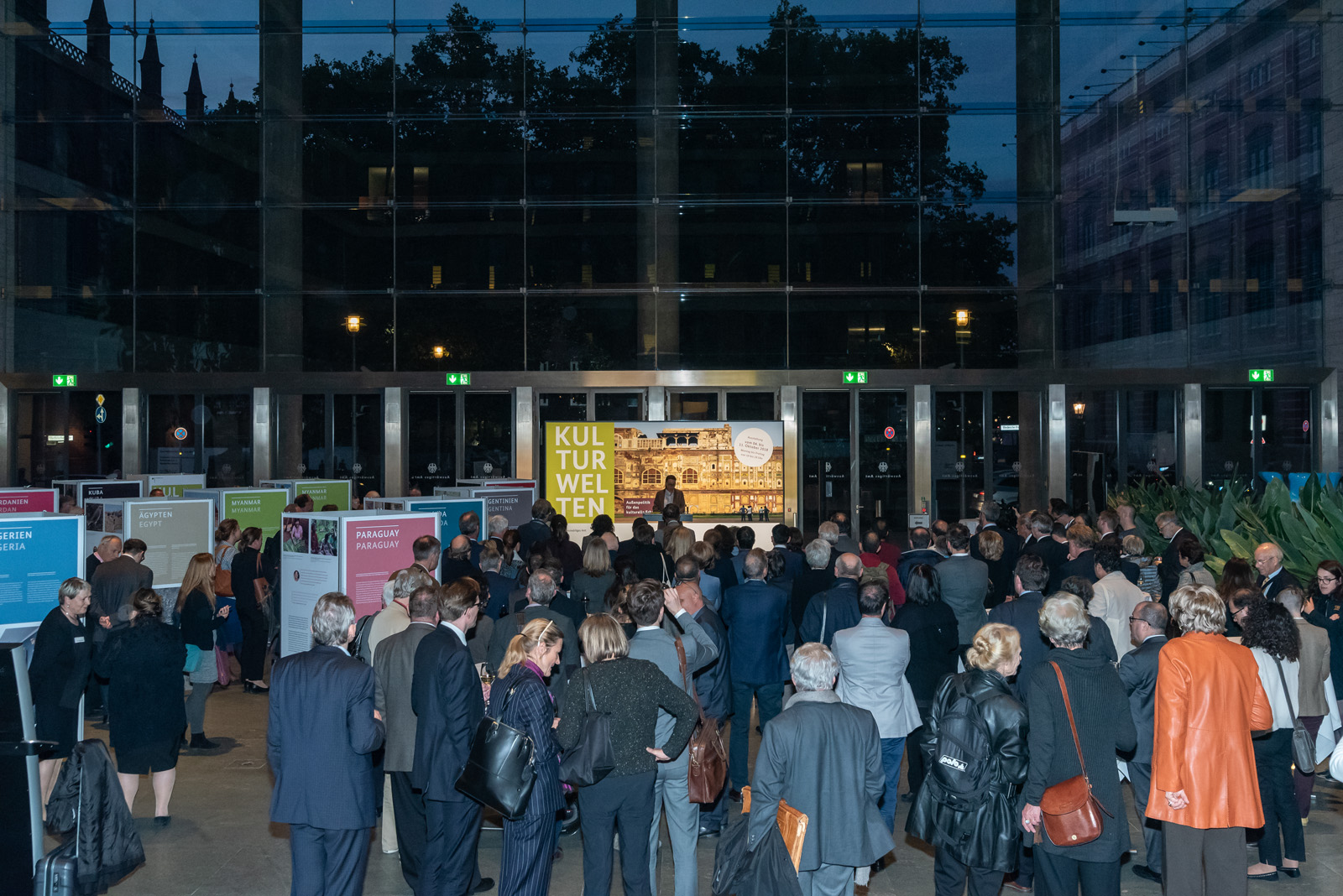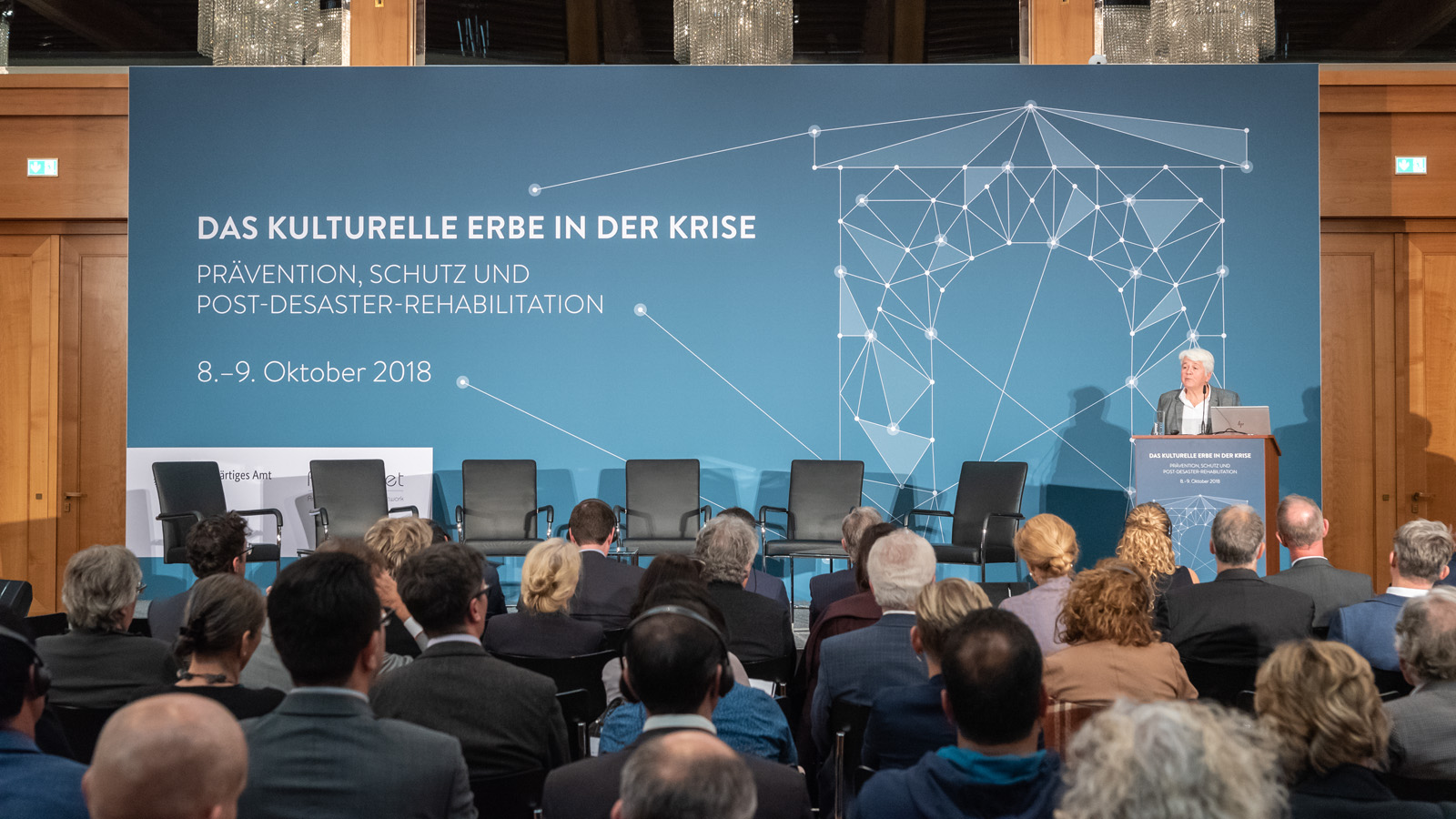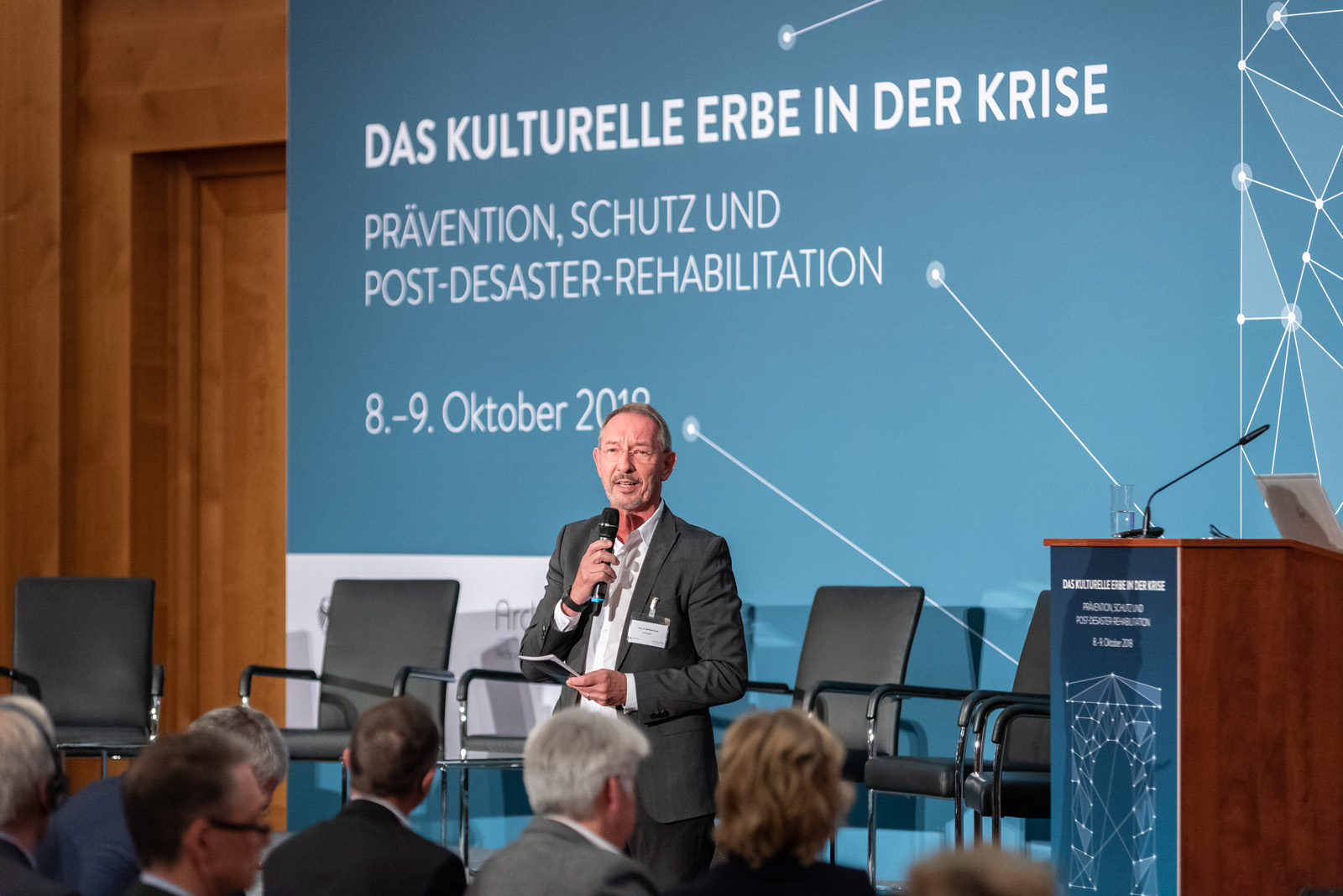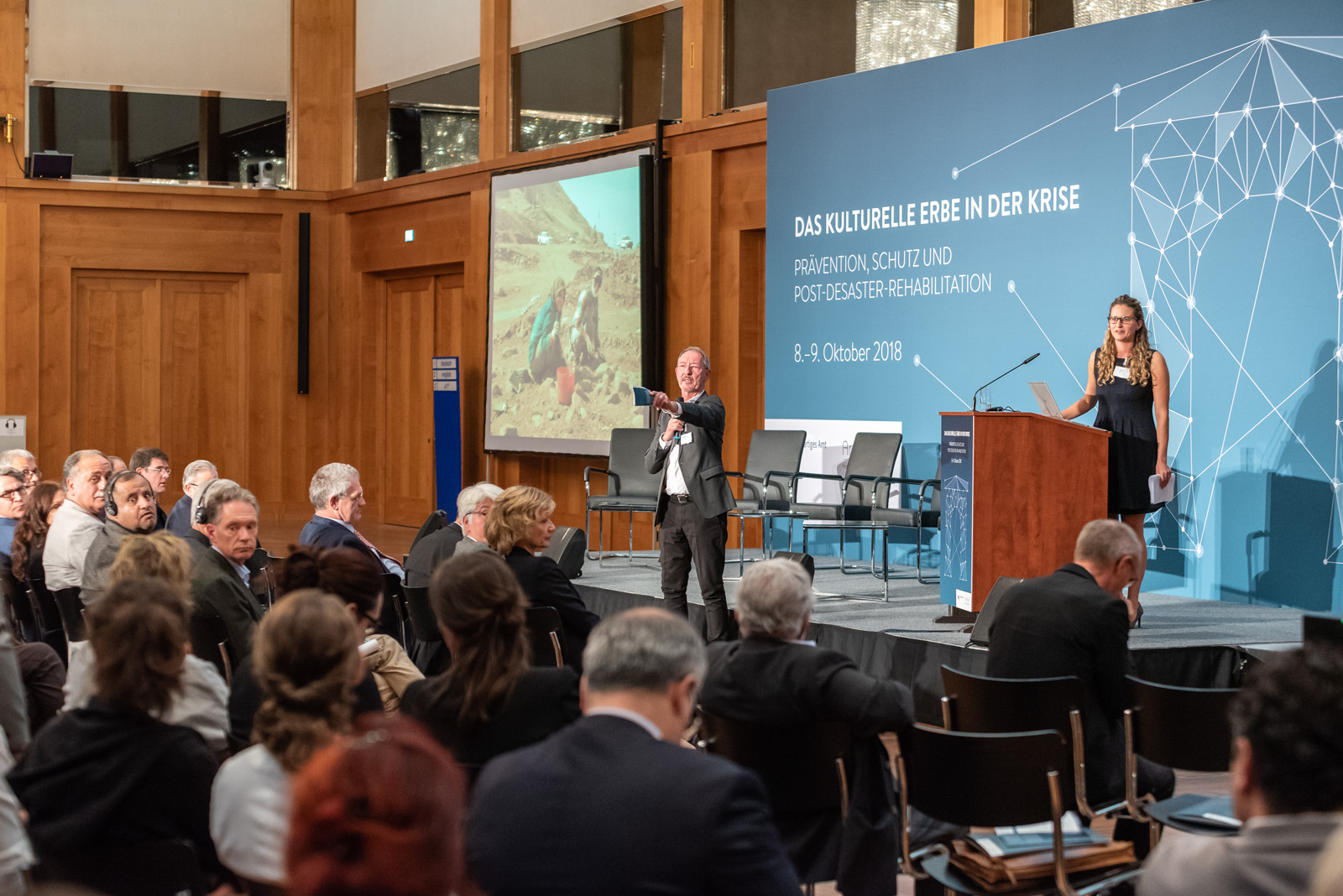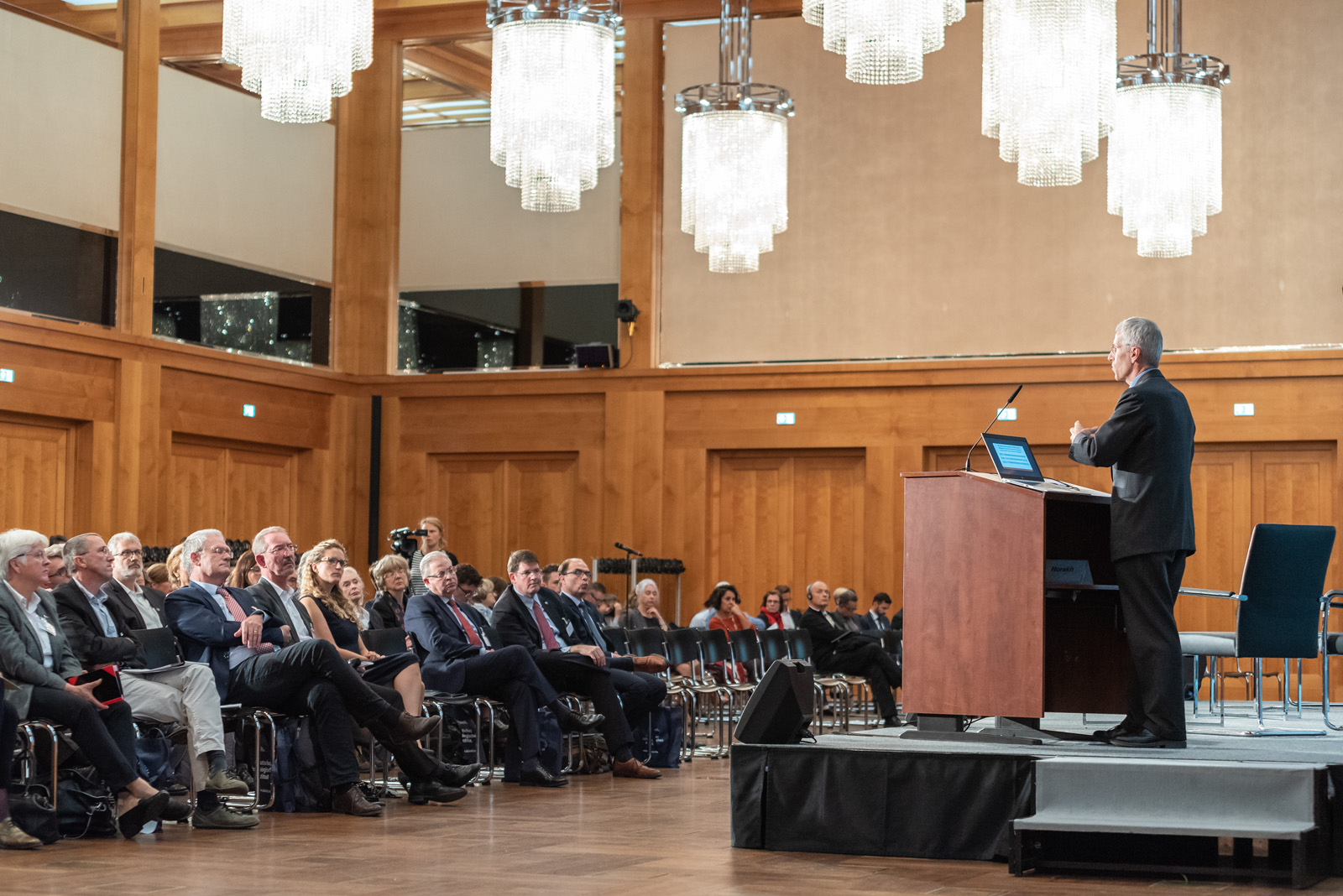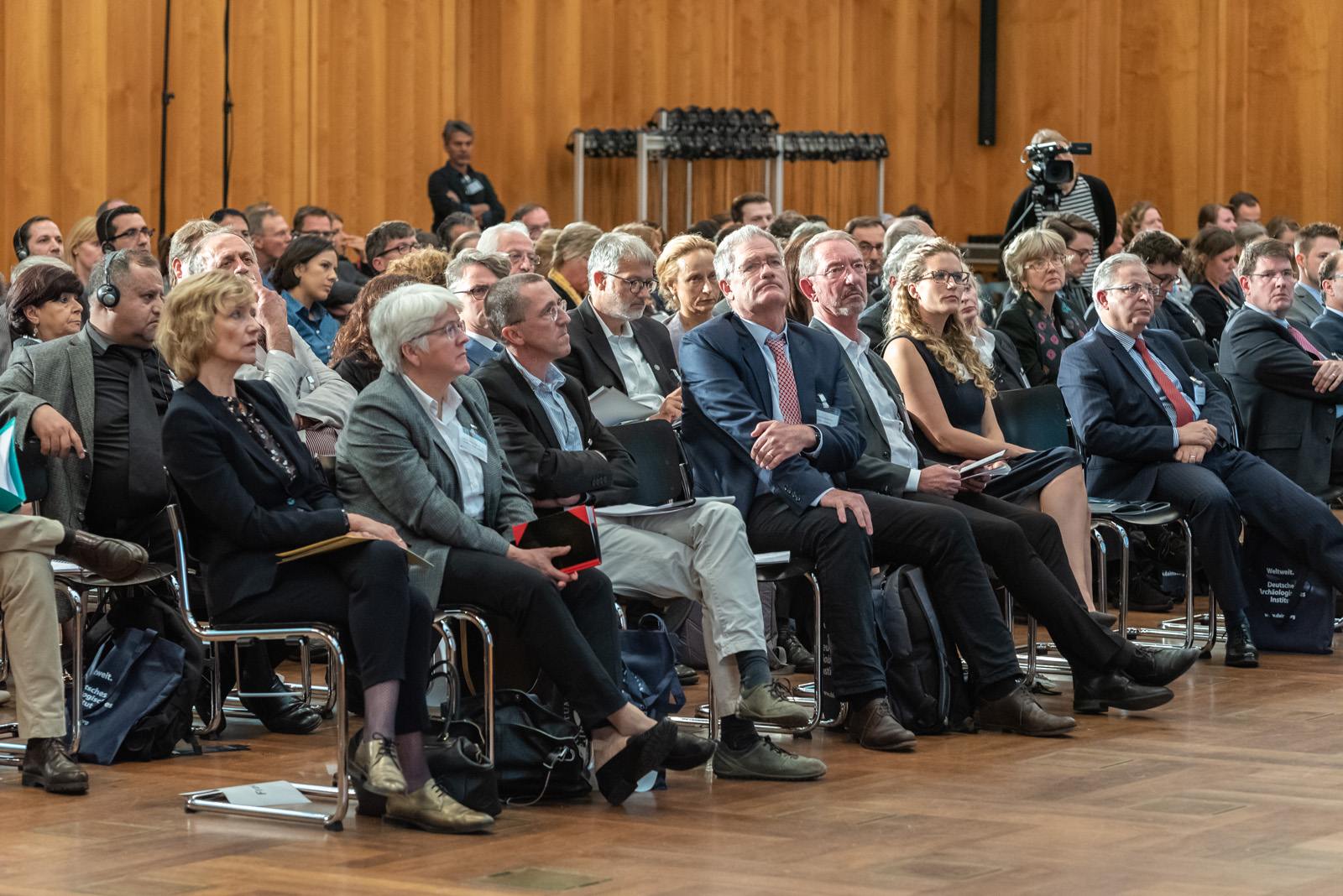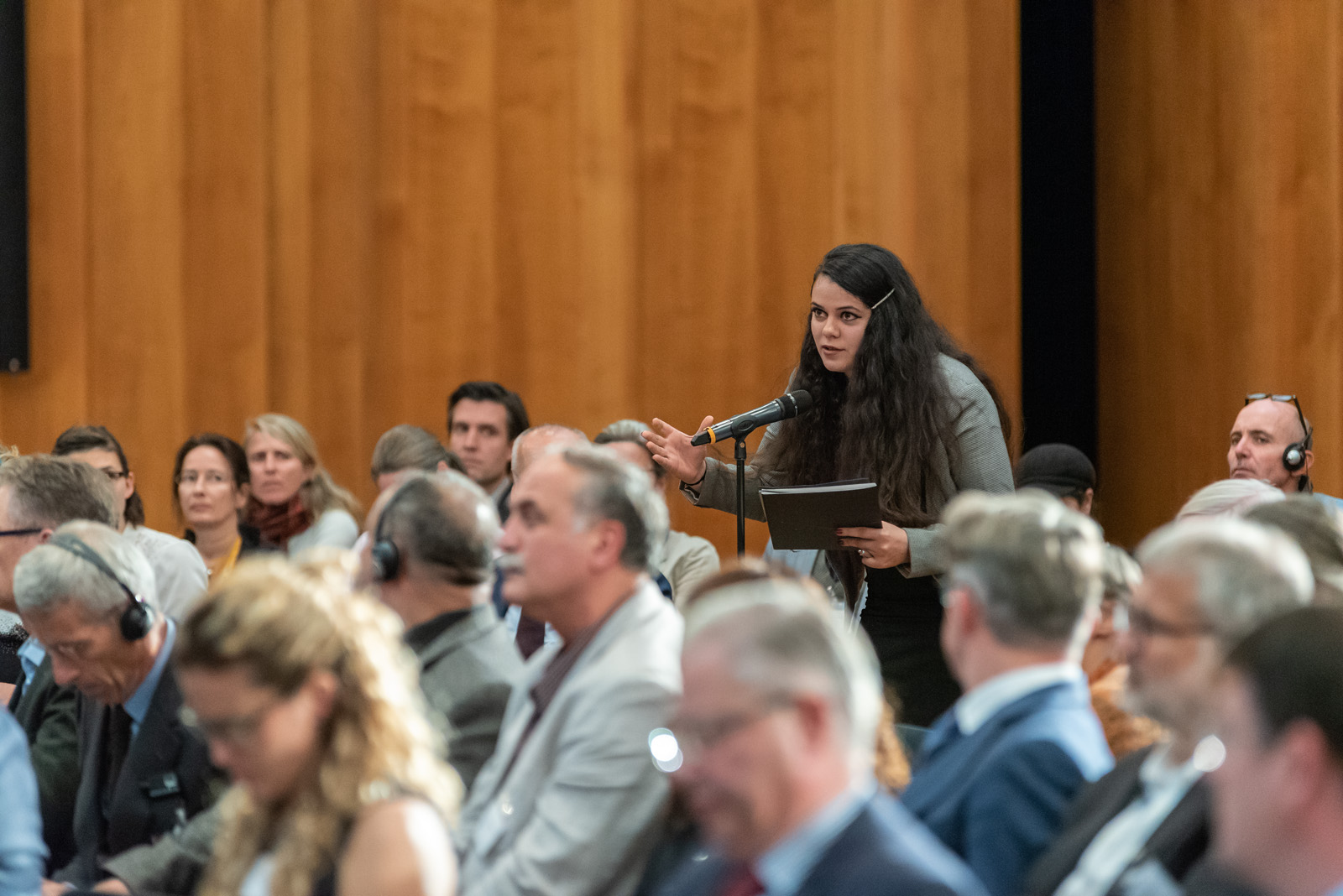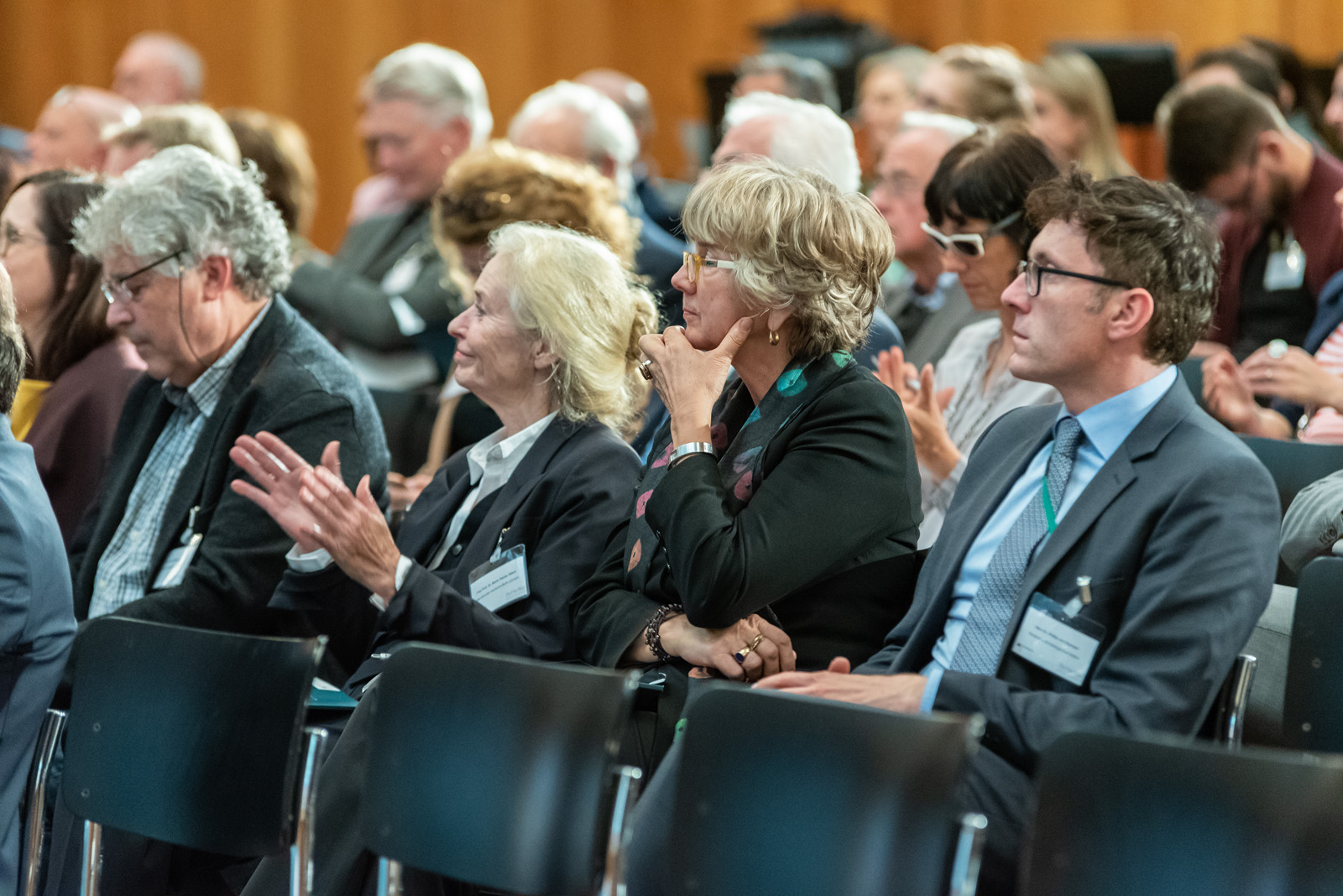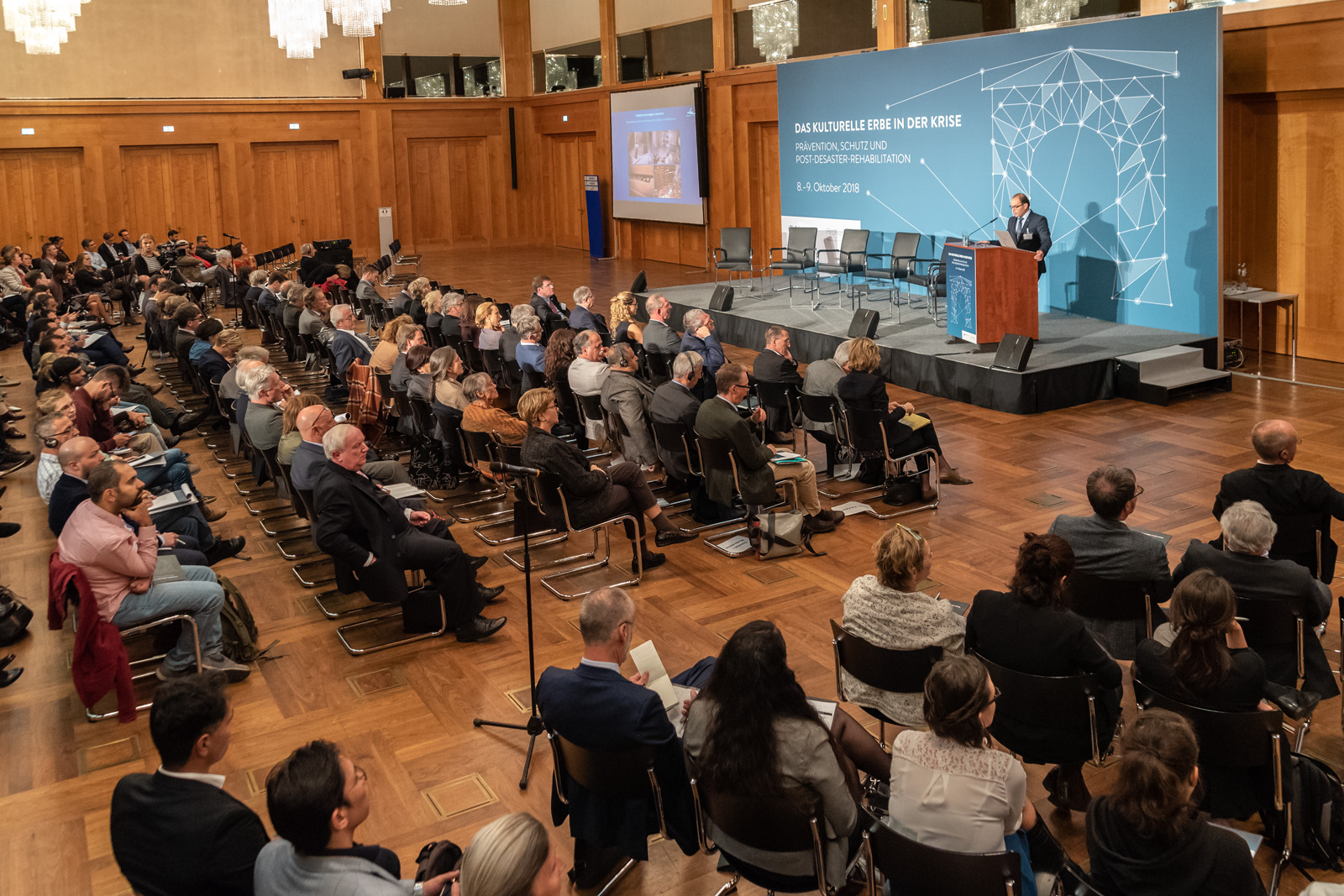
The Archaeological Heritage Network and the Federal Foreign Office organized the international conference Cultural Heritage in Crisis – Prevention, Protection and Post-Disaster Rehabilitation, which was held in Berlin on 8–9 October 2018 .
With years of practical experience in the field of supporting and protective measures in crisis and conflict regions, ArcHerNet has organised a conference to focus attention on the question of what specific measures, in the event of crisis or catastrophe, are effective when it comes to contributing preventively to cultural heritage protection, intervening in a destruction situation or rehabilitating damaged cultural heritage. The conference therefore concentrated on the three phases ‘Prevention’, ‘Protection’ and ‘Post-Disaster Rehabilitation’. The focus, however, was not put on one region with its specific problems. Instead, the issues were examined from different perspectives, drawing on practical experience.
The aim of the conference was to identify the challenges and possible courses of action over time. The analyses centred on long-term measures of prevention and rehabilitation as well as on shortterm intervention, referring to a variety of regions, scenarios, types of threat and destruction. Expert reports from guest speakers from countries concerned prevented a one-sidedly Eurocentric perspective. As a result, it is possible to impart experience from projects that have already been implemented, to formulate the needs in the countries, and to develop prospective core areas. The international framework of cultural preservation was addressed as well. Contributions by experts from abroad and representatives of UNESCO, ICCROM, ICOMOS and UNOSAT as well as experts and organisations from Germany emphasised the vital role of cultural preservation within Germany’s foreign cultural and educational policy and international cultural relations.
The conference was aimed at representatives of cultural heritage protection agencies in Germany, Europe and the rest of the world; experts from the world of science and politics, from foundations and international institutions as well as practitioners from the craft and technology industry, the cultural sector and the creative industry.
Executive Summary
The international conference Cultural Heritage in Crisis – Prevention, Protection and Post-Disaster Rehabilitation, which was held in Berlin on 8 and 9 October 2018 was organised by the Archaeological Heritage Network and the Federal Foreign Office.
Cultural heritage has always faced many types of threat, whether it be war, natural catastrophes, infrastructure projects or climate change. The destruction by fire of the National Museum in Rio de Janeiro and the Anna Amalia Library, the collapse of the Archive of the City of Cologne and the devastation caused by the wars in Iraq, Yemen and Syria are just some examples of the challenges that experts need to confront. Catastrophes of this kind have a profound impact on the cultural heritage of the countries concerned and their populations.
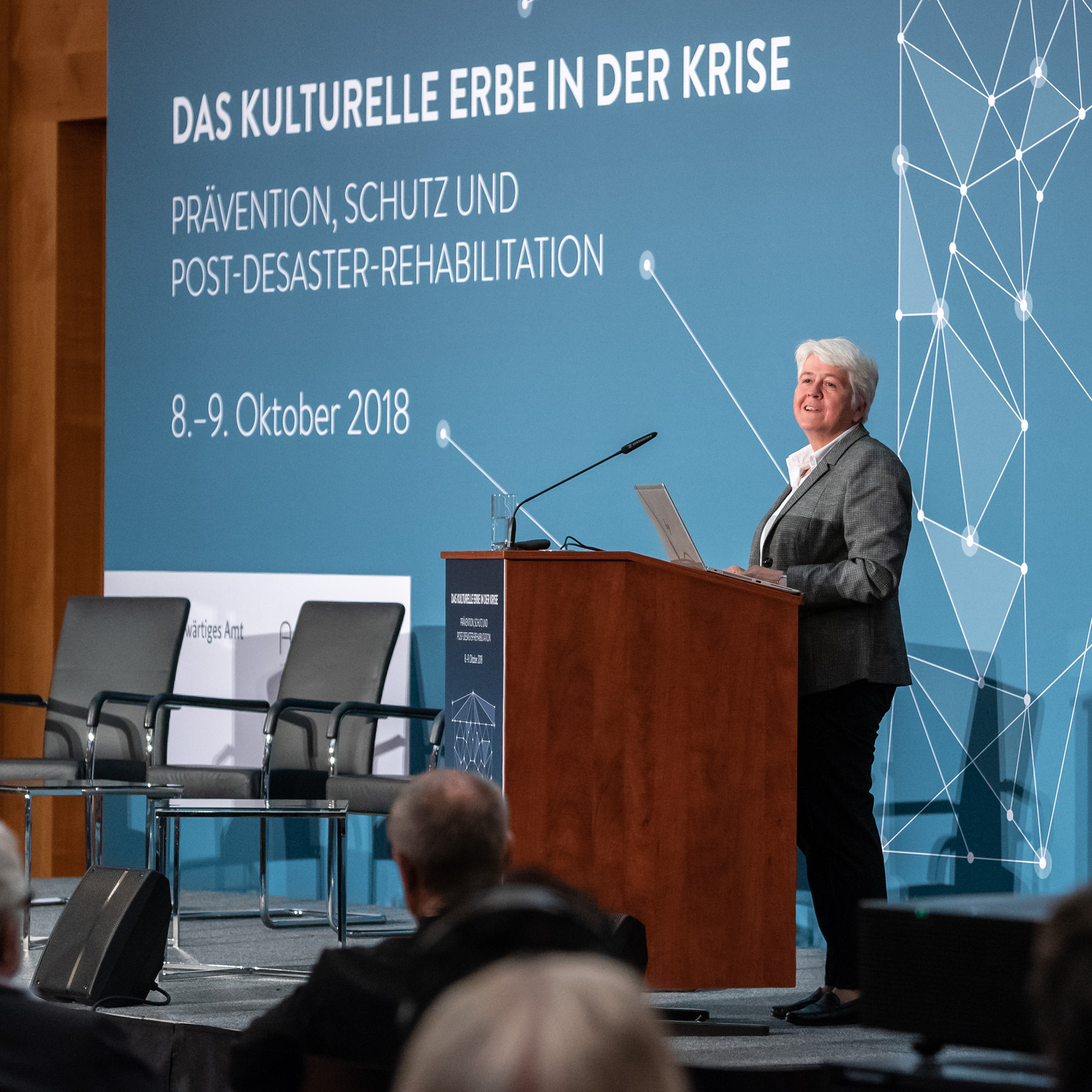
The first day of the conference was opened by Heidrun Tempel of the Federal Foreign office and Prof. Dr. Dr. h.c. Friederike Fless, President of the German Archaeological Institute. In her welcoming speech Prof. Friederike Fless stated that the conference had the aim firstly of examining the typology of crisis scenarios with their specific problems, by considering concrete examples. The second aim was to analyse what action is possible in the three principal phases of crises, namely prevention, direct intervention at the peak of the crisis, and subsequent rehabilitation, and to discuss what measures are possible in each case. The conference, held at the Federal Foreign Office from 8-9 October, brought together around 250 international experts in the field of cultural preservation, archaeology and politics, who attended talks and took part in workshops and discussions. Prof. Dr. Stefan Simon from Yale University concluded his keynote speech with a quote from Martin Luther King: „Whatever affects one directly affects all indirectly“, noting that „in the roadmap of sustainable conservation in the 21st century, conservation is no longer only about cultural heritage sites. It has to be also aboutthe people who are affected and connected to this heritage“.
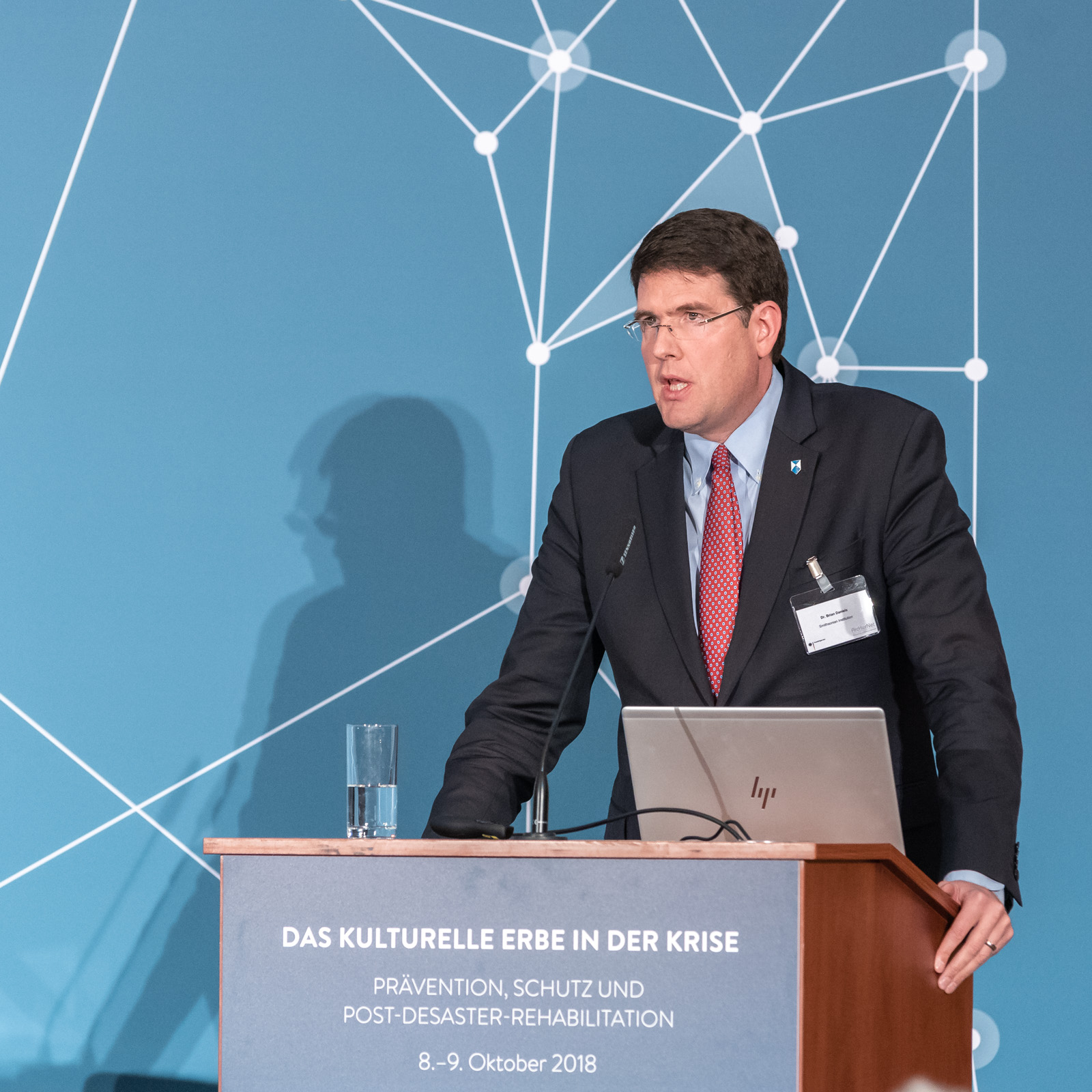
In one of the introductory talks of the first day, Dr. Brian Daniels of the Smithsonian Institution spoke about the project Safeguarding the Heritage of Syria and Iraq (SHOSI) and formulated some clear requirements. He emphasised the need to enhance NGO capacity and the need to support locally oriented initiatives during crisis events as well as programmes for at-risk heritage professionals. It is important, Dr. Daniels said in his presentation, to identify funding lines before the onset of a specific crisis and to have greater knowledge about international regulations on humanitarian aid.
Read the full speech of Prof. Friederike Fless
Foreign Minister Heiko Maas Opens the Conference
After being introduced by Dr. Andreas Görgen, director general of culture at the Federal Foreign Office, the second day of the conference was opened by Federal Foreign Minister Heiko Maas. In his speech he said it was not only a matter of rebuilding: public space must become a place for discussion and civil society once again. That is why preparations are being taken rapidly for the reconstruction of two historic sites in Mosul. The same goes for Syria, the minister said.
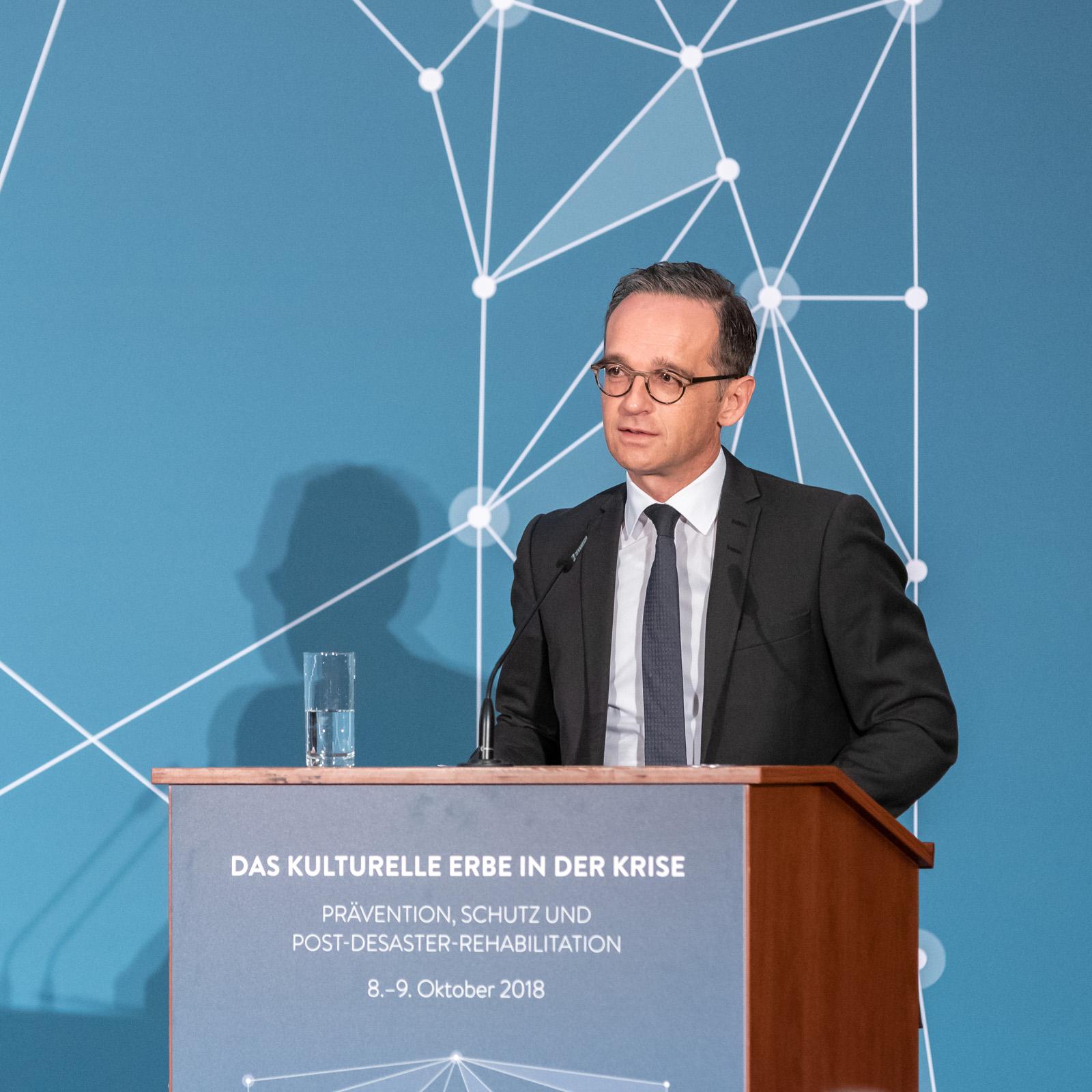
The reconstruction of archaeological cultural property will be a very important sign and a means of reconciliation in society after a political settlement has been achieved. And precisely for that reason the digital archiving of Syrian cultural property is being supported. Syria’s cultural and religious diversity is reflected in its valuable cultural treasures in particular. At the end of his speech the Foreign Minister stressed that effective protection of cultural heritage cannot be achieved and safeguarded by state actors alone. Instead it must come from the heart of our society.
Read the full speech of Foreign Minister Heiko Maas
Devastating Reports on the Destruction in Yemen
An Introduction to the second day was given by Dr. John Ziesemer (ICOMOS Germany) in his lecture “Heritage at Risk” and by Manuel Fiol (UNOSAT/UNITAR) who presented “New Technologies for the Safeguarding of Cultural Heritage”. In Section 1 “Destruction by War and Terrorism”, reports from Iraq (Dr. Margarete van Ess), Sudan (Dipl. Ing. Alexandra Riedel) and Yemen focussed on the damage within the countries.
The director of the General Organisation of Antiquities and Museums of Yemen, Mohanad al-Sayani, informed his audience about the shocking destruction in Yemen.
Air strikes, illegal trafficking in antiquities, unauthorised excavations, destruction as a result of construction projects and targeted attacks on cultural monuments have wrought extremely severe damage in the country. He showed disturbing images of the destruction at the regional museum of Dhamar, the old town of Sanaa, the Al Shareef citadel in Bajel– Hodeidah and the Al Qahera castle in Taiz.
In Sections 2 and 3 several presentations dealt with the issue of destruction caused by natural catastrophes and climate change as well as destruction by infrastructural development and urban expansion. The talks were accompanied by the Cultural Heritage Fair, which was held in the side lounge of the Weltsaal. Exhibitors from the area of cultural heritage protection presented their work there.
The Cultural Heritage Fair
The HTW Dresden in association with the German Archaeological Institute and the Freie Universität Berlin introduced visitors to the Archaeocopter and Nautocopter. The data gathered by these devices is used to create 3D models by means of the structure from motion (SfM) technique.
The organisation Kulturerbe in kleinen Händen (“cultural heritage in small hands”), which is primarily for the children of Syrian refugees, has developed a pottery workshop in cooperation with the HTW Berlin. They talked with visitors about their plans and experiences.
Geographic information systems (GIS) were central to the work of teams from CSGIS and the DAI’s project Palmyra GIS, while Filmkrüger presented its training courses in photographic documentation which are made available, as part of the Iraqi-German Expert Forum on Cultural Heritage (IGEF), to practitioners from Iraq’s State Board of Antiquities and Heritage (SBAH), for example.
Also presenting themselves to conference visitors were the German association of restorers (Verband der Restauratoren) and ArcHerNet with Stunde Null – Eine Zukunft für die Zeit nach der Krise.
Panel Discussion – „We cannot work alone“
There was a panel discussion in which Bundestag members Barbara Hendricks and Thomas Erndl were joined by Dr. Michael Hanssler from the Gerda Henkel Foundation, Prof. Dr. Hosam Refai from Helwan University in Cairo and Giovanni Boccardi from UNESCO. The discussion was hosted by Andrea Horakh from Deutsche Welle.
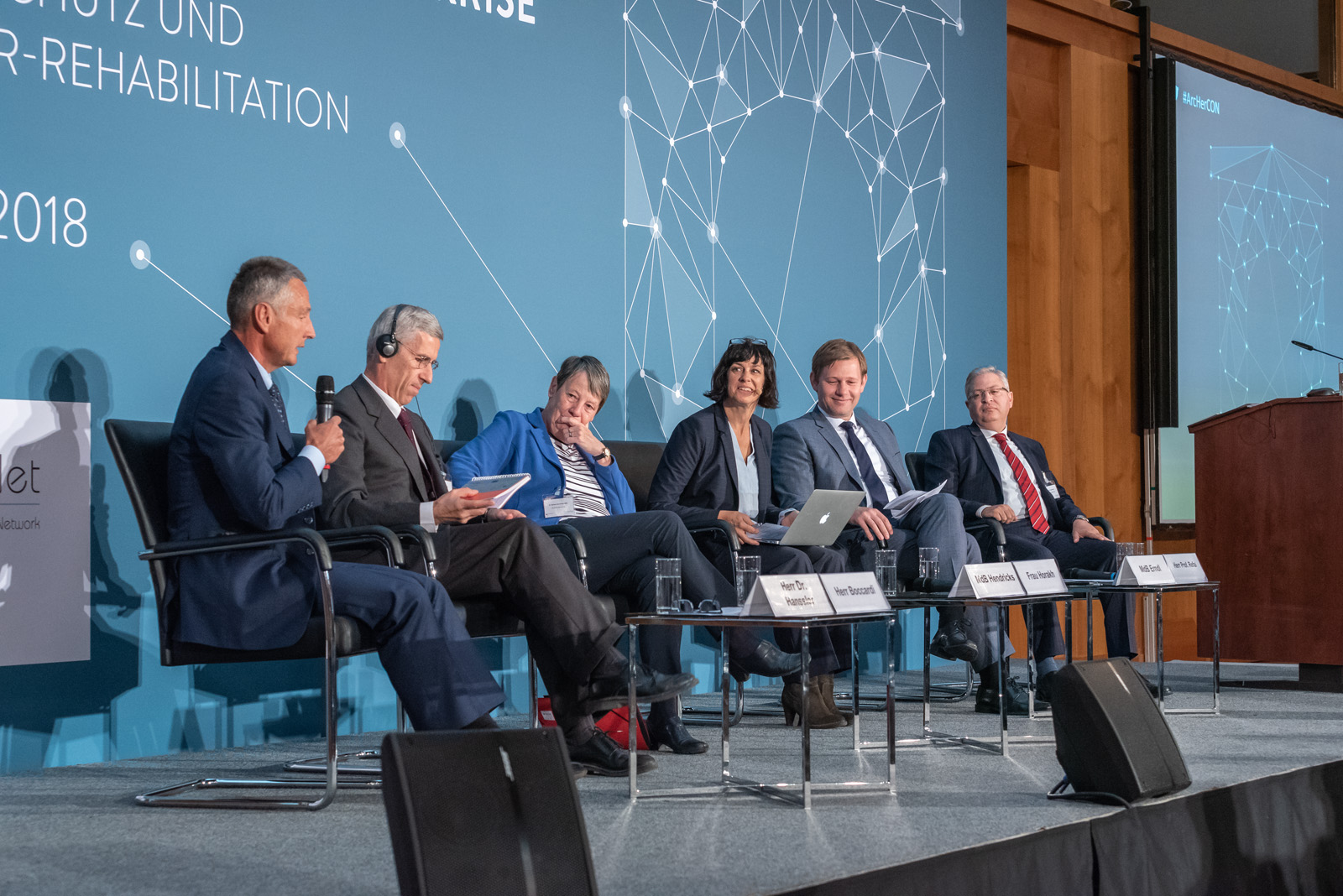
Workshops – Prevention, Protection and Post-Disaster Rehabilitation
Four workshops took place, at which conference attendees discussed prevention, protectionand post-disaster. The results of the workshops were presented afterwards. In her closing speech Prof. Dr. Dr. Friederike Fless noted that, in the sphere of cultural preservation, it was always necessary to think long-term. It had been clearly shown by the workshops, she said, that the path taken should be followed further, although adjustments were necessary. When help comes from outside, the countries should be involved. This is where capacity building comes in, which makes the involvement of the population possible.
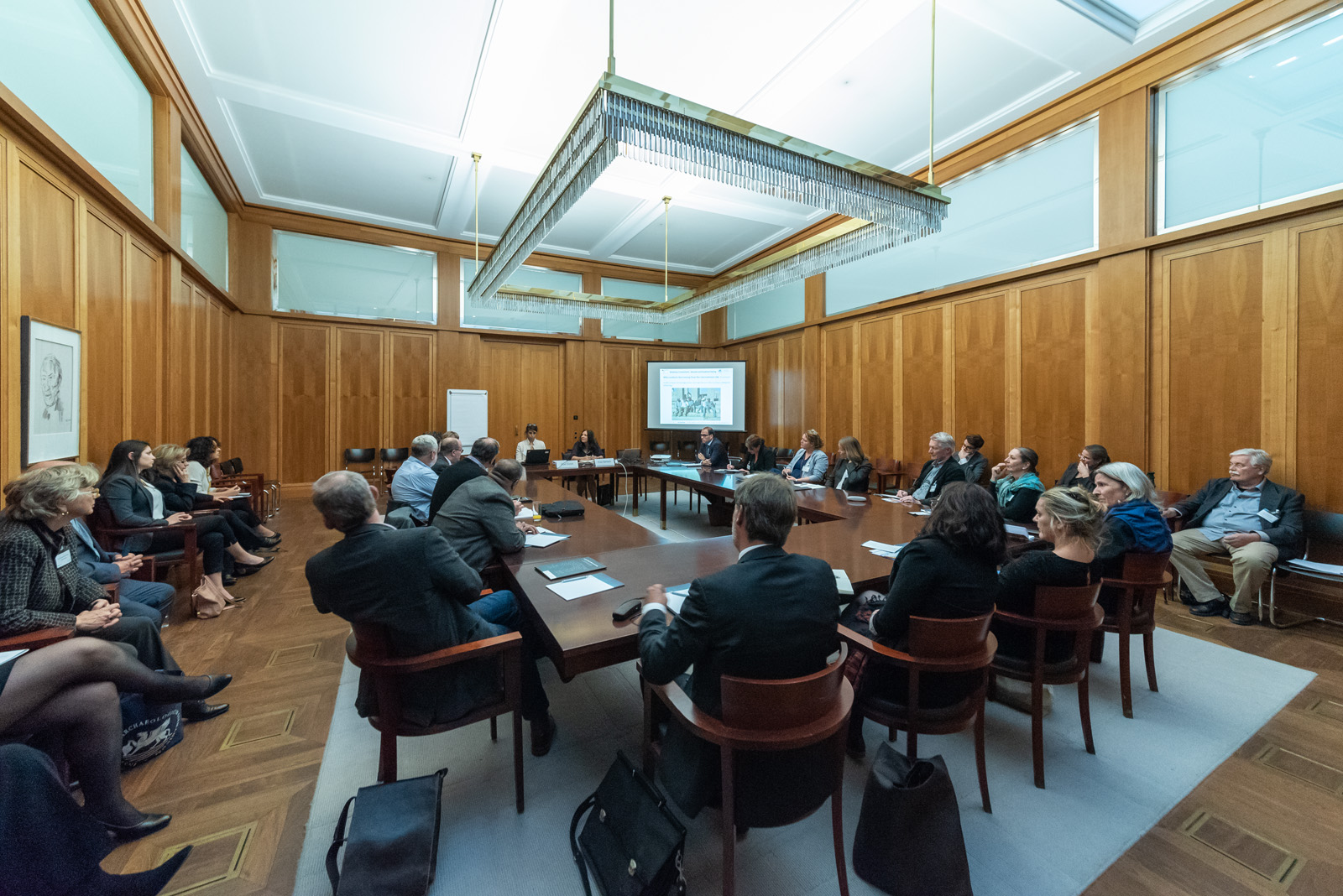
It has also become clear, she said, that coordination is lacking in certain instances. It is necessary to identify possibilities, improve contacts amongst large organisations and initiatives, and establish networks. “It should be clearly communicated to politicians that it’s necessary to think long-term,” Prof. Dr. Dr. Fless said. “We train, we invest in the future; through our activities and educational capabilities, we invest in people.” It is important to develop capacities, but for that resources are needed.
Opening of the exhibition: „Worlds of Culture“
The conference Cultural Heritage in Crisis concluded with the opening of the Kulturwelten exhibition. The exhibition presents projects that are financed around the globe by the cultural preservation programme of the Federal Foreign Office, among them the ArcHerNet collaborative project Stunde Null. Minister of State Michelle Müntefering officially opened the exhibition in the atrium of the Federal Foreign Office.
Review on ArcHerNet.org
Videos (Youtube)
- All lectures on YouTube
2. Panel discussion
3. Interviews
Gallery
© Paasch, DAI

